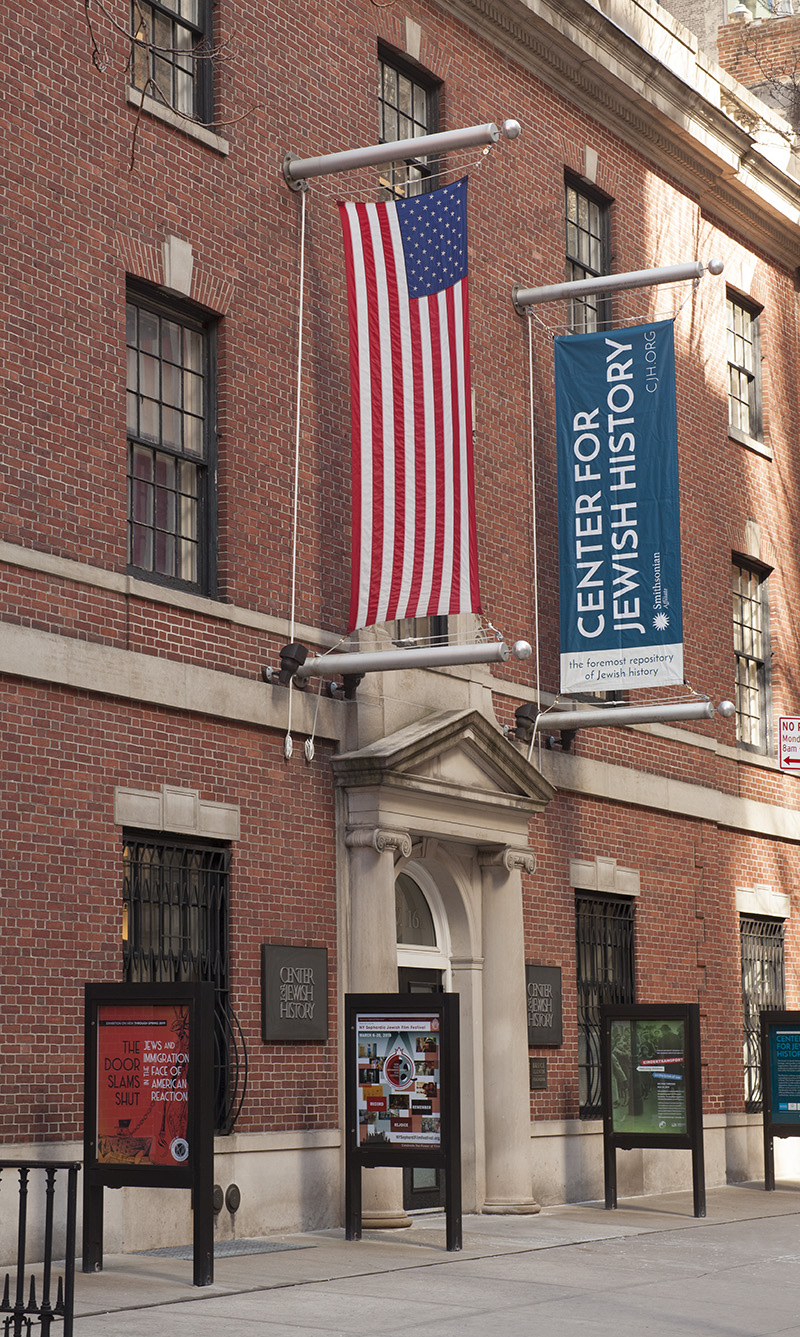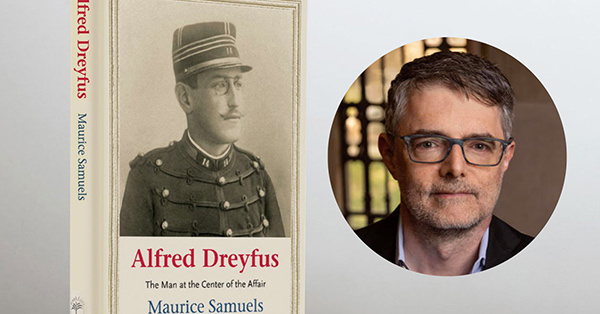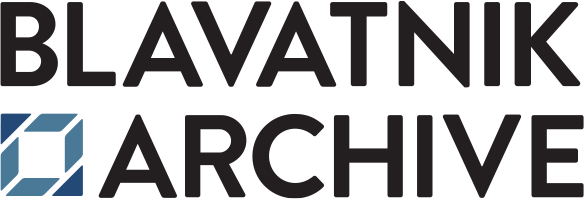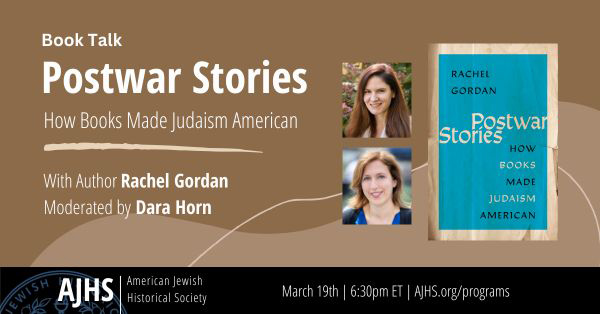concert
Hanukkah Concert 2024 - The Andy Statman Trio - In-person Event
Andy Statman is the virtuoso klezmer clarinetist that violinist Itzhak Perlman chose to lead his klezmer album, In the Fiddler's House. Statman’s virtuosity is “stunning.” He considers himself lucky, as he is “from the last generation that had a chance to learn from the greats.” He is a disciple of the legendary master klezmer clarinetist Dave Taris, “the most successful immigrant-era Yiddish musician." Tarras, who died in 1989, bequeathed his clarinets to Andy, his greatest protégé – and made him the next link in the chain. Hence, Statman became known primarily as one of the key klezmer revivalists of the '70s and early '80s, among the musicians who launched a great wave to reclaim the music of the Old World.
Much more than a one-genre performer, Statman thinks of his own compositions and performances as "spontaneous personal, prayerful Hasidic music, American-roots music and by way of avant-garde jazz." He is a modest man that takes for granted that a performer might embody several worlds in his art and seems humbled by the fact that his music, like his own story, is extraordinary.
Join the American Society for Jewish Music and YIVO for this year's Hanukkah concert featuring The Andy Statman Trio.
This program is supported, in part, by public funds from the New York City Department of Cultural Affairs, in partnership with the City Council.
Ticket Info: $18; YIVO & ASJM members: $12; Seniors & students: $9
Presented by:

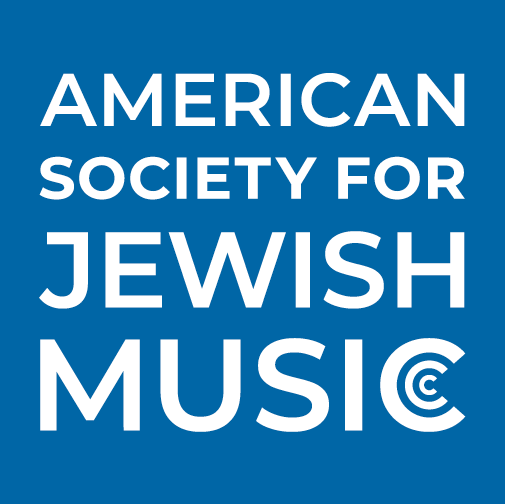
concert
conversation
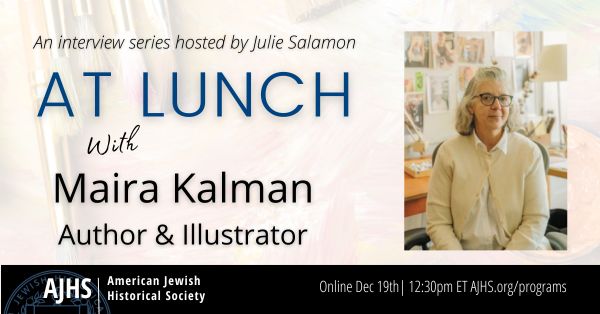
At Lunch with Maira Kalman – Live on Zoom
Julie Salamon (New York Times best-selling author) sits down with artist and illustrator Maira Kalman. Kalman illustrated William Strunk Jr’s classic The Elements of Style and is the author of My Favorite Things, Principles of Uncertainty, and And the Pursuit of Happiness. She is also the author/illustrator of numerous children’s books, and her artwork has graced a dozen covers of The New Yorker. Her watches, clocks, accessories, and paperweights have been featured at the Museum of Modern Art store. Her latest book Still Life with Remorse is now available where books are sold. She lives in New York City.
Ticket Info: Free; register online for a Zoom link
Presented by:

conversation
lecture
A Very Jewish Christmas: Jewish Sitcom Characters Navigate December - In-person Event and Live on Zoom
Gertrude Berg, the woman widely credited with creating the first sit-com (The Goldbergs) appeared on The Ed Sullivan Show in 1959 to talk about children wanting a Christmas tree for Hanukkah. This navigation of "The December Dilemma" has been a challenge for many American Jewish families, and as such has been plumbed for comedic effect throughout the history of television comedy.
Join YIVO for a very Jewish Christmas celebration featuring a talk by Jennifer Caplan on Jewish television characters managing (or not) to make it through the holidays. A kosher Chinese food dinner will follow the presentation.
This program is supported, in part, by public funds from the New York City Department of Cultural Affairs, in partnership with the City Council.
Ticket Info: In Person: $15; YIVO members & students: $10
Zoom Livestream: Free; registration is required.
Presented by:

lecture
lecture
Genealogical Research at the YIVO Institute for Jewish Research - In-person Event and Live on Zoom
The archives and library of the YIVO Institute for Jewish Research contain the world’s largest and most comprehensive collection of materials on Eastern European Ashkenazi Jewish history and culture. They include a wealth of sources for genealogical research. YIVO archivist Hallel Yadin will review the different kinds of documents available at YIVO, including pre-war community records, immigration case files, yizkor books, landsmanshaftn records, and more. She will also discuss how to effectively search YIVO's online catalogs and how to access its holdings remotely.
Ticket Info: Free; registration is required
Presented by:
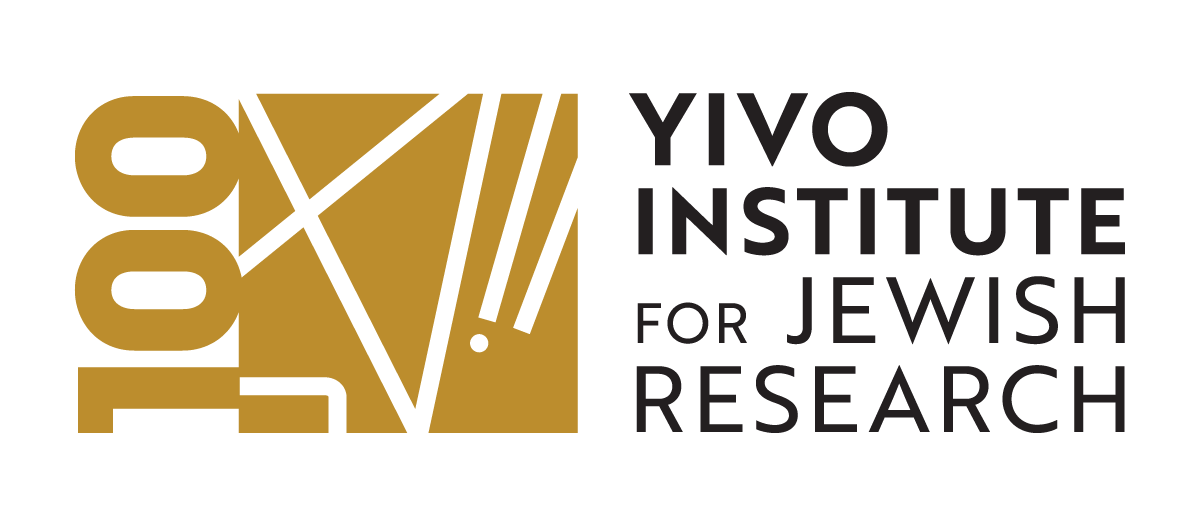
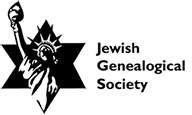
lecture
concert
Timeless Triad: A Night of Bach, Beethoven & Brahms, performed by Phoenix Chamber Ensemble – In-Person & Live on YouTube
Join Phoenix Chamber Ensemble pianists Vassa Shevel and Inessa Zaretsky with guest artists Anna Elashvili on violin and Joshua Halpernon cello.
Program:
Johann Sebastian Bach: Toccata and Fugue in D minor, BWV 566, arranged for piano 4 hands
Ludwig van Beethoven: Piano Trio in G Major, Op.1, No.2
Ludwig van Beethoven: Violin Sonata No.9, Op. 47 (Kreutzer)
Johannes Brahms: Hungarian Dances No.1-5, Arranged by F. Hermann for Piano 4 hands, violin and cello
Founded in 2005 by pianists Vassa Shevel and Inessa Zaretsky, the Phoenix Chamber Ensemble has, over the course of two decades, become a vital part of the New York classical community, presenting more than 70 public concerts at the Center for Jewish History. The ensemble has garnered a devoted following with its innovative programming and sensitive interpretations, earned an international reputation presenting concerts in Russia, Poland, Italy, and other European venues, and collaborated with numerous acclaimed guest artists, including clarinetist David Krakauer, the Grammy-nominated Enso Quartet, the Tesla Quartet, members of the Jasper String Quartet, the New York Little Opera Company, the Metropolitan Opera, and New York City Ballet.
Made possible by the Stravinsky Institute Foundation through the generous support of the Blavatnik Family Foundation. Presented in partnership with the Leo Baeck Institute.
Ticket Info:
In person: $10 general; $9 senior/student; $8 member; click here to register
YouTube: Pay what you wish; click here to register
Presented by:

concert
concert and discussion
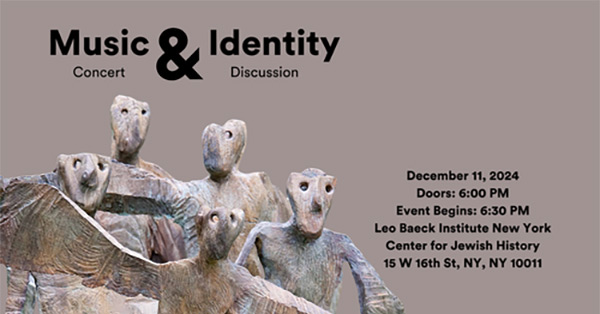
Music and Identity - In-person Event
In a globalized world, composers are negotiating their identities in relation to both their cultural origins and broader, global contexts. Their music serves as a powerful medium for expressing and exploring these identities. By understanding and embracing the diversity of musical influences and backgrounds, societies can foster a rich and inclusive cultural landscape.
Join LBI and 1014 as we hear from four world-renowned composers, Craig Urquhart (Germany), Sergei Newsky (Russia), Konstantia Gourzi (Greece), and Tamar Muskal (Israel), from across the Atlantic to discuss their identity in our globalized world and present samples of their music. Moderated by pianist and concert curator Sophia Zhou. Curated and co-moderated by sculptor and artist Alexander Polzin. With music provided by the Juilliard School, as well as by performer Omar El-Okdah.
Concert:
Apollon- piano trio by Konstantia Gourzi
Argaman - piano trio by Tamar Muskal
Klavierquartett - piano quartet by Sergei Newsky
Lamentation song solo piano Craig Urquhart
Closing Song:
Schubert’s Wanderer
Song from Egyptian composer Addelwahab
Ticket Info: Free; registration required
Presented by:

concert and discussion
film screening
Burning Off the Page - In-person Event
This documentary about Russian-born American Yiddish poet and fiction writer Celia Dropkin (1887–1956) celebrates her unabashed writing about the female body and sexual liberation. Considered radical during her lifetime, Dropkin shocked readers around the world with sexually explicit depictions of lust. Her work defied gender norms and complicated traditional narratives and boundaries. Her poems invoked violent and erotic imagery as well as Christian iconography to describe passion, yearning, and death.
Burning Off the Page includes powerful dramatic readings, archival footage, historic recordings, and dazzling animations to bring Dropkin’s pioneering poems to life. Along with her descendants, filmmaker Eli Gorn interviews stars of the Jewish artistic world including writers, Yiddish translators, and musicians.
Join YIVO for the New York premiere of this documentary followed by a discussion with Gorn and poet Edward Hirsch.
This program is supported, in part, by public funds from the New York City Department of Cultural Affairs, in partnership with the City Council.
Ticket Info: $10; YIVO members & students: $8; registration is required
Presented by:

film screening
lecture
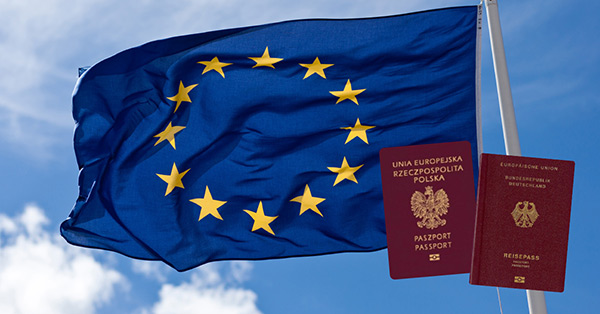
Family History Today: Restoring Roots - A Practical Guide to Applying for Heritage Citizenship in the E.U. - Live on Zoom
Genealogist Caitlin Hollander-Waas will explore how second, third, and even fourth-generation descendants of European Jewish immigrants can reclaim citizenship within the European Union. Focusing on Poland, Germany, and Hungary, Caitlin will share practical insights and advice drawn from her personal and professional experience. Participants will learn how to locate and retrieve necessary documentation, avoid common pitfalls, and navigate the application process.
Ticket Info: Pay what you wish; register here
Presented by:

lecture
film screening
Proof of Identity - In-person Event
What does it mean to be a Polish Jew today? How do Polish Jews define their own identity at different stages of life? How do they define their identity when they’re religious or atheist? Writer, reporter and photographer Mikolaj Grynberg seeks answers to these and many more questions in his directorial debut, Proof of Identity.
The interviewees of this poignant documentary represent a variety of Jews residing in Poland today. By interviewing the generation that has had no direct contact with the Holocaust survivors in their families, this film encourages viewers to ponder how Holocaust memory has evolved in Poland. The conversations reveal a vast array of attitudes and experiences, as the protagonists come from both big cities and the Polish province. The audience learns not only about each interviewee's family history, but also about their modern-day encounter with antisemitism in Poland.
Join YIVO for the US premiere of the POLIN Museum's new documentary, followed by a discussion with Grynberg.
This program is supported, in part, by public funds from the New York City Department of Cultural Affairs, in partnership with the City Council.
Ticket Info: Free; registration is required
Presented by:

film screening
film screening and discussion
Joseph Brodsky: Epitaph for a Centaur, Six Years Later - In-person Event
Join YIVO and Poetry in America for a panel discussion and screening of a short film examining the life of Joseph Brodsky, the celebrated Russian-Jewish American writer and Nobel Laureate.
Through analyses of two of Brodsky's evocative poems, “Epitaph for a Centaur” and “Six Years Later,” this 25-minute film encapsulates Brodsky's exploration of identity, belonging, and the passage of time. The film examines the paradoxical relationship between the U.S. and Russia during the Cold War, intricately portrayed through the symbolic figure of the centaur—a representation of Brodsky’s own multi-faceted existence as Russian, American, and Jewish. By delving into the intricate language of Brodsky’s poetry, this short film explores Brodsky’s Jewish identity, his legacy, and the political undertones of his writing.
This program is supported, in part, by public funds from the New York City Department of Cultural Affairs, in partnership with the City Council.
Ticket Info: Free; registration is required
Presented by:

film screening and discussion
book talk
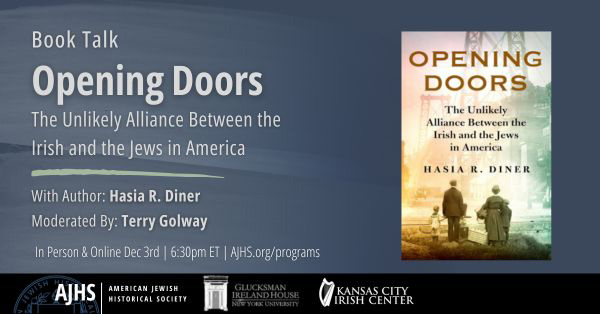
Opening Doors: The Unlikely Alliance Between the Irish and the Jews in America - In-person Event and Live on Zoom
The American Jewish Historical Society with the Glucksman Ireland House and the Kansas City Irish Center present, Opening Doors: The Unlikely Alliance Between the Irish and the Jews in America with author Hasia R. Diner in conversation with Terry Golway.
Popular belief holds that the various ethnic groups that emigrated to the United States at the turn of the twentieth century regarded one another with open hostility, fiercely competing for limited resources and even coming to blows in the crowded neighborhoods of major cities. One of the most enduring stereotypes is that of rabidly anti-Semitic Irish Catholics, like Father Charles Coughlin of Boston and the sensationalized Gangs of New York trope of Irish street thugs attacking defenseless Jewish immigrants.
In Opening Doors, Hasia R. Diner, one of the world’s preeminent historians of immigration, tells a very different story; far from confrontational, the prevailing relationships between Jewish and Irish Americans were overwhelmingly cooperative, and the two groups were dependent upon one another to secure stable and upwardly mobile lives in their new home. The Irish had emigrated to American cities en masse a generation before the first major wave of Jewish immigrants arrived, and had already entrenched themselves in positions of influence in urban governments, public education, and the labor movement. Jewish newcomers recognized the value of aligning themselves with another group of religious outsiders who were able to stand up and demand rights and respect despite widespread discrimination from the Protestant establishment, and the Irish realized that they could protect their political influence by mentoring their new neighbors in the intricacies of American life.
Opening Doors draws from a deep well of historical sources to show how Irish and Jewish Americans became steadfast allies in classrooms, picket lines, and political machines, and ultimately helped one another become key power players in shaping America’s future. In the wake of rising anti-Semitism and xenophobia today, this informative and accessible work offers an inspiring look at a time when two very different groups were able to find common ground and work together to overcome bigotry, gain representation, and move the country in a more inclusive direction.
Ticket Info:
In Person: General Admission $10, Students $5, Admission + Book $35
Online: Free with RSVP
Presented by:

book talk
book talk
Yiddish Language During the Holocaust - Live on Zoom
The Holocaust radically altered the way many East European Jews spoke Yiddish. Finding prewar language incapable of describing the imprisonment, death, and dehumanization of the Holocaust, prisoners added or reinvented thousands of Yiddish words and phrases to describe their new reality. These crass, witty, and sometimes beautiful Yiddish words – Khurbn Yiddish, or “Yiddish of the Holocaust” – puzzled and intrigued the East European Jews who were experiencing the metamorphosis of their own tongue in real time. Sensing that Khurbn Yiddish words harbored profound truths about what Jews endured during the Holocaust, some Yiddish speakers threw themselves into compiling dictionaries and glossaries to document and analyze these new words. Others incorporated Khurbn Yiddish into their poetry and prose. In Occupied Words: What the Holocaust Did to Yiddish, Hannah Pollin-Galay uses cultural history, philology, and literary interpretation to explore Khurbn Yiddish as a form of Holocaust memory and as a testament to the sensation of speech under genocidal conditions.
Join YIVO for a discussion with Pollin-Galay about this new book, led by historian Samuel Kassow.
This program is supported, in part, by public funds from the New York City Department of Cultural Affairs, in partnership with the City Council.
Ticket Info: Free; registration is required.
Presented by:

book talk
conversation
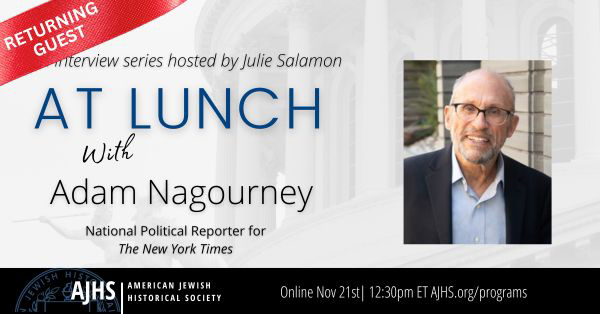
At Lunch with Adam Nagourney – Live on Zoom
Julie Salamon (New York Times best-selling author) sits down with Adam Nagourney, national politics reporter for The New York Times. Since joining the newspaper in 1996, he has served as Los Angeles bureau chief, West Coast cultural affairs reporter, chief national political correspondent, and chief New York political reporter. Adam is the author of The Times: How the Newspaper of Record Survived Scandal, Scorn, and the Transformation of Journalism and co-author of Out for Good, a history of the modern gay rights movement. Adam is our first At Lunch returning guest and will be joining us to discuss the 2024 Presidential Election.
Ticket Info: Free; register online for a Zoom link
Presented by:

conversation
film screening and discussion
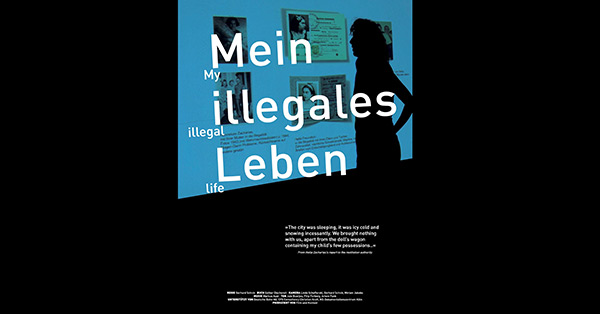
My Illegal Life - In-person Event
In 1942, a Jewish mother, Hella Zacharias, and her five-year-old daughter went into hiding in the Berlin underground. Through Hella's own resourcefulness and the help of others, both mother and daughter survived through the war. In My Illegal Life (Germany, 2024), writer Esther Dischereit, Hella's second-born daughter, follows the traces of her mother's and half-sister's experiences in hiding.
After the screening, there will be a conversation with the film's director Gerhard Schick and Esther Dischereit, moderated by historian Irit Bloch.
The event is cosponsored by Deutsches Haus at NYU.
Ticket Info: Free; registration required
Presented by:

film screening and discussion
book talk
Representations of the Israeli Experience in Yiddish Prose, 1948–1967 - Live on Zoom
Israel's cultural space is frequently studied as if it were synonymous with the Hebrew-Israeli one. But within the borders of Israel, a fascinating culture was (and continues to be) created in many languages other than Hebrew.
I Am Your Dust: Representations of the Israeli Experience in Yiddish Prose, 1948–1967 expands the boundaries of current studies of Israel's cultural history by presenting and analyzing Yiddish-Israeli prose written during the country's first two decades as an independent state. It offers a comprehensive study of that unique, and hitherto little understood, literature, a detailed historical documentation of the contexts of its production, and an eye-opening comparison of its themes to the more familiar outputs of Hebrew-Israeli prose.
I Am Your Dust is the first socioliterary investigation of Yiddish-Israeli culture, and it explores how Yiddish-Israeli writers played a vital role in shaping the country's cultural identity in its early years.
Join YIVO for a discussion of the newly published translation of this book with author Gali Drucker Bar-Am, led by Barbara Mann.
This program is supported, in part, by public funds from the New York City Department of Cultural Affairs, in partnership with the City Council.
Ticket Info: Free; registration is required.
Presented by:

book talk
lecture
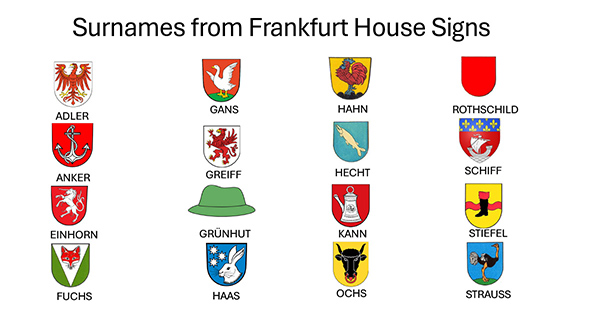
Family History Today: How German Jews Got their Surnames – Live on Zoom
In most cases, European Jews took on surnames in the late 18th and early 19th centuries after it was mandated by central authorities like the Hapsburg Emperor, the Czar, or Napoleon. In Germany, which consisted of dozens of more-or-less independent states, and where some Jews had used surnames for centuries, the story is more complicated. In this talk, Roger Lustig, a professional genealogist specializing in Prussian Jewish records, will discuss the many different ways and reasons German Jews chose, or were required to choose, surnames. Mr. Lustig is also the project guru of JewishGen’s Germany Research Division and the project coordinator of JRI-Poland’s Prussian Poland Research Area.
Ticket Info: Pay what you wish; register here
Presented by:

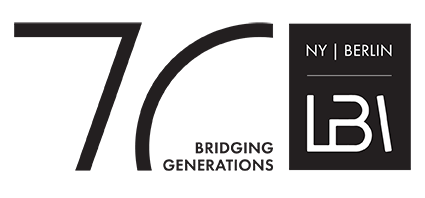
lecture
concert
'Tefilatah' (Her Prayer): The Female Experience Through the Eyes of Male Composers - In-person Event
This program offers a beautiful and culturally rich experience of how various male composers from different eras captured the female experience. It presents a rich tapestry of Jewish American and Israeli classical songs composed by male composers yet uniquely crafted from a female perspective and intended for the female voice.
Spanning various epochs and musical styles, the repertoire celebrates the profound tradition of Jewish music and literature, emphasizing the distinctive contributions of these composers. Each song serves as a narrative milestone within this genre, offering compelling stories that resonate deeply. The themes explored within the songs are diverse, ranging from the struggles of battered women to the yearnings for love, homeland, wealth, and stability—themes that often come with a high emotional cost.
Performed by soprano Ronit Widmann-Levy, this concert includes music by Kurt Weill, Menachem Wiesenberg, Daniel Akiva, Maurice Ravel, Sasha Argov, Oded Lerer, and Leonard Bernstein.
This program is supported, in part, by public funds from the New York City Department of Cultural Affairs, in partnership with the City Council.
Ticket Info: Free; registration is required
Presented by:


concert
concert
Jewish Songs and Dances for Piano: Joel Engel's "A krants yidishe folksnigunim" (1924) - Live on YouTube
Join us for a performance of Joel Engel’s A krants yidishe folksnigunim (1924): a collection of Jewish folksongs, dances, Hasidic nigunim, and religious melodies in arrangements for piano and four hand piano. Engel’s earlier Jewish Folksongs volumes I, II, and II (featured by YIVO in November 2020 and June 2021) were the first published classical compositions to feature Yiddish folksongs. His use of Yiddish folk music in his compositions proved to be influential and inspired the Society for Jewish Folk Music and the composers affiliated with it to create a vast oeuvre of similar work.
This collection of 29 pieces will be performed by Ryan MacEvoy McCullough and Sahun Sam Hong.
The Sidney Krum Young Artists Concert Series is made possible by a generous gift from the Estate of Sidney Krum.
This program is supported, in part, by public funds from the New York City Department of Cultural Affairs, in partnership with the City Council.
Ticket Info: Free; registration is required
Presented by:

concert
symposium
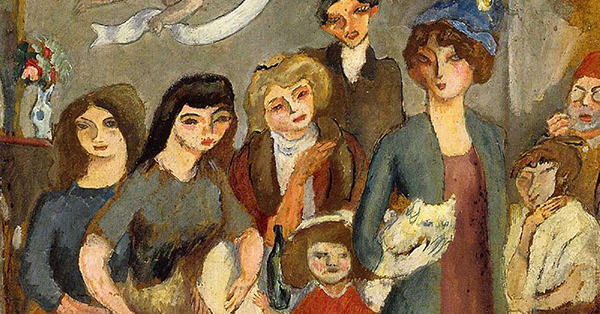
Translating Jewishness: Conversations on Culture and Civilization – In-Person Event
Translating Jewishness: Conversations on Culture and Civilization draws on the collection of the Posen Library of Jewish Culture and Civilization to engage two key modes of Jewish expression: anthologies and translations. Throughout the centuries, Jews have gathered selections from the storehouse of Jewish culture and civilization into more widely accessible anthologies. In addition, for as long as Jews have lived dispersed across the globe, they have translated their sacred texts into their current vernaculars. As Jews settled in more places and began to speak more languages, the choice of what to translate and make more readily available for contemporary audiences became more complicated. Translation accompanied anthologizing. This symposium explores the dynamics of translating and dimensions of the Jewish anthological imagination.
The symposium is presented in partnership with the Posen Library of Jewish Culture and Civilization. It is also supported by the American Jewish Historical Society, the Leo Baeck Institute, and the YIVO Institute for Jewish Research. It is organized with support from the David Berg Foundation & NYC Department of Cultural Affairs. The symposium is the sixth installment in a larger series of public symposia sponsored by the Center for Jewish History’s Jewish Public History Forum.
Related exhibition opening:
At 12:00 pm, we will host the opening of Translating Jewishness: Culture and Civilization in the Posen Library. Between 1880 and 1918, around the globe, regimes collapsed, migration and imperialism remade the lives of millions, nationalism and secularization transformed selves and collectives, utopias beckoned, and new kinds of social conflict threatened. Few communities experienced the pressures and possibilities of the era more profoundly than the world’s Jews.
This exhibit focuses on the range of Jewish expression—from mystical visions to political thought, cookbooks to literary criticism, modernist poetry to vaudeville—in English translations in Volume 7 of the Posen Library of Jewish Culture and Civilization, edited by Israel Bartal and Kenneth B. Moss. It features examples from seven languages drawn from sources at the Center for Jewish History.
Jewish secularism and the resurgence of traditionalism, the remaking of Jews as a modern nation, cultural assimilation and integration, the triumphs of Zionism and its discontents—all have their roots in this era. This exhibit offers an engaging starting point for anyone wishing to understand the divided Jewish present.
Ticket Info: Pay what you wish; click below to register (all proceeds go to the Center for Jewish History)
Presented by:


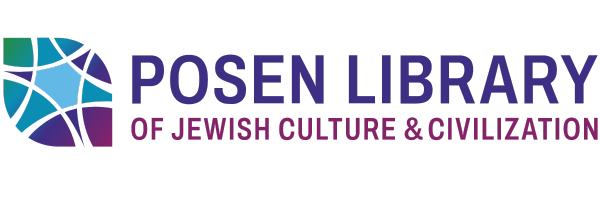


symposium
book talk
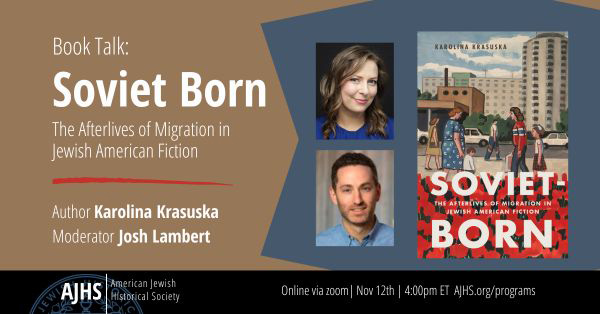
Soviet Born: The Afterlives of Migration in Jewish American Fiction – Live on Zoom
Join Soviet Born author Karolina Krasuska in discussion with moderator Josh Lambert.
In 2010, when The New Yorker published a list of twenty writers under the age of forty who were “key to their generation,” it included five Jewish-identified writers, two of whom—American Gary Shteyngart and Canadian David Bezmozgis—were Soviet-born. This publicity came after nearly a decade of English-language literary output by Soviet-born writers of all genders in North America. Soviet-Born: The Afterlives of Migration in Jewish American Fiction traces the impact of these now numerous authors—among others, David Bezmozgis, Boris Fishman, Keith Gessen, Sana Krasikov, Ellen Litman, Gary Shteyngart, Anya Ulinich, and Lara Vapnyar—on major coordinates of the Jewish American imaginary.
Entering an immigrant, Soviet-born standpoint creates an alternative and sometimes complementary pattern of how the Eastern and Central European past and present resonate with American Jewishness. The novels, short stories, and graphic novels considered here often stage strikingly fresh variations on key older themes, including cultural geography, the memory of World War II and the Holocaust, communism, gender and sexuality, genealogy, and finally, migration. Soviet-Born demonstrates how these diasporic writers, with their critical stance toward identity categories, open up the field of what is canonically Jewish American to broader contemporary debates.
Ticket Info: Free; register online for a Zoom link
Presented by:

book talk
film and discussion
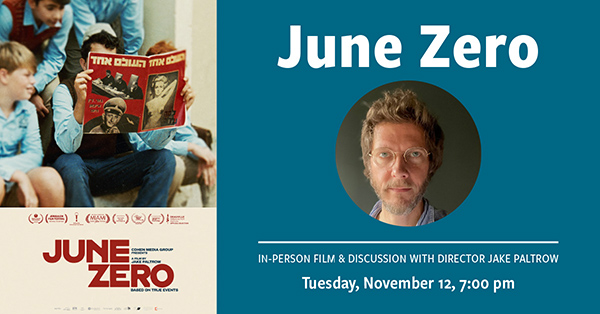
June Zero – In-Person Event
The 1961 trial of Adolf Eichmann, a principal architect of the Holocaust, is revisited in a gripping and surprising new vision from American filmmaker Jake Paltrow. Based on true accounts, June Zero is told from the unique perspectives of three distinct figures: Eichmann’s Jewish Moroccan prison guard; an Israeli police investigator who also happens to be a Holocaust survivor; and a precocious and clever 13-year-old Libyan immigrant.
Entirely shot on 16mm film, Paltrow’s vividly textured work brings to life the varied experiences of these characters, emphasizing that the same historical events are often perceived differently by people around the world. June Zerounderscores the notion that shared traumas have the power to forge the strongest bonds and give rise to unexpected moments of triumph and connection. As the film delves into the complexities of the human experience during this pivotal trial, it serves as a poignant reminder that history’s impact can be both diverse and unifying. A conversation with Jake Paltrow and Isaac Zablocki, Senior Director, Film Programs and Israel Film Center at the Marlene Meyerson JCC Manhattan, will follow the screening.
Ticket Info: Pay what you wish; click here for tickets
Presented by:

film and discussion
book talk
Jewish Folk Medicine in Eastern Europe - Live on Zoom
Jews have been active participants in shaping the healing practices of the communities of Eastern Europe. Their approach largely combined the ideas of traditional Ashkenazi culture with the heritage of medieval and early modern medicine. Holy rabbis and faith healers, as well as Jewish barbers, innkeepers, and peddlers, all dispensed cures, purveyed folk remedies for different ailments, and gave hope to the sick and their families based on kabbalah, numerology, prayer, and magical Hebrew formulas. Nevertheless, as new sources of knowledge penetrated the traditional world, modern medical ideas gained widespread support. Jews became court physicians to the nobility, and when the universities were opened up to them, many also qualified as doctors. At every stage, medicine proved an important field for cross-cultural contacts.
In A Frog Under the Tongue: Jewish Folk Medicine in Eastern Europe, Marek Tuszewicki studies manuscripts, printed publications, and memoirs to tease out therapeutic advice, recipes, magical incantations, kabbalistic methods, and practical techniques, together with the ethical considerations that such approaches entailed. His research fills a gap in the study of folk medicine in Eastern Europe, shedding light on little-known aspects of Ashkenazi culture, and on how the need to treat sickness brought Jews and their neighbors together.
Join YIVO for a discussion with Tuszewicki about this book, led by cultural critic and playwright Rokhl Kafrissen.
This program is supported, in part, by public funds from the New York City Department of Cultural Affairs, in partnership with the City Council.
Ticket Info: Free; registration is required.
Presented by:

book talk
convention
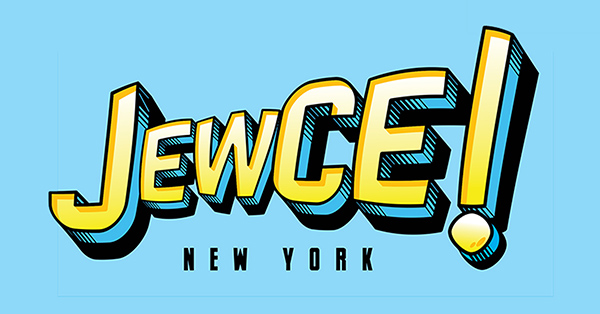
JewCE: The Jewish Comics Experience – In-Person Event
JewCE stands for the JEWISH COMICS EXPERIENCE. It’s the ultimate comics and pop culture event brought to you by the Center for Jewish History in New York City. JewCE is designed to be an inclusive convention, celebrating an industry largely created by Members of the Tribe, and promoting diverse Jewish narratives in comics and graphic novels. JewCE welcomes creators and pop culture fans from all walks of life.
Visit https://jewce.org/ for information and tickets
Ticket Info: Convention only (doors open at 9:00 am, panels begin at 10:00 am): $25
Convention only – CJH members: $20
Awards ceremony only (6:30 – 8:00 pm): $15
Combination ticket: $35
Combination ticket – CJH members: $30
Children 12 and under: Free
Presented by:

convention
book talk
The Yiddish Supernatural on Screen - Live on Zoom
As a linguistic carrier of a thousand years of European Jewish civilization, the Yiddish language is closely tied to immigrant pasts and sites of Holocaust memory. In The Yiddish Supernatural on Screen: Dybbuks, Demons and Haunted Jewish Pasts, Rebecca Margolis investigates how translated and subtitled Yiddish dialogue reimagines Jewish lore and tells new stories, where the supernatural looms over the narrative. The book traces the transformation of the figure of the dybbuk—a soul of the dead possessing the living—from folklore to 1930s Polish Yiddish cinema and on to global contemporary media. Margolis examines the association of spoken Yiddish with spectral elements adapted from Jewish legends within the horror genre. She explores how all-Yiddish prologues to comedy film and television depict magic located in an immigrant or pre-immigrant past that informs the present. Framing spoken Yiddish on screen as an ancestral language associated with trauma and dispossession, Margolis shows how it reconstructs haunted and mystical elements of the Jewish experience.
Join YIVO for a discussion with Margolis about her book, led by Olga Gershenson.
This program is supported, in part, by public funds from the New York City Department of Cultural Affairs, in partnership with the City Council.
Ticket Info: Free; registration is required.
Presented by:

book talk
lecture
In Search of Greener Fields: Rurality, Nostalgia, and Ideology in Yiddish-American Folksong - Live on Zoom
This presentation by Zeke Levine considers themes of rurality in 20th century Yiddish-American folksong. On one hand, the "fiddler on the roof" image of Yiddish rurality served as a nostalgic salve for American Jews attempting to negotiate their place in post-WWII United States. On the other, contemporary rural Yiddish life, expressed through songs such as "Dzhankoye," carried a radical ideological valence, symbolizing a Soviet-aligned return to the land that broke from the Tsarist past.
Through the analysis of musical performances, liner notes, and concert programs, this lecture unpacks the multitude of meanings of rurality within Yiddish-American folksong, linking this musical tradition not only with Eastern European antecedents but also with the burgeoning American folk revival.
This program is supported, in part, by public funds from the New York City Department of Cultural Affairs, in partnership with the City Council.
Ticket Info: Free; registration is required.
Presented by:

lecture
conversation
Fighting Back – Jewish Responses to Antisemitism - In-person Event
Featuring Michael Brenner and Jane Eisner
In 1932, Germany’s leading Jewish civil rights organization, the Central Association of German Jews, or Centralverein, published a brochure entitled We German Jews. 321–1932. The dates in the title made explicit reference to the documented presence of Jews in the Roman provinces in the Rhineland for over 16 centuries to refute the antisemitic view that Jews were an alien presence in Germany.
The Centralverein represented the broad middle of German-Jewish society, and since the late-19th century, it had documented and fought antisemitism through various methods – in the courts, through political lobbying, and through publications like We German Jews. Yet each of these defenses against antisemitism had its pitfalls. Court trials often gave antisemites a platform for spreading their propaganda and rarely resulted in significant punishments. Even friendly political parties failed to take strong action out of fear that being perceived as a “Jewish Party” would have negative electoral consequences. And the apologetics typified by the 1932 brochure convinced too few among the public.
Join us when historian Michael Brenner and journalist Jane Eisner will discuss what lessons these Jewish responses to antisemitism offer for today’s world.
Ticket Info: Free; registration required
Presented by:

conversation
curator's tour
Curator's Tour of Tapestries by Shoshana Comet: From Survival to Strength - In-person Event
Join Curator Ilana Burstein Benson for a guided tour of the exhibition. The five tapestries in this exhibition were created in the late 1960s by psychotherapist and Holocaust survivor, Shoshana Comet (1923 – 2011). Through the lens of these unique works and Shoshana’s story, we explore the themes of Holocaust history and trauma, psychological repair, and affirmation of life.
Ticket Info: Free admission but reservations are required. To attend, please email RSVP@yum.cjh.org and include the date of the tour you are registering for.
Presented by:
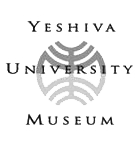
curator's tour
book talk
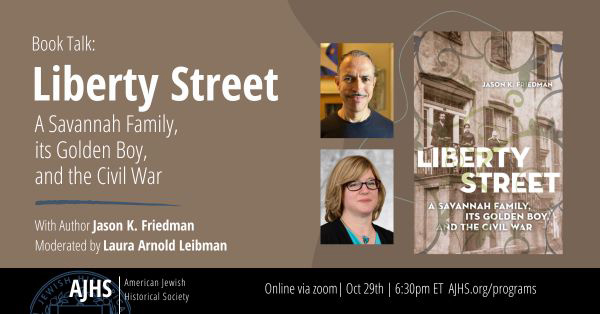
Liberty Street: A Savannah Family, its Golden Boy, and the Civil War - Live on Zoom
Join us online for a discussion with author Jason K. Friedman and moderator Laura Arnold Leibman!
As Jason K. Friedman renovated his flat in a grand townhouse in his hometown of Savannah, Georgia, he discovered a portal to the past. The Cohens, part of a Sephardic community in London, arrived in South Carolina in the mid-1700s; became founding members of Charleston’s Jewish congregation; and went on to build home, community, and success in Savannah.
In Liberty Street: A Savannah Family, Its Golden Boy, and the Civil War Friedman takes the reader on a personal journey to understand the history of the Cohens. At the center of the story is a sensitive young man pulled between love and duty, a close-knit family straining under moral and political conflicts, and a city coming into its own. Friedman draws on letters, diaries, and his experiences traveling from Georgia to Virginia, uncovering hidden histories and exploring the ways place and collective memory haunt the present. At a moment when the hard light of truth shines on gauzy Lost-Cause myths, Liberty Street is a timely work of historical sleuthing.
Ticket Info: Free with RSVP
Presented by:

book talk
conversation
"As a Jew" – Identity, Conflict, and Politics - In-person Event
Featuring Philipp Nielsen and Emily Tamkin
On the eve of WWI, German Jews had enjoyed full civil rights for at least a generation but found their place in society was still contested. Sensing an opportunity for full integration, many enthusiastically pledged their support to Kaiser and Fatherland. By 1916, when Prussian military officials demanded a census of Jewish soldiers to prove their suspicion that they were shirking combat duty, it was clear that the Jews might be blamed for a military defeat. And the “stab-in-the-back” myth that held Jews responsible for Germany’s catastrophic defeat in 1918 proved one of the most enduring tropes of the fascist movement.
As historian Philipp Nielsen has shown, however, not all German Jews perceived antisemitism as the greatest threat to their position in society in this period. Some during WWI viewed Germany as a potential liberator of their brethren in the East from the oppression of the Czar. After the war, many of those who resented the denigration of their war service by antisemites still saw a greater threat in Bolshevism. Some defended their belonging in the German polity by drawing careful distinctions between themselves and Zionists, Socialists, and new Jewish immigrants from the East.
In her survey of inner-Jewish conflicts over the last century in America, Bad Jews, Emily Tamkin has outlined how groups of American Jews have staked out analogous positions, both in the same period and up until the current day. While the context was different in the early 20th century and has only transformed since, many of the same divisions – between left-wing Jews and right-wing Jews, Zionists and non-Zionists, secular Jews and religious Jews – are recognizable.
Ticket Info: Free; registration required
Presented by:

conversation
book talk
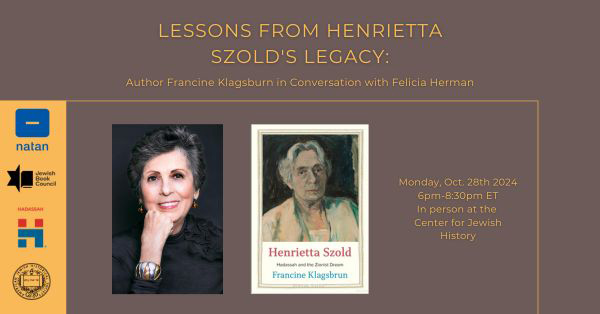
Lessons from Henrietta Szold's Legacy: Author Francine Klagsburn in Conversation with Felicia Herman – In-person Event
Award-winning author Francine Klagsbrun discusses Henrietta Szold: Hadassah and the Zionist Dream, her new biography of Henrietta Szold, the founder of Hadassah and a Zionist trailblazer, with moderator Felicia Herman in celebration of this book receiving a Natan Notable Book Award from the Natan Fund in partnership with the Jewish Book Council.
Henrietta Szold (1860–1945) was a pioneer who challenged prevailing attitudes of immigrants, Jews, and women to create new educational, health, and Zionist institutions that still exist today. In this new biography, Klagsbrun details the incredible achievements of this extraordinary woman who understood not just the ideals but also the necessary actions—of her and of the world around her—to build a better world for Jews, Americans, and immigrants. The founder of Hadassah–the Women’s Zionist Organization of America–Szold was also a scholar, editor, and translator; an educator who started a night school for new immigrants in Baltimore that became a model for schools across the United States; the director of Youth Aliyah, which rescued thousands of Jews from Nazis; and an advocate for numerous public health initiatives in America and the Yishuv.
In a moment when it feels like the world is in so much turmoil, we are looking to Szold, who mobilized generations of American Jewish women to advocate for the future of America and Israel. We are honored to celebrate her legacy, Francine Klagsbrun’s compelling biography, and the legacy of American Jewish women who have been and continue to advocate for a better tomorrow.
Francine Klagsbrun is the author of numerous books, including the award-winning Lioness: Golda Meir and the Nation of Israel. She has been a columnist for Jewish Week and Moment, is a contributing editor to Lilith, and is on the editorial board of Hadassah Magazine. Her writings have appeared in the New York Times, the Boston Globe, Newsweek, Ms.magazine, and other national publications.
Felicia Herman is Managing Director, North America, of Maimonides Fund and Associate Editor of SAPIR: Ideas for a Thriving Jewish Future. She joined Maimonides in 2021 after 16 years as Executive Director of Natan, a giving circle/grantmaking foundation focused on supporting Jewish and Israeli social innovation. During the COVID-19 pandemic, she also served as Director of the Aligned Grant Program of the Jewish Community Response and Impact Fund. Felicia sits on the boards of the American Jewish Historical Society, DreamStreet Theatre Company, and Natan, as well as on the advisory boards of two initiatives launched by Natan: Shomer Collective and Amplifier, both of which she founded. She holds a Ph.D. in Jewish History and an M.A. in Jewish Women’s Studies from Brandeis University, and she is a proud recipient of the Jewish Funders Network’s JJ Greenberg Memorial Award.
This program is in partnership with the Natan Fund, the Jewish Book Council, and Hadassah: The Women’s Zionist Organization of America.
Ticket Info: Free with RSVP
Presented by:

book talk
conversation
Antisemitism as a Pillar of Fascism - In-person Event
Featuring John Ganz and Gavriel D. Rosenfeld
Hitler’s attempt to wrest control of the German state and end Weimar democracy from the cellar of Munich’s Bürgerbräu beer hall in 1923 failed spectacularly and landed him in prison for the better part of a year. Of course, Hitler also used his trial and imprisonment to raise his political profile. In Landsberg prison, he composed Mein Kampf, full of antisemitic myths about the perfidy of Jewish Bolshevists (not to mention Jewish capitalists) and loathing of democracy.
Recent years have seen an intensification of old debates about whether fascism is a useful category to apply to contemporary political movements centered around personality cults, a restoration of past greatness, and disillusionment with democracy. While no such movement has succeeded in dismantling the administrative state or procedural democracy in the United States, some astute observers have pointed out that the attack on the US Capitol on January 6, 2021 rhymes historically with the failed putsch of 1923 as a premature grasping for power by a movement that might still prevail.
As co-editor of the volume Fascism in America: Past and Present, historian Gavriel Rosenfeld has made a critical intervention in this debate by focusing on the actual history of fascist groups in the interwar United States. In several books focused on counterfactual history, most recently, The Fourth Reich: The Specter of Nazism from WWII to the Present, he has also examined how fear of Nazism still functions in our politics and discourse. The writer John Ganz has also engaged with the concept of fascism in contemporary politics on his popular Substack Unpopular Front. His first book, When the Clock Broke: Con Men, Conspiracists, and How America Cracked Up in the Early 1990s traces the genealogy of America’s current political crises to the supposed populists who arose in US politics after the end of the Cold War. Unsurprisingly, antisemitism plays a significant role in both their studies.
Ticket Info: Free; registration required
Presented by:

conversation
curator's tour
Curator's Tour of Tapestries by Shoshana Comet: From Survival to Strength - In-person Event
Join Curator Ilana Burstein Benson for a guided tour of the exhibition. The five tapestries in this exhibition were created in the late 1960s by psychotherapist and Holocaust survivor, Shoshana Comet (1923 – 2011). Through the lens of these unique works and Shoshana’s story, we explore the themes of Holocaust history and trauma, psychological repair, and affirmation of life.
Ticket Info: Free admission but reservations are required. To attend, please email RSVP@yum.cjh.org and include the date of the tour you are registering for.
Presented by:

curator's tour
workshop
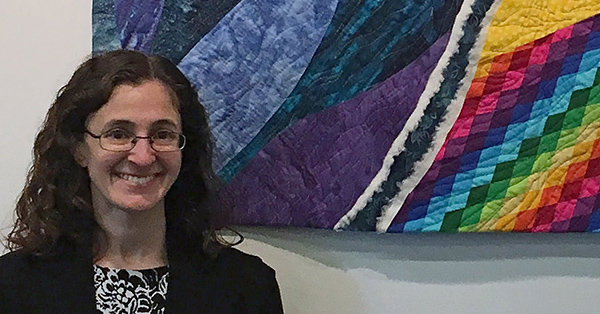
Fabric Art Workshop for Adults (ages 14 and up) - In-person Event
Participants will view the exhibition, Tapestries by Shoshana Comet: From Survival to Strength and create a piece of fabric art inspired by a meaningful life event - transition, healing, joy, or hope.
Workshop will be led by fiber artist Heather Stoltz, whose quilted wall hangings and fabric sculptures are inspired by social justice issues and Hebrew texts.
Ticket Info: $12 per person (or per family project)
Presented by:

workshop
concert
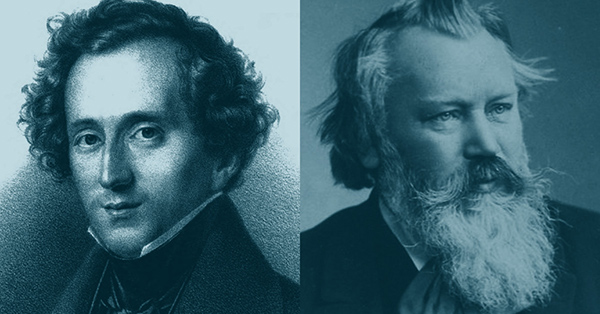
Romantic Yearnings: The expressive piano trios of Brahms, Mendelssohn, and more – In-Person event and live on YouTube
Join Phoenix Chamber Ensemble pianists Vassa Shevel and Inessa Zaretsky with guest artists Anna Elashvili on violin and Joshua Halpern on cello.
Program:
Joseph Achron: Stimmungen
Bela Bartok: Romanian Dances
Johannes Brahms: Trio in C Major, Op.87
Gabriel Fauré: Élégie, Op.24
Felix Mendelssohn-Bartholdy: Piano Trio in C minor, Op.66
Founded in 2005 by pianists Vassa Shevel and Inessa Zaretsky, the Phoenix Chamber Ensemble has, over the course of two decades, become a vital part of the New York classical community, presenting more than 70 public concerts at the Center for Jewish History. The ensemble has garnered a devoted following with its innovative programming and sensitive interpretations, earned an international reputation presenting concerts in Russia, Poland, Italy, and other European venues, and collaborated with numerous acclaimed guest artists, including clarinetist David Krakauer, the Grammy-nominated Enso Quartet, the Tesla Quartet, members of the Jasper String Quartet, the New York Little Opera Company, the Metropolitan Opera, and New York City Ballet.
Made possible by the Stravinsky Institute Foundation through the generous support of the Blavatnik Family Foundation. Presented in partnership with the Leo Baeck Institute.
Ticket Info:
In person: $15 general; $13 senior/student; $12 member; click here for tickets
YouTube: Pay what you wish; click here for tickets
Presented by:

concert
curator's tour
Curator's Tour of Tapestries by Shoshana Comet: From Survival to Strength - In-person Event
Join Curator Ilana Burstein Benson for a guided tour of the exhibition. The five tapestries in this exhibition were created in the late 1960s by psychotherapist and Holocaust survivor, Shoshana Comet (1923 – 2011). Through the lens of these unique works and Shoshana’s story, we explore the themes of Holocaust history and trauma, psychological repair, and affirmation of life.
Ticket Info: Free admission but reservations are required. To attend, please email RSVP@yum.cjh.org and include the date of the tour you are registering for.
Presented by:

curator's tour
film and panel discussion
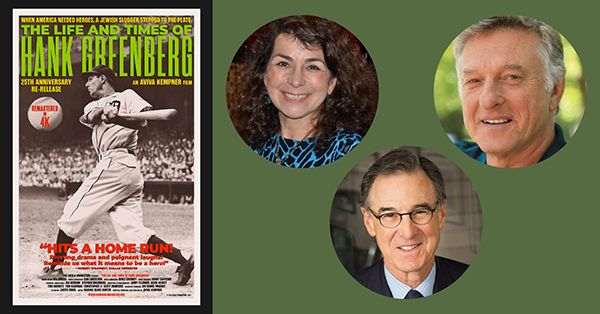
The Life and Times of Hank Greenberg – In-Person Event
Please join us for a remastered version of the acclaimed documentary on the 25th anniversary of the film’s release and the 90thanniversary of Hank Greenberg’s Yom Kippur stand.
The Life and Times of Hank Greenberg is a humorous and nostalgic documentary about an extraordinary baseball player who transcended religious prejudice to become an American icon. Detroit Tiger Hammerin’ Hank’s accomplishments during the Golden Age of Baseball rivaled those of Babe Ruth and Lou Gehrig.
This compelling documentary examines how America’s first Jewish baseball star was a beacon of hope to American Jews who faced bigotry during the Depression and World War II. Included in the colorful collage of 47 interviews are Hank Greenberg and family members; sports figures Ira Berkow, Ernie Harwell, Joe Falls and Dick Schaap; fellow players Bob Feller, Charlie Gehringer and Ralph Kiner; fans Alan Dershowitz, Congressman Sander Levin and Senator Carl Levin; and actors Walter Matthau, Michael Moriarty, and Maury Povich.
The screening will be followed by a conversation with director, producer, and writer Aviva Kempner, Pulitzer prize-winning sports columnist for The New York Times and editor of Hank Greenberg: The Story of My Life, Ira Berkow, and Hank Greenberg’s son, Stephen Greenberg. The discussion will be moderated by Rebecca T. Alpert (Temple University).
About the Speakers:
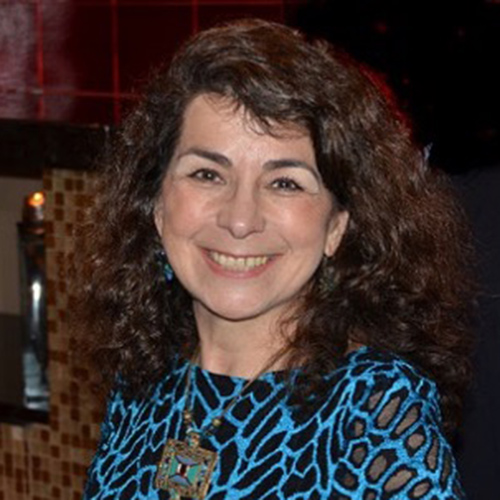 Washington, DC based filmmaker Aviva Kempner makes award winning documentaries about underknown Jewish heroes for 44 years. Kempner just completed A Pocketful of Miracles: A Tale of Two Siblings (2023), which chronicles the heroism of the two Ciesla Foundation namesakes, Helen Ciesla Covensky and David Chase—siblings who survived the Holocaust separately and managed to reunite after the war. She co-directed, co-wrote and co-produced Imagining the Indians: The Fight Against Native American Mascoting (2022), adocumentary on the movement to remove Native American names, logos, and mascots from the world of sports. Her The Spy Behind Home Plate (2019)is about baseball player and OSS spy Moe Berg. Kempner launched the SEW: Sports Equality for Women website which strived to amplify the stories and voices of women in sports.
Washington, DC based filmmaker Aviva Kempner makes award winning documentaries about underknown Jewish heroes for 44 years. Kempner just completed A Pocketful of Miracles: A Tale of Two Siblings (2023), which chronicles the heroism of the two Ciesla Foundation namesakes, Helen Ciesla Covensky and David Chase—siblings who survived the Holocaust separately and managed to reunite after the war. She co-directed, co-wrote and co-produced Imagining the Indians: The Fight Against Native American Mascoting (2022), adocumentary on the movement to remove Native American names, logos, and mascots from the world of sports. Her The Spy Behind Home Plate (2019)is about baseball player and OSS spy Moe Berg. Kempner launched the SEW: Sports Equality for Women website which strived to amplify the stories and voices of women in sports.
Kempner made Rosenwald (2015), a documentary about how philanthropist Julius Rosenwald partnered with Booker T. Washington in establishing over 5,000 schools with African Americans in the Jim Crow South. She also made Yoo-Hoo, Mrs. Goldberg (2009), about Gertrude Berg who created the first television sitcom. She also wrote and directed the short film Today I Vote for My Joey (2002), a tragic comedy about the 2000 Presidential Elections in Palm Beach County. Kempner directed the Peabody awarded The Life and Times of Hank Greenberg (1999), about the Hall Famer slugger who faced anti-Semitism during the 30s. It is being rereleased this September for its 25th anniversary. She also produced the award-winning Partisans of Vilna (1986), about Jews fighting the Nazis, whose entire interviews are being digitized by the USC Shoah Foundation.
She is presently finishing a film on famous screenwriter and journalist Ben Hecht, who as an activist exposed the horrors of the Holocaust to the American public and advocated to bring more Jews to US shores. Kempner is also making Pissed Off, a documentary short exploring the struggles faced by female lawmakers in Congress who advocated for potty parity in the United States Capitol.
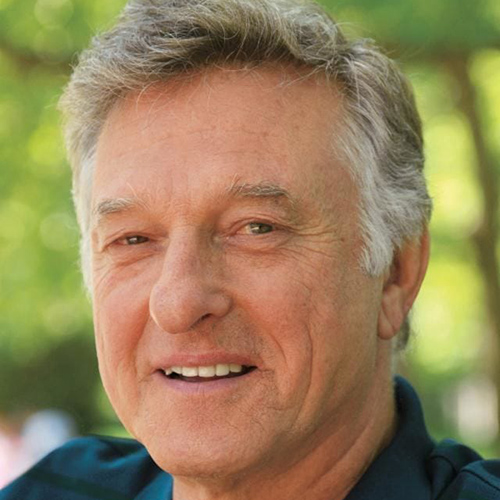 Ira Berkow earned his BA in English Literature at Miami University, and his MA from the Medill School of Journalism, Northwestern University. He was a reporter for the Minneapolis Tribune, a syndicated features writer, sports and general columnist, and sports editor for the Newspaper Enterprise Association.
Ira Berkow earned his BA in English Literature at Miami University, and his MA from the Medill School of Journalism, Northwestern University. He was a reporter for the Minneapolis Tribune, a syndicated features writer, sports and general columnist, and sports editor for the Newspaper Enterprise Association.
From 1981 to 2007 he was a sports reporter and columnist for The New York Times and has written for Esquire, The New York Times Magazine, Art News, Seventeen, Chicago Magazine, The Chicago Tribune Magazine, National Strategic Forum Review, Reader's Digest, and Sports Illustrated, among others.
He shared the 2001 Pulitzer Prize for National Reporting for his article "The Minority Quarterback" in The New York Times series “How Race Is Lived in America.” His work has been reprinted or cited over six decades in the annual anthologies Best Sports Stories and its successor Best American Sports Writing, and a column of his was included in Best American Sports Writing of the Century (1999). The novelist Scott Turow wrote, "Ira Berkow is one of the great American writers, without limitation to the field of sports." He was also a finalist for the Pulitzer Prize in 1988, "For thoughtful commentary on the sports scene."
In 2006, he was inducted into the International Jewish Sports Hall of Fame. He holds an honorary doctorate degree from Roosevelt University (Chicago), 2009. Berkow is the author of 26 books including the Edgar Allan Poe Award nominated non-fiction The Man Who Robbed The Pierre: The Story of Bobby Comfort and the Biggest Hotel Robbery Ever.
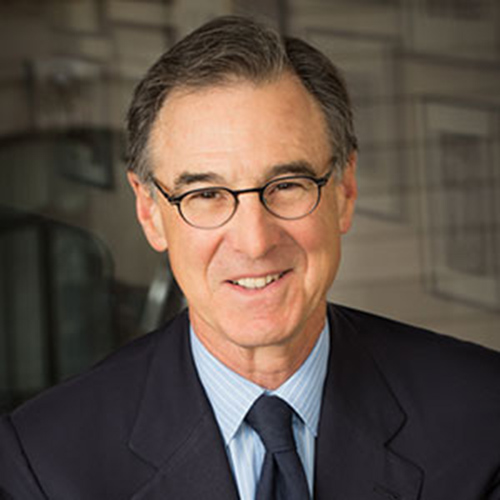 Stephen Greenberg is the son of Hall-of-Famer Hank Greenberg. He currently serves as Managing Director at Allen & Company, where he focuses on the sports and media industries. Previously, Stephen served as Deputy Commissioner of Major League Baseball and, with his business partner Brian Bedol, co-founded Classic Sports Network (now known as ESPN Classic) and CSTV: College Sports Television (now known as CBS Sports Network). He is on the Board of Directors of the Jackie Robinson Foundation.
Stephen Greenberg is the son of Hall-of-Famer Hank Greenberg. He currently serves as Managing Director at Allen & Company, where he focuses on the sports and media industries. Previously, Stephen served as Deputy Commissioner of Major League Baseball and, with his business partner Brian Bedol, co-founded Classic Sports Network (now known as ESPN Classic) and CSTV: College Sports Television (now known as CBS Sports Network). He is on the Board of Directors of the Jackie Robinson Foundation.
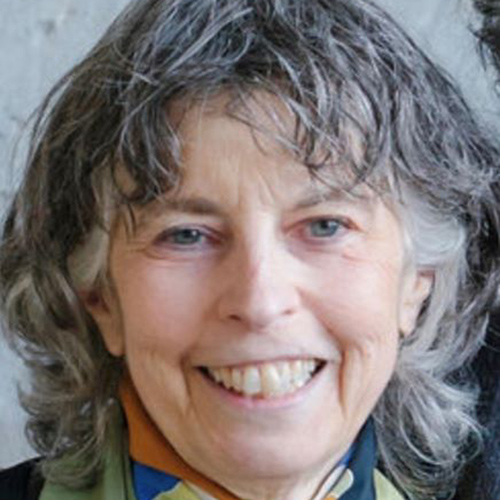 Rebecca T. Alpert is Professor of Religion Emeritus at Temple University. She attended Barnard College before receiving her Ph.D. in religion at Temple University and her rabbinical training at the Reconstructionist Rabbinical College in Wyncote, Pennsylvania.
Rebecca T. Alpert is Professor of Religion Emeritus at Temple University. She attended Barnard College before receiving her Ph.D. in religion at Temple University and her rabbinical training at the Reconstructionist Rabbinical College in Wyncote, Pennsylvania.
Her major work in the field of religion and sport, Out of Left Field: Jews and Black Baseball, was published by Oxford University Press in June 2011. She is currently the book review editor for the International Journal of Religion and Sport and co-editor of a soon to be published Routledge Handbook on Religion and Sport.
Ticket Info: $15 general; $13 senior/student; $12 CJH members; click here to purchase tickets
Presented by:

film and panel discussion
exhibit opening & panel discussion
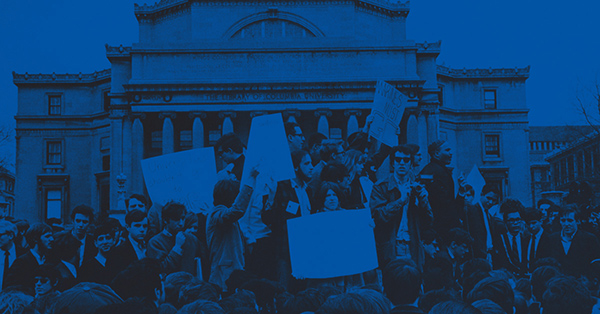
Between Antisemitism and Activism: The Jewish University Experience in Historical Perspective – In-Person Event
7:00pm: Exhibition viewing
7:30pm: Panel discussion followed by reception
Given the continuation of campus protests against the war in Gaza between Israel and Hamas, CJH’s new exhibition Between Antisemitism and Activism could not be more timely.
Between Antisemitism and Activismexamines the turbulent experiences of Jewish students and faculty at European and American universities over the course of the past century. Through a series of thought-provoking historical vignettes, visitors will explore how Jews have been targets of antisemitic persecution as well as passionate leaders of activist movements.
From the harrowing experiences of Jewish scholars in Nazi Germany to the creation of Jewish student organizations in the United States, the exhibition offers visitors a historical perspective on the ongoing challenges facing Jewish students and faculty on college campuses. As college students return for the fall academic semester, the exhibition will provide essential historical context for understanding the complexities of Jewish life and activism at today's universities.
Panelists Eric Alterman (Brooklyn College), Rebecca Kobrin (Columbia University), Jodi Rudoren (editor-in-chief, The Forward), and Daniel Schwartz (George Washington University), will discuss the history and present-day reality of antisemitism at American universities since October 7th. The discussion will be moderated by CJH President Gavriel Rosenfeld.
Ticket Info: Pay what you wish; register here
Presented by:

exhibit opening & panel discussion
curator's tour
Curator's Tour of Tapestries by Shoshana Comet: From Survival to Strength - In-person Event
Join Curator Ilana Burstein Benson for a guided tour of the exhibition. The five tapestries in this exhibition were created in the late 1960s by psychotherapist and Holocaust survivor, Shoshana Comet (1923 – 2011). Through the lens of these unique works and Shoshana’s story, we explore the themes of Holocaust history and trauma, psychological repair, and affirmation of life.
Ticket Info: Free admission but reservations are required. To attend, please email RSVP@yum.cjh.org and include the date of the tour you are registering for.
Presented by:

curator's tour
lecture and concert
Nusakh Vilne Memorial - In-person Event and Live on Zoom
Join us in commemorating the Jewish community of Vilna through poetry, music, and presentation. This year, Bret Werb will discuss Shmerke Kaczerginski’s work collecting songs of the Holocaust. A mini concert featuring musical settings of Kaczerginski’s poetry performed by Temma Schaechter and Binyumen Schaechter will follow Werb’s presentation.
This program is supported, in part, by public funds from the New York City Department of Cultural Affairs, in partnership with the City Council.
Ticket Info: Free; registration required
Presented by:

lecture and concert
workshop

Fabric Art Workshop for Adults (ages 14 and up) - In-person Event
Participants will view the exhibition, Tapestries by Shoshana Comet: From Survival to Strength and create a piece of fabric art inspired by a meaningful life event - transition, healing, joy, or hope.
Workshop will be led by fiber artist Heather Stoltz, whose quilted wall hangings and fabric sculptures are inspired by social justice issues and Hebrew texts.
Ticket Info: $12
Presented by:

workshop
walking tour
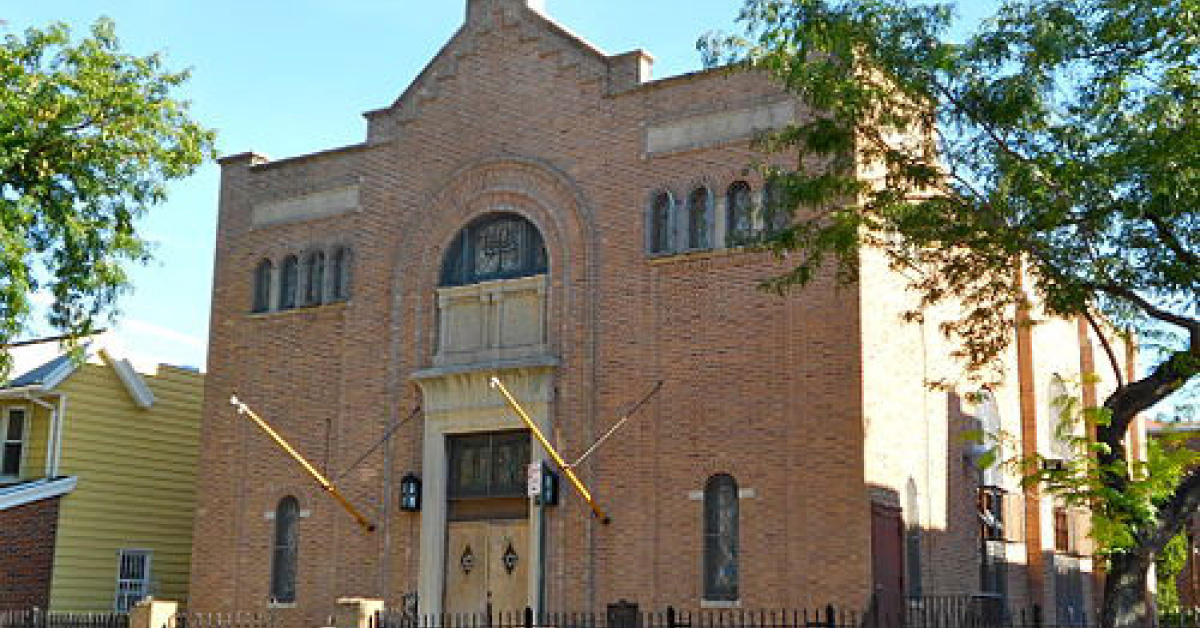
Walking Tour: Brooklyn’s Sephardic Community (2 hours)
Sarina Roffé, professional genealogist and founder of the Sephardic Heritage Project, will lead an in-depth journey through the vibrant 100-year history of Brooklyn’s Syrian Jewish community. As a lifelong member of this famously insular community, Roffé will offer her unique insider’s perspective. Strolling through Gravesend, an iconic Brooklyn neighborhood that now houses Sephardic Jews hailing from Egypt, Lebanon, Morocco, and Syria, we’ll visit synagogues and community centers, pass magnificent homes and modest grocery stores, and enjoy a snack on Ocean Parkway.
The tour will be held rain or shine. Note: Some tour stops are not wheelchair accessible. The meeting location and additional logistical information will be emailed to all registrants one week before the tour, and again the day before the tour.
Ticket Info: This event is sold out.
Presented by:

walking tour
panel discussion
New Perspectives on European Jewish History - Live on Zoom
A Jew in the Street: New Perspectives on European Jewish History brings together original scholarship by 17 historians, drawing on the pioneering research of their teacher and colleague, Michael Stanislawski. These essays explore a mosaic of topics in the history of modern European Jewry from early modern times to the present, including the role of Jewish participants in the European revolutions of 1848, the dynamics of Zionist and non-Zionist views in the early 20th century, the origins of a magical charm against the evil eye, and more. Collectively, these works reject ideological and doctrinal clichés, demythologize the European Jewish past, and demonstrate that early modern and modern Jews responded creatively to modern forms of culture, religion, and the state from the 18th to the 20th centuries. Contributors to this volume pose new questions about the relationship between the particular and universal, antisemitism and modernization, religious and secular life, and the bonds and competition between cultures and languages, especially Yiddish, Hebrew, and modern European languages. These investigations illuminate the entangled experiences of Jews who sought to balance the pull of communal, religious, and linguistic traditions with the demands and allure of full participation in European life.
Join YIVO for a panel discussion about this new volume with editors Nancy Sinkoff, Jonathan Karp, James Loeffler, and Howard Lupovitch.
This program is supported, in part, by public funds from the New York City Department of Cultural Affairs, in partnership with the City Council.
Ticket Info: Free; registration is required
Presented by:

panel discussion
concert
Jewish Musicians in 18th-Century London with the Raritan Players - In-person Event
Eighteenth-century London was an especially cosmopolitan city and a relatively tolerant one, which led Jewish musicians from across Europe—from Sephardic, Ashkenazic, Italian, and Eastern descent—to move there. The Jewish community adopted musical customs of the greater London scene while maintaining their own musical traditions. By the second half of the century, Jewish musicians were performing in opera houses, public concerts, and at the English royal court alongside the leading Christian musicians of their day. While some managers and institutions were accommodating, Jewish musicians sometimes experienced clear anti-Jewish sentiment. By exploring the careers of Jewish figures such as the cellists Jacob and James Cervetto and the singer-composer Harriett Abrams, this concert by the Raritan Players sheds new light on the themes of exile, diaspora, belonging, and music as a site of self-expression among Jews in 18th-century London.
This program is supported, in part, by public funds from the New York City Department of Cultural Affairs, in partnership with the City Council.
Ticket Info: Free; registration is required
Presented by:

concert
concert and lecture
Darius Milhaud’s Opera 'Esther de Carpentras' - In-person Event
Esther de Carpentras is an opera-bouffe in two acts composed by Darius Milhaud and based on a text by Armand Lunel. It premiered in 1938 at the Paris Opéra Comique, just two years prior to Milhaud’s escape to the United States. Both the music and libretto reference the literary and theatrical interpretations of the biblical Esther story and integrate the Jewish heritage of Milhaud and Lunel with that of the papal domains of Avignon and the Comtat Venaissin (13th to 18th centuries) in southern France. Traditional readings of the Esther stories and the accompanying theatrical performances took place during the festival of Purim in the carrières (Jewish ghettos) of the cities of Avignon, Cavaillon, Carpentras, and L’isle-sur-Sorgue. In the synagogues, the biblical text was read in Hebrew, understood exclusively by the community’s men, while the literary, musical, and theatrical performances were staged in colloquial Judéo-Provençal, thus accessible also to the community’s women and children. Similar musical and theatrical performances existed in other Jewish (Ashkenazi and Sephardic) and Christian communities of Europe, a heritage that shaped both the composer’s and librettist’s vision.
This performance will feature excerpts from the opera, a video animation interpreting the work, as well as short lectures.
This program is supported, in part, by public funds from the New York City Department of Cultural Affairs, in partnership with the City Council.
Ticket Info: Free; registration is required
Presented by:

concert and lecture
commemoration
Remembering Fishl Kutner - Live on Zoom
Philip (Fishl) Kutner dedicated his life to Yiddish culture. He served as president of the International Association of Yiddish Clubs (IAYC), helping to coordinate Yiddish conferences throughout North America. Fishl also published Der Bay, an Anglo-Yiddish newsletter focusing on Yiddish culture that ran for 25 years. Der Bay had a readership across every US state and 35 countries around the world. Fishl passed away in February 2024, but he leaves behind a lasting impact in the Yiddish cultural world.
Commemorate the life and achievements of Yiddish culture advocate Fishl Kutner through this virtual two-and-a-half-hour tribute program complete with lectures, theater performances, Yiddish conversation, and resources for learning Yiddish.
This program is supported, in part, by public funds from the New York City Department of Cultural Affairs, in partnership with the City Council.
Ticket Info: Free; registration is required.
Presented by:

commemoration
concert
Music in Our Time 2024 - A Bouquet of Jewish Choral Music - In-person Event
Join us for a bouquet of Jewish choral music performed by the acclaimed New York Virtuoso Singers, under the direction of its award-winning conductor Harold Rosenbaum. The program includes music by Pulitzer Prize-winning composers Yehudi Wyner, Aaron Jay Kernis, Shulamit Ran, and Ellen Taaffe Zwilich, as well as new and exciting Jewish music by Samuel Adler, Gerald Cohen, Alex Guerrero, Leon Hyman, Natasha Hirschhorn, Joel Mandelbaum, and Alex Weiser.
This program is supported, in part, by public funds from the New York City Department of Cultural Affairs, in partnership with the City Council.
Ticket Info: Admission: $18; YIVO, ASJM & LBI members: $12; Seniors & students: $9
Presented by:

concert
film and discussion
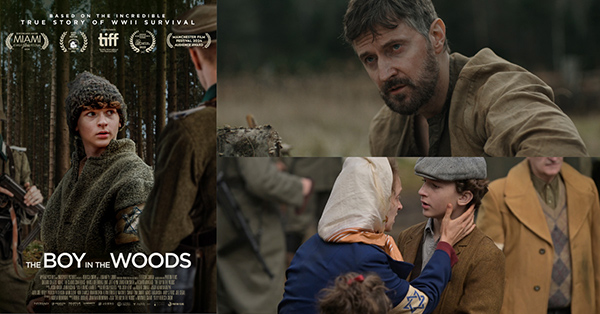
The Boy in the Woods – In-Person Event
Winner of multiple film festival awards, The Boy in the Woods follows the true story of Max (Jett Klyne), a Jewish boy escaping Nazi persecution in Eastern Europe. After he is separated from his family, Max finds refuge with a Christian peasant, Jasko (Richard Armitage), who hides him in plain sight until a tense stand-off with some Nazi police. Afraid for his own family's life, Jasko sends Max to live in the woods where he learns to survive alone. With echoes of a Grimm's Fairy Tale, Max's experience is both terrifying and magical. He inhabits a landscape crawling with Jew-hunters and partisans and haunted by ghosts. Then everything changes when he meets another boy in hiding, Yanek (David Kohlsmith). Their extraordinary adventure culminates in the heroic rescue of a baby girl, but it comes at a tragic price. Based on the best-selling memoir by Canadian Holocaust survivor Maxwell Smart and inspired by the award-winning documentary Cheating Hitler: Surviving the Holocaust.
The screening will be followed by a panel discussion with writer and director Rebecca Snow, lead actor Richard Armitage, and the survivor on whose memoir the film is based, Maxwell Smart. The discussion will be moderated by Annette Insdorf, host of Reel Pieces at the 92nd Street Y.
The film will be available on VOD and digital platforms in the US on September 24th. For pre-orders on Apple iTunes go to https://tv.apple.com/us/movie/the-boy-in-the-woods/umc.cmc.x6fjuyoh1n66tjv793g71p4w .
About the Speakers:
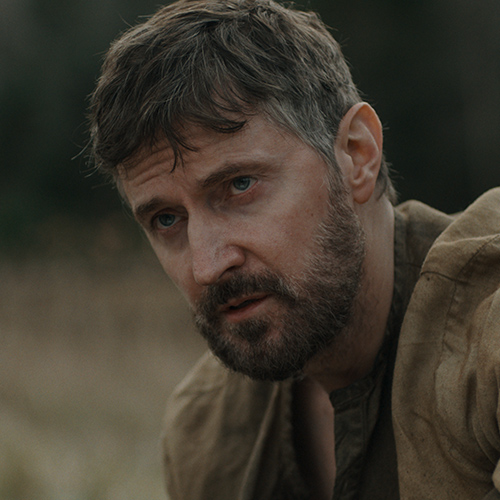 Richard Armitage recently wrapped production on the Netflix limited series DAMAGE, based on the 1991 novel about a British politician in the prime of his life, who causes his own downfall through an inappropriate relationship. He stars alongside Charlie Murphy, who plays Armitage’s daughter-in-law turned love interest in the series. Richard can currently be seen in the British crime limited series, STAY CLOSE, based on Harlan Corben’s novel of the same name for Netflix. The series debuted on December 31st and was the fifth most watched English language series on Netflix in the week following its release. Richard can previously be seen as the lead in Netflix’s series THE STRANGER based on Harlan Coben’s eponymous novel and in the third season of EPIX’s espionage drama, BERLIN STATION opposite Richard Jenkins and Rhys Ifans. Anonymous Content (MR. ROBOT) produced the show and Michael Roksam (BULLHEAD) directed it. He also appeared as the lead villain in Gary Ross’ OCEAN’S EIGHT alongside Sandra Bullock, Cate Blanchett, Anne Hathaway, Helena Bonham Carter, Sarah Paulson, Rihanna, and Mindy Kaling. Richard boasts a diverse resume in film, television, and the stage, gaining momentum on UK shows including ‘MI-5’ and ‘Robin Hood.’ He achieved international recognition with his performance in the 2011 box office smash ‘Captain America: The First Avenger’ opposite Chris Evans and Hugo Weaving, before following it up with his iconic performance as ‘Thorin’ in Peter Jackson’s THE HOBBIT trilogy, which has grossed over $1 billion to date. Richard can be seen as the lead in PILGRIMAGE opposite Tom Holland and Jon Bernthal as well as BRAIN ON FIRE (directed by Gerard Barrett) opposite Chloe Grace Moretz.
Richard Armitage recently wrapped production on the Netflix limited series DAMAGE, based on the 1991 novel about a British politician in the prime of his life, who causes his own downfall through an inappropriate relationship. He stars alongside Charlie Murphy, who plays Armitage’s daughter-in-law turned love interest in the series. Richard can currently be seen in the British crime limited series, STAY CLOSE, based on Harlan Corben’s novel of the same name for Netflix. The series debuted on December 31st and was the fifth most watched English language series on Netflix in the week following its release. Richard can previously be seen as the lead in Netflix’s series THE STRANGER based on Harlan Coben’s eponymous novel and in the third season of EPIX’s espionage drama, BERLIN STATION opposite Richard Jenkins and Rhys Ifans. Anonymous Content (MR. ROBOT) produced the show and Michael Roksam (BULLHEAD) directed it. He also appeared as the lead villain in Gary Ross’ OCEAN’S EIGHT alongside Sandra Bullock, Cate Blanchett, Anne Hathaway, Helena Bonham Carter, Sarah Paulson, Rihanna, and Mindy Kaling. Richard boasts a diverse resume in film, television, and the stage, gaining momentum on UK shows including ‘MI-5’ and ‘Robin Hood.’ He achieved international recognition with his performance in the 2011 box office smash ‘Captain America: The First Avenger’ opposite Chris Evans and Hugo Weaving, before following it up with his iconic performance as ‘Thorin’ in Peter Jackson’s THE HOBBIT trilogy, which has grossed over $1 billion to date. Richard can be seen as the lead in PILGRIMAGE opposite Tom Holland and Jon Bernthal as well as BRAIN ON FIRE (directed by Gerard Barrett) opposite Chloe Grace Moretz.
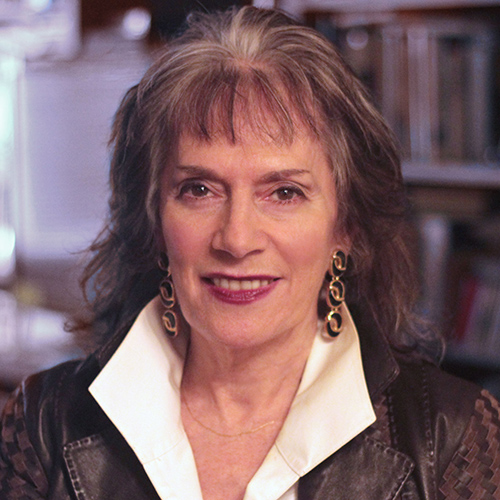 Annette Insdorf is Professor of Film at Columbia University’s School of the Arts, and Moderator of the popular “Reel Pieces” series at Manhattan’s 92Y, where she has interviewed almost 300 film celebrities. She is author of the landmark study, Indelible Shadows: Film and the Holocaust (with a foreword by Elie Wiesel); Double Lives,Second Chances: The Cinema of Krzysztof Kieslowski; Francis Truffaut, a study of the French director’s work; Philip Kaufman, and Intimations: The Cinema of Wojciech Has. Her latest book is Cinematic Overtures: How to Read Opening Scenes, currently in its fourth printing.
Annette Insdorf is Professor of Film at Columbia University’s School of the Arts, and Moderator of the popular “Reel Pieces” series at Manhattan’s 92Y, where she has interviewed almost 300 film celebrities. She is author of the landmark study, Indelible Shadows: Film and the Holocaust (with a foreword by Elie Wiesel); Double Lives,Second Chances: The Cinema of Krzysztof Kieslowski; Francis Truffaut, a study of the French director’s work; Philip Kaufman, and Intimations: The Cinema of Wojciech Has. Her latest book is Cinematic Overtures: How to Read Opening Scenes, currently in its fourth printing.
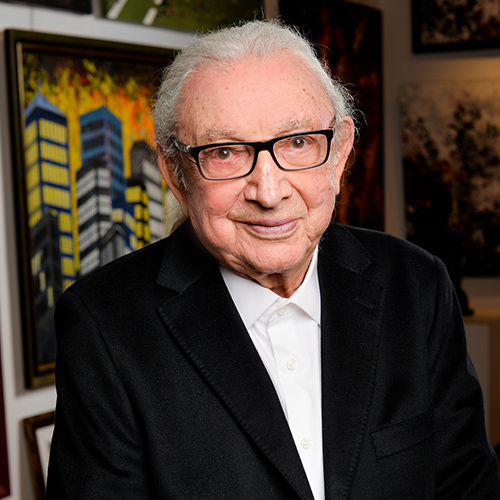 Originally born OZIAC FROMM, Maxwell Smart was born in 1930 in the predominantly Jewish town of Buczacz, Poland (now Ukraine). He survived the Holocaust and eventually immigrated to Montreal, Canada in 1948. Besides his parents, Smart lost his only sibling, a younger sister, and 62 members of his extended family. In Montreal, he became a successful expressionist artist and businessman. He published his memoir Chaos to Canvas about surviving the holocaust with the Azrieli Foundation. After participating in the documentary CHEATING HITLER, he was approached by Harper Collins to write an expanded version of his experiences which was released as THE BOY IN THE WOODS in 2022. Maxwell optioned his memoir to Lumanity Productions and served as an executive producer on the feature film adaptation.
Originally born OZIAC FROMM, Maxwell Smart was born in 1930 in the predominantly Jewish town of Buczacz, Poland (now Ukraine). He survived the Holocaust and eventually immigrated to Montreal, Canada in 1948. Besides his parents, Smart lost his only sibling, a younger sister, and 62 members of his extended family. In Montreal, he became a successful expressionist artist and businessman. He published his memoir Chaos to Canvas about surviving the holocaust with the Azrieli Foundation. After participating in the documentary CHEATING HITLER, he was approached by Harper Collins to write an expanded version of his experiences which was released as THE BOY IN THE WOODS in 2022. Maxwell optioned his memoir to Lumanity Productions and served as an executive producer on the feature film adaptation.
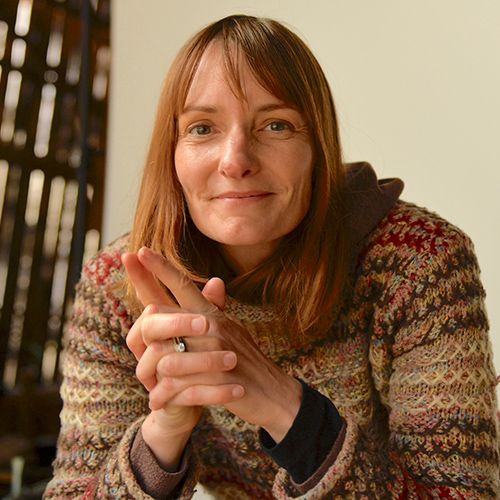 Born in London England, Rebecca Snow started her career at the BBC working on historical dramas and arts documentaries. Since then, she has worked in Los Angeles and Toronto with broadcast writing/directing credits that include NBC’s Emmy-nominated documentary series ‘Who Do You Think You Are?’, CBC’s ‘Nature of Thing’s, and History Channel’s ‘Hunting Nazi Treasure’, ‘Museum Secrets’ and ‘Real Vikings: Viking Women’ for which she won the Canadian Screen Award for directing. Her first feature-length documentary ‘Pandora’s Box: Lifting the Lid on Menstruation’ had its world premiere at Santa Barbara International Film Festival in 2020 and won the Alliance of Women Film Journalists Special Jury Award at Whistler Film Festival. ‘The Boy In The Woods’ is her first narrative feature and is based on the memoir of a Holocaust survivor who appeared in her feature-length documentary ‘Cheating Hitler: Surviving the Holocaust’. The documentary made world news and was nominated for 6 Canadian Screen Awards.
Born in London England, Rebecca Snow started her career at the BBC working on historical dramas and arts documentaries. Since then, she has worked in Los Angeles and Toronto with broadcast writing/directing credits that include NBC’s Emmy-nominated documentary series ‘Who Do You Think You Are?’, CBC’s ‘Nature of Thing’s, and History Channel’s ‘Hunting Nazi Treasure’, ‘Museum Secrets’ and ‘Real Vikings: Viking Women’ for which she won the Canadian Screen Award for directing. Her first feature-length documentary ‘Pandora’s Box: Lifting the Lid on Menstruation’ had its world premiere at Santa Barbara International Film Festival in 2020 and won the Alliance of Women Film Journalists Special Jury Award at Whistler Film Festival. ‘The Boy In The Woods’ is her first narrative feature and is based on the memoir of a Holocaust survivor who appeared in her feature-length documentary ‘Cheating Hitler: Surviving the Holocaust’. The documentary made world news and was nominated for 6 Canadian Screen Awards.
Ticket Info: $10 general; $8 seniors/students, $6 CJH members/Claims Conference employees register here
Presented by:

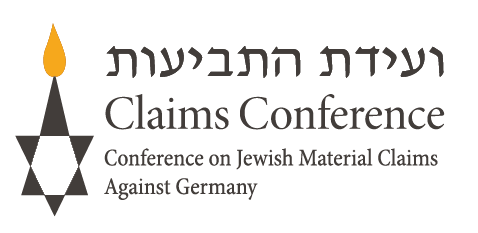
film and discussion
conversation
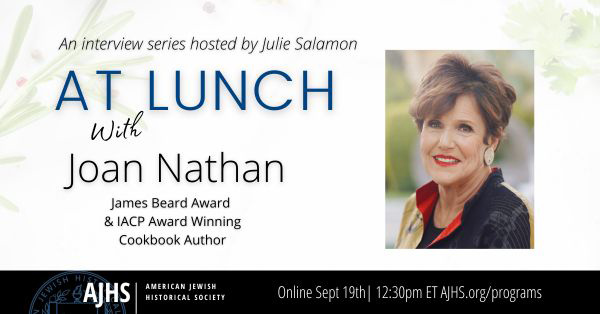
At Lunch with Joan Nathan – Live on Zoom
Julie Salamon (New York Times best-selling author) sits down with award-winning cookbook author Joan Nathan. Joan is the author of twelve cookbooks including her latest work, My Life in Recipes: Food, Family, and Memories. Her books Jewish Cooking in America and The New American Cooking both won James Beard Awards and IACP Awards. She is a regular contributor to The New York Times and other publications. Nathan’s PBS television series, Jewish Cooking in America with Joan Nathan, was nominated in 2000 for the James Beard Award for Best National Television Food Show. She was also senior producer of Passover: Traditions of Freedom, an award-winning documentary sponsored by Maryland Public Television. Nathan has appeared as a guest on numerous radio and television programs including the Today show, Good Morning, America, The Martha Stewart Show and National Public Radio.
Ticket Info: Free; register online for a Zoom link
Presented by:

conversation
lecture
Creative Tax Planning: Leave a Legacy – Live on Zoom
Please join us for a conversation with guest speaker Morris Sabbagh, Partner at Vishnick McGovern Milizio LLP, to explore creative ways to maximize your charitable giving while optimizing your tax benefits. In this interactive webinar, we will discuss upcoming changes to the estate and gift tax exemptions, as well as strategies and best practices for incorporating philanthropy into your financial and estate planning, ensuring that your legacy reflects your values and makes a lasting impact on the institutions you care about. Morris has valuable insights to share, and we are all sure to learn a lot.
Please use the link below to register for the webinar and send your questions.
About the Speaker
Morris Sabbagh is a partner in Vishnick McGovern Milizio ’s Tax Law, Wills, Trusts, and Estates , Trust and Estate Planning , and Elder Law practices.
He focuses on assisting families with the preservation of wealth and administration of estates and trusts and works with high-net-worth individuals to prevent the dissipation of assets to taxes, creditors, and long-term care expenses.
Mr. Sabbagh’s extensive experience includes planning for gift, estate, and generation-skipping transfer taxes, business succession, marital issues, creditor and asset protection, and public benefits and elder law issues.
He assists clients with the implementation of complex estate planning strategies and with the creation and administration of charitable foundations and charitable planned giving vehicles. In addition, he assists executors and trustees in the probate process and the administration of estates, as well as gift, estate, and income tax audits before the Internal Revenue Service and the New York State Department of Taxation.
Mr. Sabbagh is a founding member of the National Academy of Elder Law Attorneys (NAELA), New York Chapter.
Ticket Info: Free; click here to register
Presented by:

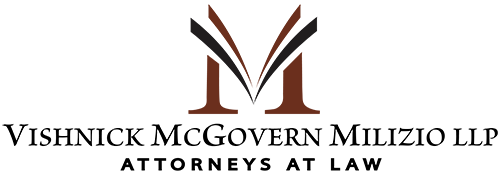
lecture
panel discussion
Yiddish on the Move: Yiddish Writing and Publishing after the Holocaust - In-person Event and Live on Zoom
The destruction of Eastern European Yiddish-speaking Jewry and its established cultural centers during the Holocaust necessitated a complex reevaluation of the relationship between the perceived former periphery of Yiddish literary capitals, which included Lodz, Warsaw, and Vilnius, and the new, emerging Yiddish centers of Buenos Aires and Montreal. A particularly intriguing case is the literary production on the Soviet territory behind the Iron Curtain. These structural dynamics intricately link the multifaceted roles of writers, editors, translators, and, ultimately, publishers.
Join YIVO for a panel discussion featuring Rachelle Grossman, Matt Johnson, Harriet Murav, and Christin Zühlke, moderated by Erin McGlothlin, as they delve into the elaborate dynamics of Yiddish writing and publishing across transnational literary networks after the Holocaust. They will also discuss the intertwined topics of audience, translations, self-translations, and the profound impact of Holocaust memory and testimony.
This discussion grows out of a working group that is developing The Cambridge History of Holocaust Literature.
This program is supported, in part, by public funds from the New York City Department of Cultural Affairs, in partnership with the City Council.
About the Speakers
Rachelle Grossman is Assistant Professor in the Department of Comparative & World Literature at the University of Illinois, Urbana-Champaign. She is a scholar of Yiddish Studies specializing in print and material culture. In her research, she develops a geopolitical approach to literature, focusing especially on the transformation of literary centers and peripheries in the postwar period. She received her Ph.D. in Comparative Literature from Harvard University.
Matt Johnson is Associate Senior Lecturer in Yiddish at Lund University in Sweden. In 2022, he received his Ph.D. from the University of Chicago and subsequently taught at the Ohio State University. His research is broadly comparative, with a focus on Yiddish, German, and English-language literature and cultural history from the 18th century to the present. At Lund, his teaching focuses on the history of Yiddish literature and culture, as well as on topics with a comparative or theoretical focus.
Harriet Murav is Professor of Slavic Languages and Literatures and Comparative and World Literatures at the University of Illinois Urbana-Champaign. She currently serves as editor of Slavic Review. She is the author of Music from a Speeding Train: Jewish Literature in Post-Revolution Russia and David Bergelson's Strange New World: Untimeliness and Futurity. With Gennady Estraikh, she co-edited Soviet Jews in World War II: Fighting, Witnessing, Remembering.
Christin Zühlke is a Postdoctoral Research Fellow in Holocaust Literature at Washington University in St. Louis. Her research focuses on Jewish experiences and responses to the Holocaust, with a specific emphasis on gender (masculinities) and religious aspects. She also examines Holocaust memory and representation. She co-edits the Cambridge History of Holocaust Literature, New Approaches to Teaching Holocaust Literature, the Elie Wiesel Research Series, and the 24-volume edition of Elie Wiesel Werke (Works of Elie Wiesel).
Erin McGlothlin is Professor of German and Jewish Studies at Washington University in St. Louis. Her research interests include fictional and non-fictional works of Holocaust literature and film, as well as such topics as the generational discourse on the Holocaust, the narrative structure of Holocaust literature and film, perpetrator representation and perpetrator trauma, and ethical questions related to Holocaust representation. She is the author of Second-Generation Holocaust Literature: Legacies of Survival and Perpetration (2006) and The Mind of the Holocaust Perpetrator in Fiction and Nonfiction (2021).
Ticket Info: Free; registration is required.
Presented by:

panel discussion
film screening
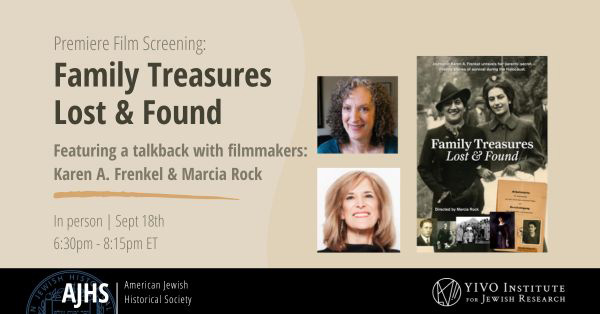
Family Treasures Lost & Found - In-person Event
Join the American Jewish Historical Society and the YIVO Institute for Jewish Research for a premiere film screening of Family Treasures Lost and Found, followed by a talkback with filmmakers Karen A. Frenkel and Marcia Rock.
In Family Treasures Lost and Found, journalist Karen A. Frenkel investigates her parents’ unspoken WWII stories. She knew little about their lives before and during the Holocaust, but her detective work leads to astonishing revelations of her family’s riveting journeys through Europe, Cuba, Mexico, and New York. Karen shares steps in family history research such as using digital and real-world archives to fills gaps in what she was told. A family archive of portraits, photos, documents, and artifacts also reveals the cultural life of pre-war urban assimilated Polish Jews. The process deepens Karen’s appreciation for her relatives’ resistance to fascism, luck, altruism, and the reasons for their silence. She honors her parents, sole surviving grandfather, and lost relatives, who cease to be mere names. Ultimately, Karen’s sleuthathon ensures that memories of a vanished culture will endure and shows why filling in the blanks of lives lost is important not only to her, but to the history of the Jewish people and society as a whole.
Family Treasures Lost and Found is a Women Make Movies Production Assistance Program Project. Established in 1972, Women Make Movies is a 501(c)3 nonprofit media arts organization registered with the New York Charities Bureau of New York State.
Karen A. Frenkel: (www.karenafrenkel.com) is an award-winning journalist, author, and documentary producer. Previous documentaries: Minerva’s Machine: Women and Computing (1995) won Best Documentary in a Small Market, 1997 EMMA (Exceptional Merit Media Award) given by National Women’s Political Caucus and Radcliffe College, Best Documentary, Brooklyn Arts Council, 30th Annual International Film and Video Festival, Best Television Series, Runner Up, Eleventh Annual Computer Press Award. Net.LEARNING (1998) won the 1998 National Education Reporting First Prize, Television Documentary and Feature. Both documentaries aired on public television. Ms. Frenkel co-authored with Isaac Asimov Robots: Machines in Man’s Image (Harmony 1985). Her articles have appeared in Bloomberg BusinessWeek, CACM, Discover, Essence, FastCompany.com, Forbes, Scientific American, Technology Review, and The New York Times among others. She blogs for The Times of Israel about her parents’ survival during World War II, fascism, and political parallels today.
Marcia Rock: Marcia’s documentaries cover international dilemmas, women’s issues as well as personal perspectives. Before Family Treasures, Rock co-produced and directed. UnReined, about an Israeli equestrian Champion, Nancy Zeitlin, who built the first Palestinian equestrian team. Rock also produced SERVICE: When Women Come Marching Home about women transitioning from active duty to civilian life, NY Emmy. She covered the changing role of women in Northern Ireland, Daughters of the Troubles: Belfast Stories, AWRT Grand Documentary Award. McSorley’s New York is about the history of the NY Irish and won a NY Emmy. She experimented with personal storytelling in Dancing with My Father. Rock started and is the director of News and Documentary at the NYU Carter Journalism Institute and co-authored with Marlene Sanders, Waiting for Primetime: The Women of Television News.
Ticket Info: General Admission: $10, Students: $5
Presented by:


film screening
curator's tour
Curator's Tour of Tapestries by Shoshana Comet: From Survival to Strength - In-person Event
Join Curator Ilana Burstein Benson for a guided tour of the exhibition. The five tapestries in this exhibition were created in the late 1960s by psychotherapist and Holocaust survivor, Shoshana Comet (1923 – 2011). Through the lens of these unique works and Shoshana’s story, we explore the themes of Holocaust history and trauma, psychological repair, and affirmation of life.
Ticket Info: Free admission but reservations are required. To attend, please email RSVP@yum.cjh.org and include the date of the tour you are registering for.
Presented by:

curator's tour
conference
After Orthodoxy: Cultural Creativity and the Break with Tradition - In-person Event and Live on Zoom
There is a widespread fascination with stories about leaving the Orthodox Jewish community. But what happens after this often-traumatic break? Join YIVO for the first conference and festival organized by and featuring formerly Orthodox Jewish scholars, activists, performers, and artists, as we explore the cultural achievements that emerged from this break with tradition.
Through performances, presentations, and panel discussions, we will discuss the challenges and opportunities of leading a meaningful life “after Orthodoxy.” What do formerly Orthodox Jews have to offer the communities they joined, the communities they left behind, and the larger world? What resources do artists and performers draw from their Orthodox upbringings? How have ex-Hasidic activists changed the communities in which they were raised? And how do these challenges and opportunities resonate among those who left other insular religious groups?
Panel discussions will include ex-Orthodox activism with Naftali Moster, Elad Nehorai, Beatrice Weber, and Lani Santo; religion after Orthodoxy with Yehuda Jacobowitz, Amichai Lau-Lavie, Shaul Magid, and Jericho Vincent; scholarship and the break with tradition with Yair Hess, Roni Masel, Zalman Newfield, Naomi Seidman, Jessica Lang, and Dikla Yogev; and leaving other insular religious communities with Hannah Abbasi, Jeremy Jenkins, Amy Jemmett, and Jessica Pratezina.
The conference will also include a music, film, and performance festival, featuring Luzer Twersky as MC; Castles in the Air, a new film by Pearl Gluck; the visual art of Sara Erenthal and Malky Goldman; and performances by Basya Schechter, Riki Rose, Rayne Lunger, Yermiyahu Ahron Taub, Melissa Weisz, and Michael Wex.
This program is supported, in part, by public funds from the New York City Department of Cultural Affairs, in partnership with the City Council and the Social Science and Humanities Research Council of Canada.
Ticket Info: Free; registration is required.
Presented by:

conference
conference
After Orthodoxy: Cultural Creativity and the Break with Tradition - In-person Event and Live on Zoom
There is a widespread fascination with stories about leaving the Orthodox Jewish community. But what happens after this often-traumatic break? Join YIVO for the first conference and festival organized by and featuring formerly Orthodox Jewish scholars, activists, performers, and artists, as we explore the cultural achievements that emerged from this break with tradition.
Through performances, presentations, and panel discussions, we will discuss the challenges and opportunities of leading a meaningful life “after Orthodoxy.” What do formerly Orthodox Jews have to offer the communities they joined, the communities they left behind, and the larger world? What resources do artists and performers draw from their Orthodox upbringings? How have ex-Hasidic activists changed the communities in which they were raised? And how do these challenges and opportunities resonate among those who left other insular religious groups?
Panel discussions will include ex-Orthodox activism with Naftali Moster, Elad Nehorai, Beatrice Weber, and Lani Santo; religion after Orthodoxy with Yehuda Jacobowitz, Amichai Lau-Lavie, Shaul Magid, and Jericho Vincent; scholarship and the break with tradition with Yair Hess, Roni Masel, Zalman Newfield, Naomi Seidman, Jessica Lang, and Dikla Yogev; and leaving other insular religious communities with Hannah Abbasi, Jeremy Jenkins, Amy Jemmett, and Jessica Pratezina.
The conference will also include a music, film, and performance festival, featuring Luzer Twersky as MC; Castles in the Air, a new film by Pearl Gluck; the visual art of Sara Erenthal and Malky Goldman; and performances by Basya Schechter, Riki Rose, Rayne Lunger, Yermiyahu Ahron Taub, Melissa Weisz, and Michael Wex.
This program is supported, in part, by public funds from the New York City Department of Cultural Affairs, in partnership with the City Council and the Social Science and Humanities Research Council of Canada.
Ticket Info: Free; registration is required.
Presented by:

conference
book talk
My Life as a Jew - Live on Zoom
Born in a displaced persons’ camp two years after the end of the Holocaust, Michael Gawenda spent his childhood and teenage years at the Sholem Aleichem College in Melbourne. This shaped the sort of Jew he became — a secular Jew who loved Yiddish language and culture.
Gawenda went on to become a public figure during his 40 years as a journalist, including his role as editor-in-chief of the prestigious Australian publication The Age — the only Jewish editor-in-chief in the newspaper’s history. Throughout this time, hostility towards Israel that he witnessed in his professional life sparked him to examine his own Jewish identity and his relationships with his Jewish friends, and to forensically examine the basis of the critiques of Israel.
Join YIVO for a discussion with Gawenda about his new autobiography, My Life as a Jew, led by editor at large of the New York Jewish Week Andrew Silow-Carroll.
This program is supported, in part, by public funds from the New York City Department of Cultural Affairs, in partnership with the City Council.
About the Speakers
Michael Gawenda is one of Australia’s best-known journalists and authors. In a career spanning four decades, he was a political reporter, a foreign correspondent based in London and in Washington, a columnist, a feature writer, and a senior editor at Time Magazine. He was editor and editor-in-chief of The Age from 1997 to 2004. Michael Gawenda has won numerous journalism awards, including three Walkley awards. He was the inaugural director of the Centre for Advancing Journalism at the University of Melbourne, and is the author of four books.
Andrew Silow-Carroll is New York Jewish Week's Editor at Large and Managing Editor for Ideas of the Jewish Telegraphic Agency. Previously he served as editor in chief of the Jewish Telegraphic Agency, editor-in-chief and CEO of the New Jersey Jewish News and wrote an award-winning weekly column in the Times of Israel. He was also the managing editor of the Forward newspaper, editor of the Washington Jewish Week, senior editor of Moment magazine, and a reporter for the Jewish Telegraphic Agency.
Ticket Info: Free; registration is required.
Presented by:

book talk
lecture
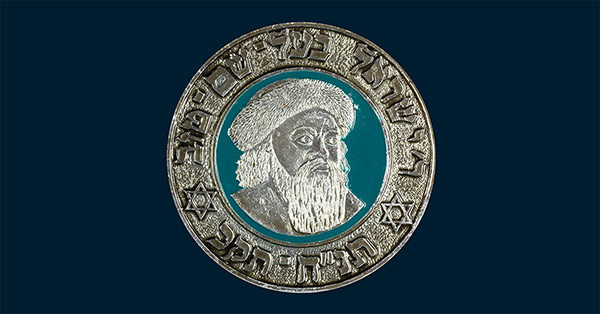
Forms Serving Functions: Coins and Medals as Judaica – In-Person Event
Numismatic imagery has mirrored and illuminated many facets of Jewish culture for centuries. The current Center for Jewish History exhibition, Jewry Reflected, Refracted, and Recorded on Medals, and this presentation based on it, highlight the wide variety of forms and functions that Jewish coins, tokens, and medals have assumed over the centuries. Having served as active agents, as actual participants, in the religious and social lives of Jewish people both in the Holy Land and in the Diaspora, they incorporate and constitute material evidence of past Jewish experience.
About the Speaker
Ira Rezak is a retired physician and educator who has studied and collected Judaica for many years. An Emeritus Professor at Stony Brook University, he serves as president of the Harry G. Friedman Society.
Ticket Info: Pay what you wish; register here
Presented by:


lecture
curator’s tour & panel discussion
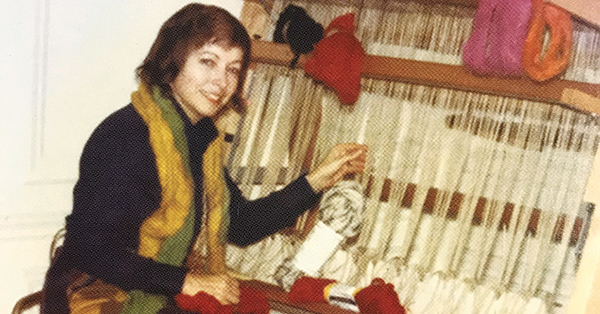
The Courage to Create: Addressing the Holocaust through Art - In-person Event
A curator-led tour of the exhibition Tapestries by Shoshana Comet: From Survival to Strength will be followed by a panel of scholars in conversation with Dr. Shay Pilnik, Director of The Emil A. and Jenny Fish Center for Holocaust and Genocide Studies of Yeshiva University.
The discussion will reference the tapestries to explore artistic representation of the Holocaust, the use of art to record and preserve history, and art as a means of recovery from trauma.
Panelists include:
- Mariya Keselman-Mekler, Creative Arts Therapist and Program Manager of Wellness Program for Holocaust Survivors at KleinLife in Philadelphia
- Archie Rand, Artist and Presidential Professor of Art at CUNY - Brooklyn College
- Dr. Ori Z. Soltes, Teaching Professor at the Center for Jewish Civilization at Georgetown University.
Light refreshments will be served.
Co-sponsored by Yeshiva University Museum and The Emil A. and Jenny Fish Center for Holocaust and Genocide Studies.
The exhibition Tapestries by Shoshana Comet has been made possible with assistance from the Conference on Jewish Material Claims Against Germany. Supported by the Foundation Remembrance, Responsibility and Future and by the German Federal Ministry of Finance.
Ticket Info: This is a free event, but advance registration is requested at rsvp@yum.cjh.org.
Presented by:

curator’s tour & panel discussion
curator's tour
Curator's Tour of Tapestries by Shoshana Comet: From Survival to Strength - In-person Event
Join Curator Ilana Burstein Benson for a guided tour of the exhibition. The five tapestries in this exhibition were created in the late 1960s by psychotherapist and Holocaust survivor, Shoshana Comet (1923 – 2011). Through the lens of these unique works and Shoshana’s story, we explore the themes of Holocaust history and trauma, psychological repair, and affirmation of life.
Ticket Info: Free admission but reservations are required. To attend, please email RSVP@yum.cjh.org and include the date of the tour you are registering for.
Presented by:

curator's tour
book talk
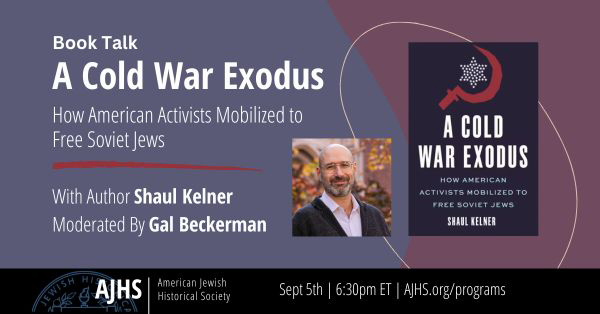
A Cold War Exodus: How American Activists Mobilized to Free Soviet Jews - In-person Event
Shaul Kelner, Associate Professor of Jewish Studies and Sociology at Vanderbilt University, joins us to discuss his book A Cold War Exodus: How American Activists Mobilized to Free Soviet Jews with moderator Gal Beckerman.
What do these things have in common? Ingrid Bergman, Passover matzoh, Banana Republic®, the fitness craze, the Philadelphia Flyers, B-grade spy movies, and ten thousand Bar and Bat Mitzvah sermons? Nothing, except that social movement activists enlisted them all into the most effective human rights campaign of the Cold War.
The plight of Jews in the USSR was marked by systemic antisemitism, a problem largely ignored by Western policymakers trying to improve relations with the Soviets. In the face of governmental apathy, activists in the United States hatched a bold plan: unite Jewish Americans to demand that Washington exert pressure on Moscow for change.
A Cold War Exodus delves into the gripping narrative of how these men and women, through ingenuity and determination, devised mass mobilization tactics during a three-decade-long campaign to liberate Soviet Jews—an endeavor that would ultimately lead to one of the most significant mass emigrations in Jewish history.
Drawing from a wealth of archival sources including the travelogues of thousands of American tourists who smuggled aid to Russian Jews, Shaul Kelner offers a compelling tale of activism and its profound impact, revealing how a seemingly disparate array of elements could be woven together to forge a movement and achieve the seemingly impossible. It is a testament to the power of unity, creativity, and the unwavering dedication of those who believe in the cause of human rights.
Ticket Info: $10 General Admission, $40 Admission + Copy of the book
Presented by:

book talk
lecture
Singing with Ghosts: Hauntology and Musical-Culinary Remembrance in Iraqi Jewish Biographical Songs - Live on Zoom
Seventy years after the majority of Jews left Iraq—a mass emigration that marked the largest airlift population transfer to date, and the end of a 2,600 year-old Jewish presence in the area—the history of this community’s dislocation remains hotly debated. In the wake of emerging rival Arab and Jewish ethno-nationalisms, Iraqi Jews found themselves caught in the crossfire between warring ideologies. The community was subjected to a violent resocialization process into Israeli society, where they were forced to publicly abandon their original names, language, and practices of biographical Arabic song-making. This resulted in a deep sense of internalized trauma, or what Ella Shohat refers to as a kind of “visceral schizophrenia.” Nonetheless, in intimate settings, a number of singers continue to maintain secretive practices of biographical Arabic song-making. These occur in conjunction with culinary enactment and remembrance, where singers draw from multi-sensorial resources associated with their former lives in Iraq—thus rendering their exiled pasts relevant through contemporary sensorial evocation.
This presentation by Liliana Carrizo explores these musical-culinary remembrances in relation to theories of ghosting and hauntology as articulated by Iraqi Jewish authors, scholars, and musicians, and brings them into a conversation with the burgeoning field of gastromusicology. Carrizo argues that through the transnational flow of music and the senses—including sound, tactile impressions, aromas, and flavors—individuals creatively embrace and reclaim alternative histories of dislocation, including those scattered by the ashes of war.
This program is supported, in part, by public funds from the New York City Department of Cultural Affairs, in partnership with the City Council.
About the Speaker
Liliana Carrizo is an ethnomusicologist whose work focuses broadly on music and migration across numerous transregional contexts. She is an assistant professor at Colorado College. Her current book project examines biographical songs of migration and cultural exile among Iraqi Jews. Based on two and half years of ethnographic and archival research, her work considers how interreligious soundscapes associated with Arab, Jewish, and Muslim modal practices converge with biographical, edible, and sonic memories among Iraqi immigrants, wherein singers access powerful, multi-sensorial memories that are crucial to their self-conceptions in the present day. Inspired by her background as a child of Iraqi immigrants raised in New Mexico, Carrizo’s next research project will focus on the music of Arab and Jewish immigrants within the wider regional fabric of the American Southwest.
Ticket Info: Free; registration is required.
Presented by:

lecture
film and panel discussion
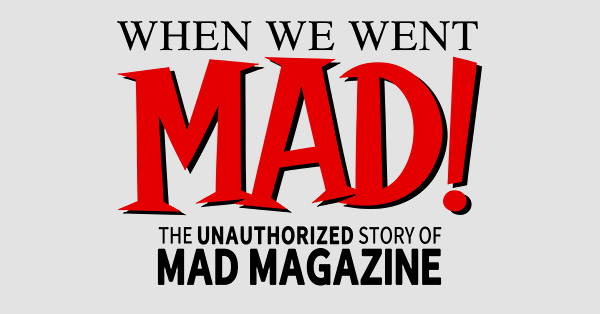
When We Went MAD!: The Unauthorized Story of MAD Magazine – In-Person Event
Please note: This event is sold out.
For generations, MAD Magazine shaped and warped its readers’ senses of humor and their very outlook on the world around them. From the McCarthy hearings and the Cold War to Taylor Swift and social media, MAD Magazine was there to poke fun at all of it. When We Went Mad! presents the (unauthorized) history of America’s oldest and most influential humor magazine. From MAD’s landmark court case that ensured satire as free speech to its maverick publisher who kept the water cooler filled with white wine, MAD lived its very ethos. With celebrity interviews from Judd Apatow, Quentin Tarantino, Howie Mandel, Gilbert Gottfried, David Zucker, Bryan Cranston, “Weird Al” Yankovic, and a plethora of the people who created MAD, When We Went Mad! is a celebration of MAD, the nutty geniuses behind it, and the indelible impression they left on American culture.
Join us for a screening of this new documentary followed by a panel discussion with director Alan Bernstein, former MAD executive editor John Ficarra, former MAD senior editors Joe Raiola and Charlie Kadau, MAD’s maddest writer, Dick DeBartolo, and former MAD Design Director Ryan Flanders. Moderated by Karen Green, Curator for Comics and Cartoons at Columbia University.
Ticket Info: This event is sold out.
Presented by:

film and panel discussion
lecture
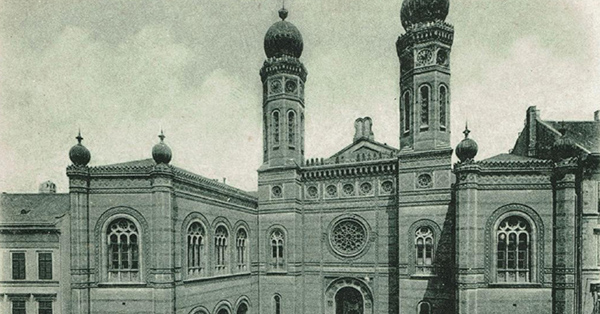
Family History Today: Researching your Jewish Ancestors in Greater Hungary – Live on Zoom
Jordan Auslander, forensic genealogist and author of the Genealogical Gazetteer for the Kingdom of Hungary, will provide an overview of resources available online and in European archives for tracing your family history in Hungary and former Hungarian territories over the course of the 19th and 20th centuries. He will also discuss Jewish demographics, record keeping, the Holocaust, and the diasporas before and after World War II, concluding with an examination of the contemporary resurgence of Jews in Hungary in the face of Viktor Orbán’s regime.
Ticket Info: Pay what you wish; register here
Presented by:

lecture
book club
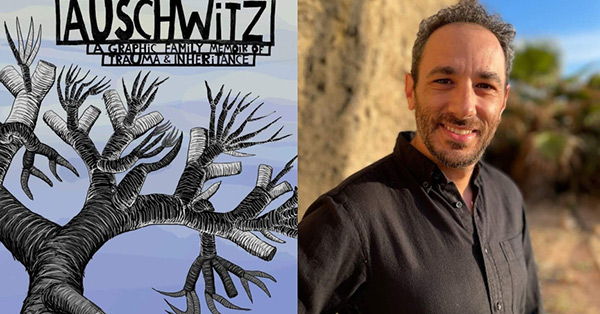
LBI Book Club: Never Again Will I Visit Auschwitz - Live on Zoom
Ari Richter is a New York-based visual artist and comics creator, born in Tampa, FL in 1983. He received a fully public education from grade school to grad school, and is currently a Professor of Fine Arts at LaGuardia Community College in The City University of New York. Hi debut book, Never Again Will I Visit Auschwitz: A Graphic Family Memoir of Trauma & Inheritance is out now from Fantagraphics Books.
Richter has received fellowships from the Mellon Foundation/American Council of Learned Societies, and the Memorial Foundation for Jewish Culture, multiple project grants from the CUNY Research Foundation, and residencies from the Vermont Studio Center, the Woodward Residency and the University of Texas at Dallas. His drawings, sculptures, videos and performances have been presented at The Skirball Cultural Center, The National Museum of American Jewish History, The Tampa Museum of Art, The Spartanburg Art Museum, The Weatherspoon Art Museum, The Bruce High Quality Foundation University, Flux Factory, CentralTrak, Athens Institute for Contemporary Art, Nexus Foundation for Today's Art, and Celebrate Brooklyn! festival. His graphic work has been featured in Hyperallergic and Tablet Magazine.
Ticket Info: Free; registration required
Presented by:

book club
lecture
Ethnographers between Yiddish and Polish: a Study in Intellectual History (in Yiddish) - Live on Zoom
Karolina Szymaniak | Delivered in Yiddish.
Chaim Chajes, secretary of YIVO's Ethnographic Commission and a figure central to establishing its early research program, is barely mentioned in publications devoted to Jewish ethnography. Daniel Fajnsztejn, the first Doctor of Ethnology at Stefan Batory University in Vilna, appears in the pages of Jewish history only as a member of the "Paper Brigade" in the Vilna Ghetto. Their near complete invisibility in Polish and Jewish intellectual history is, in part, a result of their simultaneous membership in two different cultural spheres and intellectual worlds – as figures of the Polish-Jewish "cultural borderland." This lecture will present fuller profiles of both researchers and their role in shaping modern ethnography and what could have become a new field of study, the development of which was interrupted by the outbreak of World War II and the Holocaust.
This work is based on research conducted together with Prof. Anna Engelking.
About the Speaker
Karolina Szymaniak is Assistant Professor in the Jewish Studies Department of the University of Wroclaw and Research Fellow at the Jewish Historical Institute (Warsaw). Her research interests range across modern Yiddish literature, Polish-Jewish cultural relations, and translation studies. In addition to having taught Yiddish language and culture throughout Poland and Europe, she has also served as a consultant for the POLIN Museum and as a curator for the Museum of Modern Art in Lodz. Her recent publications include Montages: Debora Vogel and the New Legend of the City and My wild goat: Anthology of Women Yiddish Poets (in Polish). She is also the editor of Rachel Auerbach's Ghetto Writings (in Polish), which received the 2016 Polityka History Award, as well as the memoirs of Malke Lee and Hinde Bergner.
Ticket Info: Free; registration is required.
Presented by:

lecture
theatrical performance
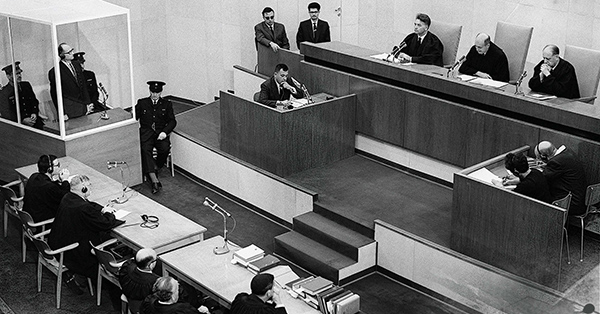
The Trial of Adolf Eichmann - In-person Event
Adapted on stage by David Serero
Inspired by actual events, this powerful drama takes audiences on a haunting journey through one of the most infamous trials in history, examining the depths of human evil and the quest for justice.
Don’t miss this compelling and thought-provoking theatrical experience as the world premiere of “The Trial of Adolf Eichmann” opens in July 2024 at the Center for Jewish History, inviting audiences to reflect on the lessons of history and the enduring struggle for justice and reconciliation.
July 21 at 7:00PM EST
July 22 at 8:00PM EST (Premiere)
July 23 at 3:00PM EST
July 25 at 8:00PM EST
Ticket Info: $26-$36
For questions and more details please call 855.688.7277 (ext.1)
Presented by:
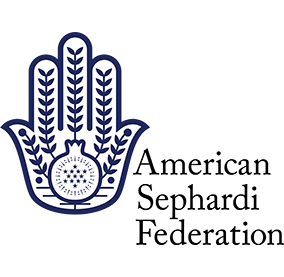
theatrical performance
lecture
Musical Pripetshik: Lyrics and Melodies of Traditional Yiddish Folksongs - Live on Zoom
Michael Lukin | Delivered in English.
Most of the Yiddish songs we know today were created in the first half of the 20th century and distributed through commercial channels such as sheet music, concerts, radio broadcasts, records and CDs, theater stages, and more recently through songbooks produced in educational settings around the world. Our discussion focuses on lesser-known songs – Eastern Yiddish musical folklore, which emerged over a period of approximately four hundred years preceding the formation of the “popular” repertoire. Although we lack transcriptions of melodies or lyrics from before the end of the 19th century, a comparative study of documentation collected from then until the middle of the 20th century reveals that older layers of this musical-poetic creativity had been preserved over long periods of time. I refer to this older repertoire as the "musical pripetshik." Similar to the traditional combined home-heat-generating cooking oven known as the pripetshik, this old song repertoire was an integral part of Jewish culture, evolving in meaning and function over time. While for many, the image of the pripetshik corresponds to the nostalgic song by Mark Varshavski of 1901, this lecture will explore the earlier history of this and other poetic and musical images to offer an appreciation of their significance.
About the Speaker
Dr. Michael Lukin of the Jewish Music Research Centre (Hebrew University of Jerusalem) researches the traditional culture of Yiddish speakers from various perspectives: the ethnomusicological, the folkloristic, and the historical. His recent publications in Polin, Shofar, Oxford Handbook of Slavic and East European Folklore, and Music Traditions illuminate the music and poetics of Yiddish folksongs and the history of their scholarship. Over the past four years, as a Polonsky Fellow in Oxford and a Mandel-Scholion Postdoctoral Fellow at the Hebrew University of Jerusalem, he has engaged in extensive exploration of additional aspects of Jewish Eastern European music and folklore, including semiotics of various genres, their historical development, as well as their encounters with non-Jewish traditions. Lukin teaches courses on music and folklore in the Yiddish-speaking cultural realm, Hasidic musical thought, and music by Jews – at the Hebrew University and Bar-Ilan University. This year he has been a fellow at the Katz Center for Advanced Judaic Studies at the University of Pennsylvania, working on his new project about Hasidic nigunim.
Ticket Info: Free; registration is required.
Presented by:

lecture
theatrical performance

The Trial of Adolf Eichmann - In-person Event
Adapted on stage by David Serero
Inspired by actual events, this powerful drama takes audiences on a haunting journey through one of the most infamous trials in history, examining the depths of human evil and the quest for justice.
Don’t miss this compelling and thought-provoking theatrical experience as the world premiere of “The Trial of Adolf Eichmann” opens in July 2024 at the Center for Jewish History, inviting audiences to reflect on the lessons of history and the enduring struggle for justice and reconciliation.
July 21 at 7:00PM EST
July 22 at 8:00PM EST (Premiere)
July 23 at 3:00PM EST
July 25 at 8:00PM EST
Ticket Info: $26-$36
For questions and more details please call 855.688.7277 (ext.1)
Presented by:

theatrical performance
lecture
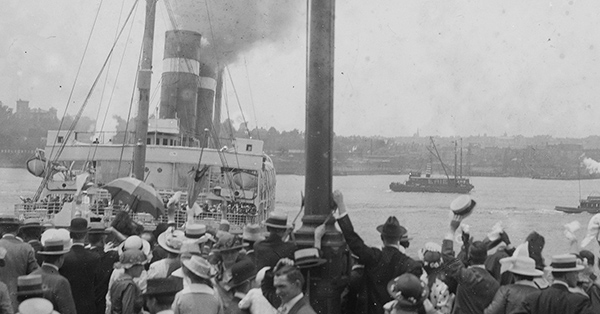
Family History Today: It's Hard to Say Goodbye - Challenges Faced by Eastern European Jewish Emigrants – Live on Zoom
Emily Garber, professional genealogist/Jewish genealogy blogger, will focus on a rarely if ever discussed but nonetheless crucial part of the Jewish emigration experience, the journey of Eastern European Jews from their homes to the ships between 1880-1914. Ms. Garber will answer questions including: What were the emigration requirements? Where, how, and from whom did they purchase passage? How did the emigrants know how to get from their shtetls to the ports? Did they receive any help along the way?
Ticket Info: Pay what you wish; register here
Presented by:

lecture
theatrical performance

The Trial of Adolf Eichmann - In-person Event
Adapted on stage by David Serero
Inspired by actual events, this powerful drama takes audiences on a haunting journey through one of the most infamous trials in history, examining the depths of human evil and the quest for justice.
Don’t miss this compelling and thought-provoking theatrical experience as the world premiere of “The Trial of Adolf Eichmann” opens in July 2024 at the Center for Jewish History, inviting audiences to reflect on the lessons of history and the enduring struggle for justice and reconciliation.
July 21 at 7:00PM EST
July 22 at 8:00PM EST (Premiere)
July 23 at 3:00PM EST
July 25 at 8:00PM EST
Ticket Info: $26-$36
For questions and more details please call 855.688.7277 (ext.1)
Presented by:

theatrical performance
theatrical performance

The Trial of Adolf Eichmann - In-person Event
Adapted on stage by David Serero
Inspired by actual events, this powerful drama takes audiences on a haunting journey through one of the most infamous trials in history, examining the depths of human evil and the quest for justice.
Don’t miss this compelling and thought-provoking theatrical experience as the world premiere of “The Trial of Adolf Eichmann” opens in July 2024 at the Center for Jewish History, inviting audiences to reflect on the lessons of history and the enduring struggle for justice and reconciliation.
July 21 at 7:00PM EST
July 22 at 8:00PM EST (Premiere)
July 23 at 3:00PM EST
July 25 at 8:00PM EST
Ticket Info: $26-$36
For questions and more details please call 855.688.7277 (ext.1)
Presented by:

theatrical performance
lecture
Libes briv (18th C.): Isaac Wetzlar’s Call for Reform of Jewish Society and Education (in Yiddish) - Live on Zoom
Marion Aptroot | Delivered in Yiddish.
Isaac Wetzlar, a Jewish merchant in Germany, writes a Yiddish letter of brotherly love to his brothers and sisters in the mid-18th century. He criticizes the fabric of Jewish society in the German lands and lays out plans for a reform of Jewish education in Ashkenaz in which both Hebrew and Yiddish play a part – for both sexes. Wetzlar calls for a return to basics within Jewish tradition, but he is also inspired by the contemporary Pietist Christian revival movement.
Further reading:
- The Libes Briv of Isaac Wetzlar. Edited and translated by Morris M. Faierstein. Atlanta, Ga.: Scholars Press, 1996.
- Aptroot, Marion, and Rebekka Voß, eds. Libes Briv (1748/49) Isaak Wetzlars pietistisches Erneuerungsprogramm des Judentums: Textedition, Übersetzung, Kommentar und historische Beiträge. Hamburg: Buske, 2021.
About the Speaker
Marion Aptroot received an MA in Romance Languages from Leiden University and a DPhil in Yiddish Studies from the University of Oxford. After teaching as Preceptor in Yiddish at Harvard from 1993–1996, she was appointed professor of Yiddish Culture, Language and Literature at Heinrich Heine University Düsseldorf. Her research focuses on older Yiddish literature and the history of the Yiddish language in their broader contexts. She has written, co-edited or co-authored several books, including Araynfir in der yidisher shprakh un kultur (2002, 2016), Storm in the Community: Yiddish Polemical Pamphlets of Amsterdam Jewry, 1797–1798 (2002), Isaak Euchel, Reb Henoch, oder: woß tut me damit? Eine jüdische Komödie der Aufklärungszeit (2004), Jiddisch: Geschichte und Kultur einer Weltsprache (2010, 2023), Leket: Yiddish Studies Today (2012), Yiddish Language Structures (2014), Yiddish Knights (2020).
Ticket Info: Free; registration is required.
Presented by:

lecture
lecture
Testimonies in Response and What They Tell Us about the Development of Spoken Yiddish (in Yiddish) - Live on Zoom
Moshe Taube | Delivered in Yiddish.
Since the 15th century, many testimonies in "Loshn Ashkenaz" (which may refer both to Yiddish and to German) have been preserved in responsa(rabbinic pronouncements on matters of Jewish law written in response to questions asked of halakhic authorities). The testimonies appear in the rabbinical court records, otherwise written in Hebrew, and are quoted inside the halakhic question. Although the testimonies themselves begin and end with Hebrew abbreviations that frame the quotations (functioning like the English terms quote, unquote), they contain many words of Loshn-koydesh (Hebrew/Aramaic) origin such as kale, milkhome, khasene, efsher from everyday Yiddish usage ("Merged Hebrew"), but much material from "Whole Hebrew" as well.
On the phonetic level, not much is to be learned about the pronunciation of the words in the testimonies since their spelling is not consistent and, furthermore, because Hebrew script is underspecified in many regards, often not reflecting the distinction between many sounds, especially vowels and diphthongs. The domains where we may learn the most from these testimonies about the development of spoken and written Yiddish are syntax, morphology, and the lexicon. Many phenomena thought to belong to Early Modern Yiddish (18th century onward) are attested in 17th century testimonies and thus appear to be at least one century older.
About the Speaker
Moshe Taube is Professor Emeritus of Linguistics and Slavic Studies at The Hebrew University of Jerusalem. His research focuses on two main domains: syntax of modern Yiddish and philology of medieval translations from Hebrew. He taught in the two departments numerous courses on both topics, as well as courses on general linguistics. He served as head of the Department of Linguistics and as Head of the Institute of General Humanities. He is the author of The Logika of the Judaizers: A Fifteenth-Century Ruthenian Translation from Hebrew (2016) and The Cultural Legacy of the Pre-Ashkenazic Jews in Eastern Europe (2023). He published numerous articles in both domains, which can be viewed at his Academia page: huji.academia.edu/MosheTaube.
Ticket Info: Free; registration is required.
Presented by:

lecture
lecture
Instilling Yiddishkayt into Zionism - Live on Zoom
Dina Porat | Delivered in English.
Determined neither to allow the Holocaust to erase East European Jewish culture nor to permit Zionism and the kibbutz to beget a lifestyle devoid of ceremony and Jewish content, the WWII partisan, poet and intellectual Abba Kovner tried to create a new kind of community at Kibbutz Ein HaHoresh. Beginning in the early 1950s, within a society that in theory was supposed to distance itself from Jewish tradition and create a new lifestyle, Kovner forged his own synthesis between old and new. According to his good friend "Yitz" (Rabbi Irving) Greenberg of New York, part of Kovner's greatness was his understanding that Judaism's internal significance was not limited to time or place, and that there was a need to bridge the gap between what had been and what should be. "After the Holocaust, he was ready to scrap the old ways and start anew. He created a combination of Jewish values and secular realism, of continuity and innovation." Kovner considered Judaism as "a consensus within a difference of opinion" and difference of opinion as "the cornerstone of Jewish culture," and he was prepared to continue building from within the disagreement. Kovner rejected the approach of the movement's leaders, who themselves had come from religious or traditional homes but had adopted the movement’s motto that "the old world had to be razed to its foundations," and who loathed the idea of returning to the customs of the Diaspora. From the day of Kovner's arrival in Eretz Israel, they were suspicious that he would try to put a skullcap on the movement's head. However, year after year, holiday and festival after ceremony and anniversary, instead of confronting them, Kovner would suggest yet another idea, attempting to change habits from within until the kibbutz was a complete creation, a Jewish-kibbutz-collective whose existence would draw its inspiration from the Jewish foundation, which would in turn be renewed through the existence of the kibbutz. Replacing kibbutz ideology with Judaism would mean admitting that the kibbutz movement had failed to create a society of value and significance, unthinkable for the movement's leaders in the 1950s; only a combination would be acceptable, if that. Kovner wanted to integrate the two to perpetuate not only the Jewish community that had been destroyed but also the lost youth movement, his European HaShomer HaTza’ir.
About the Speaker
Prof. Dina Porat is the founding head of the Kantor Center for the study of Contemporary European Jewry and served as head of the Department of Jewish History, of the Rosenberg School for Jewish Studies, and as incumbent of the Alfred P. Slaner Chair in Antisemitism and Racism – all at Tel Aviv University. She served as the Chief Historian at Yad Vashem (2010-2021) and is now its academic advisor.
Ticket Info: Free; registration is required.
Presented by:

lecture
book talk
Desires by Celia Dropkin - In-person Event and Live on Zoom
Desires (White Goat Press, 2024), the only novel by Celia (Tsilye) Dropkin (1887–1956), was originally serialized between March 31 and June 6, 1934, in the Jewish Daily Forward, or Forverts. Anita Norich’s new translation brings this novel to English readers.
Dropkin was born in Babruysk, a city in what is now Belarus, and immigrated to New York in 1912, where she adopted Yiddish as her primary literary language. In the 1930s, she turned to prose, publishing this novel and ten short stories that appeared in the journal Tsukunft (Future). In Desires, as in much of her work, Dropkin reflects on the internal and external conflicts of love, domesticity, and the erotic life. Through characters carefully drawn from her own immigrant milieu, Dropkin addresses the yearnings of both the body and mind, the tension between excitement and security, and the conflicting impulses that are part of the human condition.
Join YIVO for a discussion about this new translation with Norich in conversation with Director of Publishing and Public Programs at the Yiddish Book Center, Lisa Newman.
This program is supported, in part, by public funds from the New York City Department of Cultural Affairs, in partnership with the City Council.
Ticket Info: Free; registration is required.
Presented by:

book talk
film screening and discussion
Between the Stone and the Flower - In-person Event
Film screening followed by Q&A with Rabbi Eli Abadie and Genie Milgrom and a reception.
Between the Stone and the Flower follows the journey of Genie Milgrom, a direct descendant of the Pre-Inquisition Jews in her quest to uncover her hidden Jewish lineage.
Raised Roman Catholic in Havana, Cuba she made a return to Judaism that shook her family and friends to the core. Her search led her to Medieval Archives in several countries to untangle the web of secrecy that her ancestors created as protection during very dark times in Europe.
This documentary was screened to sold out theatres around the world since its world premiere in Miami Jewish Film Festival earlier this year.
Roberto Otero, Director of Alternative Audiovisual is a veteran in film production. He directs his successful cooking show in Miami, “Con Sabor a Miami.” He has filmed numerous productions in the Bahamas and Peru, including documentaries for Cable and the Ministry of Education. He is a graduate of the Instituto Cubano de Arte e Industria Cinematográfica (ICAIC), Cuba as well as the Escuela Nacional de Cine Radio y Televisión.
Ticket Info: $10
Presented by:

film screening and discussion
lecture
Jewish Resistance during the Pogroms in Ukraine in 1918-1921 (in Yiddish) - Live on Zoom
Elissa Bemporad | Delivered in Yiddish.
This talk will explore the different forms of Jewish resistance to the wave of unprecedented violence that devastated the Jewish communities of Ukraine in 1918-1921. The responses to the pogroms took on multifaceted expressions ranging from the establishment of self-defense units to the systematic collection of witness accounts and reports by writers, medical workers, and communal leaders; from the erection of memorials to the creation of archives. The impetus for these responses to the khurbn, or destruction, in the Ukrainian towns and cities was as many-sided as the expressions of resistance themselves, and varied from the desire to preserve the memory of violence for generations to come to the attempt to ensure the perpetrators’ accountability. It will be argued that the words and deeds of the Jewish men and women who experienced the violence of this period built both on the memory of previous waves of pogroms, as well as on new strategies that grew out of the specific geopolitical reality engendered by World War I and the Bolshevik Revolution.
About the Speaker
Elissa Bemporad is Professor of History and Ungar Chair in East European Jewish History and the Holocaust at Queens College and CUNY Graduate Center. She is a two-time winner of the National Jewish Book Award. She is the author of Becoming Soviet Jews: The Bolshevik Experiment in Minsk (Indiana University Press, 2013), Legacy of Blood: Jews, Pogroms, and Ritual Murder in the Lands of the Soviets (Oxford University Press, 2019), and Revolution, Civil War, and New Ways of Life (NYU Press, 2025). She is the co-editor of three volumes, including Women and Genocide: Survivors, Victims, Perpetrators (Indiana University Press, 2018) and Pogroms: A Documentary History (Oxford University Press, 2021). She is currently working on a biography of the socialist-turned-communist Ester Frumkin. She is editor of Jewish Social Studies and Series Editor of Yiddish Voices for Bloomsbury Academic.
Ticket Info: Free; registration is required.
Presented by:

lecture
discussion
Memories of Morris Katz - Live on Zoom
Do you have a Morris Katz story? We'd love to hear it!
Morris Katz made a name for himself as a painter who not only worked with incredible speed – whipping up paintings within just minutes – but who did so while engaging his audiences with Borscht Belt-style shtick and then auctioning the paintings off to all comers. Katz regularly brought his routine to Borscht Belt hotels and delighted audiences with his extraordinary speed. He holds the Guinness World Record for world's fastest painter, which he accomplished using only a palette knife and toilet paper. Famous for his "instant art," Katz is remembered as a prolific artist, selling more original paintings than any other artist in the world.
Join YIVO to celebrate the legacy of Morris Katz by sharing your Morris Katz story. This program will be held as a Zoom meeting, and attendees will be encouraged to share their favorite memories of Morris Katz. YIVO Senior Academic Advisor & Director of Exhibitions, Eddy Portnoy will provide opening remarks.
This program is supported, in part, by public funds from the New York City Department of Cultural Affairs, in partnership with the City Council.
Ticket Info: Free; registration is required.
Presented by:

discussion
film screening
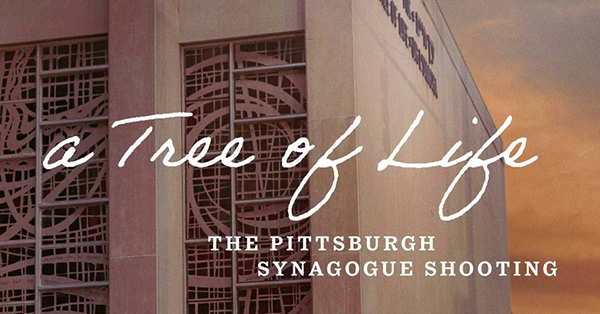
A Tree of Life - In-person Event
Join The Leo Baeck Institute and Center for Jewish History for a screening of the documentary A Tree of Life: The Pittsburgh Synagogue Shooting. Directed by Trish Adlesic, the film examines the deadly antisemitic attack on the Tree of Life Synagogue in Pittsburgh. The screening will be followed by remarks from Scott Miller, former Director of Curatorial Affairs at the United States Holocaust Memorial Museum and current member of the Tree of Life Memorial Project. The event will be followed by a reception.
About the Film
On Saturday, October 27th, 2018, a white supremacist, further radicalized by the political climate at the time, walked into the Tree of Life Synagogue with four semi-automatic assault weapons, shouting “all Jews must die.” He murdered eleven congregants, ranging in age from 54 to 97, as they prayed. A Tree of Life: The Pittsburgh Synagogue Shooting creates a deeply personal, trauma-informed portrait of the survivors, victims, and victims' family members of the Pittsburgh Synagogue attack, and brings into sharp focus the hate-based crisis that threatens our collective safety and the very social fabric of our society. As the first film to document the survivors’ stories and the only documentary with this level of personal access to the survivors and families of the victims, viewers will experience first-hand how the lives of those directly affected have profoundly changed and how the Pittsburgh community and the congregations set out on a path towards healing. (From GoodDocs)
About the Speaker
Scott Miller was a founding staff member at the United States Holocaust Memorial Museum, where he worked for thirty years on the museum’s initiative to rescue the evidence of the Holocaust. He served as Director of the Benjamin and Vladka Meed Registry of Holocaust Survivors – the museum’s names-information and tracing center, as well as Director of Curatorial Affairs, overseeing the museum’s archival, artifact, photo, film, music and oral history collections.
Currently Scott serves on the academic advisory committee for the Tree of Life Memorial Project in Pittsburgh, and as guest curator for the core exhibition at the Hilton Family Center for Holocaust Education in Phoenix. He was also guest curator of the “Human Rights After the Holocaust” exhibit at the Oregon Jewish Museum and Center for Holocaust Education in Portland, and was a member of the curatorial team for the new core exhibition at the Museum of Jewish Heritage in New York City.
Scott co-authored with Sarah A. Ogilvie Refuge Denied – The St. Louis Passengers and the Holocaust, which tells the story of their trek to trace the fate of all the St. Louis passengers. He also co-edited with Randolph Braham The Nazis’ Last Victims: The Holocaust in Hungary.
Ticket Info: Free; registration required
Presented by:


film screening
lecture
Leo Rosten and the Translation of Yiddish Joy - Live on Zoom
Sunny Yudkoff | Delivered in English.
This lecture examines a book in Yiddish studies that is frequently mentioned but little read: The Joys of Yiddish by Leo Rosten. Published in 1968, the work went on to become a bestseller. It remains in print to this day and has been translated into French, German, and Czech. The goal of this talk will be to analyze the construction and reception of the volume. To do so, Prof. Yudkoff will draw on archival sources, including fan mail, correspondence with YIVO researchers, and early drafts of the popular lexicon. These will be read together with book reviews published in both English and Yiddish, by authors as varied as anthropologist Margaret Mead and Yiddish researcher Mortkhe Kosover, the first director of the YIVO Library in New York. This talk will further bring Rosten’s volume into conversation with the work of contemporary affect theorists as well as cultural historians of postwar Jewish reading practices. Throughout, the guiding question will be: What vision of the Yiddish joy did Rosten project?
About the Speaker
Sunny Yudkoff joined the Department of German, Nordic, and Slavic, as well as the Mosse/Weinstein Center for Jewish Studies at the University of Wisconsin-Madison, in the fall of 2016. Previously, she taught at the University of Chicago. Her research and teaching focuses on Jewish literary production from the mid-nineteenth to twenty-first centuries. Her first book, Tubercular Capital: Illness and the Conditions of Modern Jewish Writing, was published with Stanford University Press (2019). She regularly teaches courses in both Jewish Studies and the Medical Humanities. Her work has appeared in Prooftexts, Journal of Jewish Social Studies, Studies in American Jewish Literature, Literature and Medicine, and elsewhere.
Ticket Info: Free; registration is required.
Presented by:

lecture
book talk
Homes of the Past - Live on Zoom
Join author Jeffrey Shandler (Rutgers University) for a talk on his new book, Homes of the Past: A Lost Jewish Museum, based on his research as the Center for Jewish History’s 2021-22 National Endowment for the Humanities Scholar in Residence. He will be in conversation with Deborah Dash Moore (University of Michigan).
In 1940s New York, immigrant Jewish scholars sought to build a museum to commemorate their lost worlds and people. Among the Jews who arrived in the United States in the early 1940s were a small number of Polish scholars who had devoted their professional lives to the study of Europe's Yiddish-speaking Jews at the YIVO Institute for Jewish Research. Faced with the devastating knowledge that returning to their former homes and resuming their scholarly work there was no longer viable, they sought to address their profound sense of loss by continuing their work, under radically different circumstances, to document the European Jewish lives, places, and ways of living that were being destroyed. In pursuing this daunting agenda, they decided to create a museum to memorialize East European Jewry and educate American Jews about this legacy. YIVO scholars determinedly pursued this undertaking for several years, publicizing the initiative and collecting materials to exhibit. However, the Museum of the Homes of the Past was abandoned shortly after the war ended.
Homes of the Past explores this largely unknown episode of modern Jewish history and museum history and demonstrates that the project, even though it was never realized, marked a critical inflection point in the dynamic interrelations between Jews in America and Eastern Europe.
This program is supported, in part, by public funds from the New York City Department of Cultural Affairs, in partnership with the City Council.
Ticket Info: Free; registration is required.
Presented by:

book talk
book launch
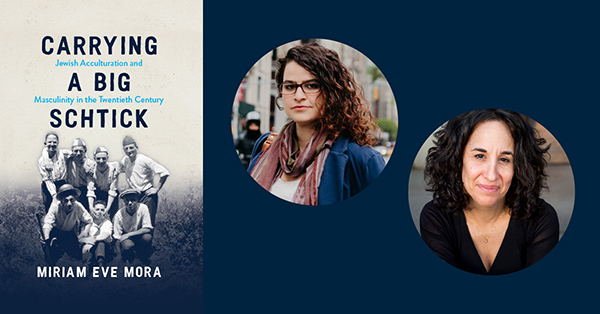
Carrying a Big Schtick: Jewish Acculturation and Masculinity in the Twentieth Century – In-person Event
The Center for Jewish History and the American Jewish Historical Society welcome Dr. Miriam Eve Mora for a discussion of her new book Carrying a Big Schtick: Jewish Acculturation and Masculinity in the Twentieth Century. She will be joined in conversation by Dr. Ronnie Grinberg (University of Oklahoma), author of Write Like a Man: Jewish Masculinity and the New York Intellectuals.
For 20th-century Jewish immigrants and their children attempting to gain full access to American society, performative masculinity was a tool of acculturation. However, this performance is consistently challenged by American mainstream society that holds Jewish men outside of the American ideal of masculinity. Depicted as weak, effeminate, cowardly, gentle, bookish, or conflict-averse, Jewish men have been ascribed these qualities by outside forces, but some have also intentionally subscribed themselves to masculinities at odds with the American mainstream.
Carrying a Big Schtick dissects notions of Jewish masculinity and its perception and practice in America in the 20th century through the lenses of immigration and cultural history. Tracing Jewish masculinity through major themes and events including both World Wars, the Holocaust, American Zionism, Israeli statehood, and the Six-Day War, this work establishes that the struggle of this process can shed light on the changing dynamics in religious, social, and economic American Jewish life.
Books by both speakers will be available for sale and signing during a reception after the program. Carrying a Big Schtick: Jewish Acculturation and Masculinity in the Twentieth Century (list price $39.99) will be available at a special discount price of $30. You may order the book with your ticket or purchase it during the reception.
About the Speakers:
Miriam Eve Mora serves as the director of academic programs at the Center for Jewish History in New York City. A historian of American immigration and ethnicity, Mora has served as the inaugural Historian in Residence for the Wyner Family Jewish Heritage Center at the New England Genealogical Historical Society and as the Marcus Center Fellow at the American Jewish Archives. She is cocreator of JewCE: The Jewish Comics Experience, a Jewish comic book and pop culture convention. Her previously published works on antisemitism, contemporary politics, and pop culture have appeared in the Washington Post, Journal of Jewish Identities, and Journal of Feminist Studies in Religion.
Ronnie Grinberg is Associate Professor of History (officially beginning in July 2024) and core faculty member of the Schusterman Center for Judaic and Israel Studies at the University of Oklahoma. She received her Ph.D. in American History from Northwestern University and Bachelor of Arts degree from Barnard College, Columbia University. Her research and teaching interests are in 20th-century America, American Jewish history, women’s and gender history, intellectual history, and social movements. Her book, Write Like a Man: Jewish Masculinity and the New York Intellectuals was published by Princeton University Press in March 2024. It examines the New York intellectuals, a prominent group of mostly male Jewish writers and critics at mid-century, through the lens of gender and ethnicity and in the process tells a larger story about the role of masculinity in American intellectual and political life in the second half of the 20th century. In December 2023 her article, “The First Lady of Neoconservatism’: Midge Decter and the Politics of Family Values” appeared in the Journal of American History. An earlier article, “Neither 'Sissy' Boy nor Patrician Man: New York Intellectuals and the Construction of American Jewish Masculinity” won the Wasserman Prize for Outstanding article in American Jewish History.
Ticket Info: Pay what you wish; register here
Presented by:


book launch
exhibit opening
Runaway Husbands, Desperate Families: The Story of the National Desertion Bureau - In-person Event
Popular stereotypes about Jewish husbands are usually positive: they’re loyal, they’re good providers, they don’t drink to excess, and they aren’t violent. It’s no wonder most people have never heard of the National Desertion Bureau, an agency created in New York in 1911 to track down runaway Jewish husbands and bring them to justice. It turns out that the era of Jewish mass migration from Eastern Europe to North America, was accompanied by terrible cultural and social upheaval, poverty, and failure. One sad feature of this era was the phenomenon of broken families, which occurred on a mass scale.
The problem of Jewish men abandoning their families was so severe that along with the National Desertion Bureau, Yiddish newspapers like the Forverts, with a daily readership in the hundreds of thousands, published a popular column called “The Gallery of Missing Husbands,” which featured mug shots and descriptions of men who had left their wives and families in the lurch. There were even local psychics on the Lower East Side who specialized in tracking down missing husbands.
Addressing a true social epidemic in the Jewish community, the National Desertion Bureau worked with a multiplicity of governmental and private organizations to find these men and force them to pay alimony, child support, and serve jail time if they didn’t. From 1905 through the 1960s, the Bureau tracked more than 18,000 cases. Its files are rich in detail and are often short novellas unto themselves, with details on the tragedy of marital dissolution, abandoned children, and financial ruin.
Together with The Jewish Board, YIVO is pleased to present a new exhibition, Runaway Husbands, Desperate Families: The Story of the National Desertion Bureau, which traces the history of the National Desertion Bureau and includes never before seen records, documents, and photographs from the organization’s voluminous archives.
Join YIVO for the exhibition opening, with a panel discussion led by YIVO Senior Academic Advisor & Director of Exhibitions, Eddy Portnoy, and featuring Professor Annette Igra (Carleton College) and Dr. Annie Polland (President of the Tenement Museum).
This program is supported, in part, by public funds from the New York City Department of Cultural Affairs, in partnership with the City Council.
Ticket Info: Free; registration is required.
Presented by:

exhibit opening
book talk
Psychoanalysis and Jewish Languages - Live on Zoom
There is an academic interest in the "Jewish Freud," aiming to detect Jewish influences on Freud, his own feelings about being Jewish, and suppressed traces of Jewishness in his thought. This book takes a different approach, turning its gaze not on Freud but rather on those who seek out his concealed Jewishness. What is it that propels the scholarly aim to show Freud in a Jewish light? Naomi Seidman explores attempts to "touch" Freud (and other famous Jews) through Jewish languages, seeking out his Hebrew name or evidence that he knew some Yiddish. Tracing a history of this drive to bring Freud into Jewish range, Seidman also charts Freud's responses to (and jokes about) this desire. More specifically, she reads the reception and translation of Freud in Hebrew and Yiddish as instances of the desire to touch, feel, "rescue," and connect with the famous professor from Vienna.
Join YIVO for a discussion with Seidman about this newly published book, led by scholar Ken Frieden.
This program is supported, in part, by public funds from the New York City Department of Cultural Affairs, in partnership with the City Council.
Ticket Info: Free; registration is required.
Presented by:

book talk
lecture
Celia Dropkin as a Translingual Writer - Live on Zoom
Translingual author Celia Dropkin (1887-1956) wrote in three languages: Russian, Yiddish, and English. Though she produced her first literary works in Russian, she emigrated from the Russian Empire to the United States in 1912 and five years later, she began translating her Russian poems into Yiddish. It was in Yiddish that Dropkin made a name for herself as an author with a bold and original voice. Additionally, because she resided in the United States, English became increasingly important in her life as yet another language of her literary creativity. Although she is known only as a Yiddish author today, the role of Russian and English in Dropkin’s oeuvre cannot be ignored. In her literary activity, Dropkin navigated between Russian, Yiddish, and English and their corresponding cultures, challenging the literary boundaries established by national categories.
In this talk, Jakub Zygmunt will present a linguistic biography of Celia Dropkin, discuss selected translingual practices found in her work, and demonstrate what the translingual framework can tell us new about Dropkin’s work in particular and Yiddish literature in general.
About the Speaker
Jakub Zygmunt is a PhD candidate in Literary Studies at the University of Warsaw. His research project focuses on the relationship between Celia Dropkin’s oeuvre and various literary traditions, as well as strategies of translation that enabled her work to exist in different cultures. Jakub holds degrees in Jewish Studies and Law, which he pursued at the College of Inter-Area Individual Studies in the Humanities and Social Sciences at the University of Warsaw. He is the 2023-2024 recipient of The Vladimir and Pearl Heifetz Memorial Fellowship and the Vivian Lefsky Hort Memorial Fellowship at the YIVO Institute for Jewish Research.
Ticket Info: Free; registration is required.
Presented by:

lecture
book talk
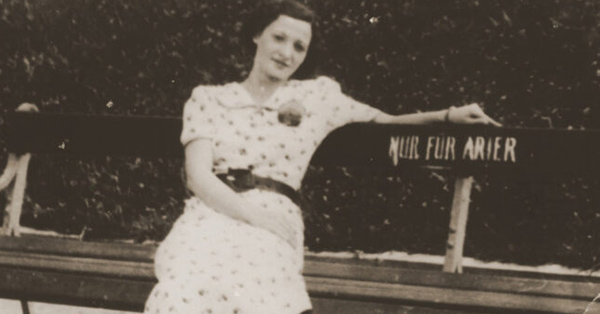
Resisters: How Ordinary Jews Fought Persecution in Hitler's Germany with Author Wolf Gruner - In-person and Live on Zoom
Join us when historian Wolf Gruner presents his new book Resisters: How Ordinary Jews Fought Persecution in Hitler's Germany. “Resisters” offers unique and gripping perspective on the lives of everyday Jews who resisted Nazi persecution. The presentation will be followed by a Q&A and book signing.
About the Book
Drawing on twelve years of research in dozens of archives in Austria, Germany, Israel, and the United States, this book tells the story of five Jewish people—a merchant, a homemaker, a real estate broker, and two teenagers—who bravely resisted persecution and defended themselves in Nazi Germany. These stories have not been told until now, and each case is one of many, as Gruner shows by resurfacing similar accounts of Jewish refusal to accept persecution and violence in Germany and Austria between 1933 and 1943, upending the notion of passive Jews and expanding the concept of resistance.
Each individual described here represents a category of resistance: written opposition, oral protest, contesting Nazi propaganda, defiance of anti-Jewish laws and measures, and self-defense against physical attacks. Many of these courageous acts resulted in the resisters being prosecuted and put on trial, and often receiving harsh punishments, while some led to acquittal by courts and others to changes in Nazi policies. Taken together, these accounts reframe our understanding of German Jewish attitudes during the Holocaust, while also providing an astonishing examination of the complex Nazi reactions to the many individual acts of Jewish resistance. (From Yale University Press)
About the Author
Wolf Gruner is the Shapell-Guerin Chair in Jewish Studies and Professor of History at the University of Southern California and founding director of the USC Dornsife Center of Advanced Genocide Research. A historian and specialist on topics relating to the Holocaust and German-Jewish History his research encompasses numerous topics including the comparative history of mass violence and its resistance on a global scale. He has written 10 books, coedited four volumes and published almost 80 articles and book chapters on related topics. Recent book publications include The Holocaust in Bohemia and Moravia: Czech Initiatives, German Policies, Jewish Responses (Berghahn Books 2019) and Parias de la Patria: The myth of the liberation of the indigenous people in the Republic of Bolivia (Plural Editores 2015). Additionally, he is a member of the Academic Committee of the US Holocaust Memorial Museum in Washington DC, and co-founder of the Consortium of Higher Education Centers for Holocaust, Genocide and Human Rights Studies.
Ticket Info: Free; registration required
Presented by:

book talk
lecture
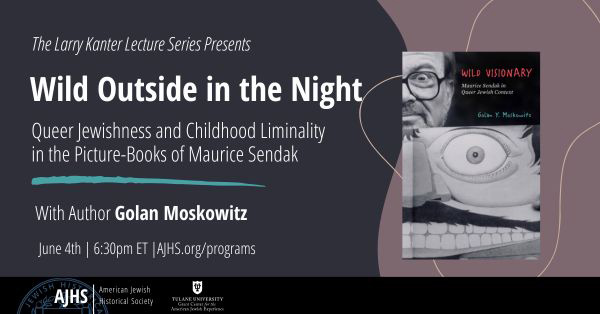
Wild Outside in the Night: Queer Jewishness and Childhood Liminality in the Picture-Books of Maurice Sendak - In-person Event and Live on Zoom
The late Jewish American gay artist Maurice Sendak (1928-2012) changed the face of children’s literature by depicting emotionally isolated, unruly, and ethnically particular protagonists who use fantasy to resist social coercion and self-erasure. In Wild Visionary: Maurice Sendak in Queer Jewish Context (Stanford University Press, 2020), Golan Moskowitz investigates the evolution of Sendak’s artistic vision and its appeal for American, Jewish, and queer audiences. The present talk will draw from that study, illuminating how Sendak’s multiple perspectives as a gay, Holocaust-conscious, American-born son of Yiddish-speaking Polish immigrants informed his life and work. It will also explore how his work interacted dynamically with his cultural surroundings, offering insights into experiences of marginality and creative resilience in twentieth- and twenty-first-century America.
Golan Moskowitz is Assistant Professor of Jewish Studies at Tulane University and a core faculty member of Tulane’s Grant Center for the American Jewish Experience. He teaches courses on Jewish gender and sexuality, American popular culture, Holocaust studies, and comics and graphic novels. He is the author of Wild Visionary: Maurice Sendak in Queer Jewish Context (Stanford University Press, 2020) and of several publications on intergenerational memory in post-Holocaust family narratives.
Ticket Info:
In person: $10 General Admission, $37 Admission + Copy of the Book
Online: Free with RSVP
Presented by:

lecture
walking tour
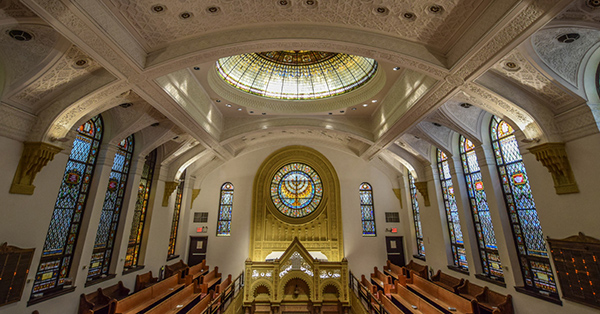
Walking Tour: Exploring the Jewish Upper West Side
Discover the vibrant tapestry of Jewish heritage on the Upper West Side alongside Barry Judelman, historian and tour guide. Stroll through a neighborhood brimming with cultural treasures, where synagogues, schools, and the essence of Jewish life intertwine with architectural marvels in Beaux Arts, Art Nouveau, and Art Deco styles.
The many sites of Jewish interest we’ll visit include: The Jewish Center, a Modern Orthodox synagogue that was among the first in the US to feature a pool and recreational space, Society for the Advancement of Judaism, the founding congregation of the Reconstructionist movement, and Congregation Rodeph Sholom, home of the first Reform day school in North America. Engage in enlightening discussions about how this community continues to influence the narrative of American Jewish identity, and savor delectable delights from Zabar's along the way. Join us for an enriching exploration of history, culture, and the enduring spirit of Jewish life in New York City.
This tour will take place rain or shine. Note: Some tour stops are not wheelchair accessible. The meeting location and additional logistical information will be emailed to all registrants one week before the tour, and again the day before the tour.
Ticket Info: $40 general; $32 Center or Partner members.
Presented by:

walking tour
film festival
26th New York Sephardic Jewish Film Festival Opening Night Ceremony
The 26th Anniversary Edition of the American Sephardi Federation’s New York Sephardic Jewish Film Festival will be held from June 2nd to 9th, 2024.
This year’s festival promises to be truly extraordinary, as we proudly announce NY, US and international premiere films, world-renowned filmmakers and actors receiving the Pomegranate Awards and the return to the American stage, hand in hand with the ASF, of the iconic internationally acclaimed singer and songwriter Enrico Macias.
Join us at the Opening Night for a mesmerizing performance by Enrico Macias and the Pomegranate Awards Ceremony honoring acclaimed filmmaker Alexandre Arcady, cultural icon Stella Levi, and celebrated actor and director John Turturro.
Ticket Info:
VIP Sponsorship Festival Package: $500
VIP Sponsorship Festival Package, access to All Events (including opening & closing Private Meet & Greet Receptions) and VIP seating at all Screenings. Names listed as Festival Sponsor in the Catalog.
Festival Pass: $250
Includes Opening and Closing Night Ceremonies, all Screenings, Q&As and special nights
Opening Night Ticket: $150
Includes Opening Night Awards Ceremony, Performance by Enrico Macias, and light reception
Presented by:

film festival
book talk
Neo-Nazi Terrorism and Countercultural Fascism - Live on Zoom
A new wave of aspiring neo-Nazi terrorists has arisen—including the infamous Atomwaffen Division, and they have a bible: James Mason’s Siege, which praises terrorism, serial killers, and Charles Manson. Neo-Nazi Terrorism and Countercultural Fascism: The Origins and Afterlife of James Mason's Siege documents the origins of Siege and shows how Mason’s vision emerged during debates in the 1970s after the splintering of the American Nazi Party/NSWPP. The second part of the book unveils for the first time how four 1980s musicians and publishers—Boyd Rice, Michael Moynihan, Adam Parfrey, and Nikolas Schreck—discovered and promoted the terrorist ideologue.
Join YIVO for a discussion of this book with author Spencer Sunshine.
This program is supported, in part, by public funds from the New York City Department of Cultural Affairs, in partnership with the City Council.
Ticket Info: Free; registration is required.
Presented by:

book talk
book launch
Rediscovering Mazaltob - In-person Event
Book presentation and discussion with the editors Yaëlle Azagury and Frances Malino.
Dr. Yaëlle Azagury is a writer, literary scholar and critic. She has taught French literature and Literature-Humanities at Barnard College, Columbia University, and SUNY-Purchase. She contributed essays and scholarly articles for Women Writing Africa (Feminist Press, 2008), Rethinking Jewish Culture and Society in North Africa and the Middle East (Indiana University Press, 2011) and other works. Her criticism has appeared in the New York Times, the Washington Post, the Jerusalem Report, and Lilith. A native of Tangier, Morocco, she holds graduate degrees from the Université Sorbonne-Nouvelle, Sciences-Po Paris, and Columbia University.
Frances Malino is the Sophia Moses Robison Professor of Jewish Studies and History Emerita at Wellesley College. She is author of The Sephardic Jews of Bordeaux: Assimilation and Emancipation in Revolutionary and Napoleonic France (1978) and A Jew in the French Revolution: The Life of Zalkind Hourwitz(1996) and co-editor of Essays in Modern Jewish History: a Tribute to Ben Halpern (1982), The Jews in Modern France(1985), Profiles in Diversity: Jews in a Changing Europe (1998), and Voices of the Diaspora: Jewish Women Writing in the New Europe (2005). Her current project is titled Teaching Freedom: Jewish Sisters in Muslim Lands. In 2012 she was named Chevalier dans l’Ordre des Palmes académiques by the French Ministry of Education. Malino is a co-founder and current President of Digital Heritage Mapping, whose flagship initiative is the Diarna Geo-Museum of North African and Middle Eastern Jewish Life.
Ticket Info: Free; RSVP/Suggested Donation
Presented by:

book launch
lecture
Passing in Print: (Non)Jewish News in the Mainstream Press during the Holocaust - Live on Zoom
In the early days of World War II, as the threat of Nazism loomed large, the Jewish Telegraphic Agency (JTA) and its non-sectarian subsidiary, the Overseas News Agency (ONA), embarked on a covert mission to inform the world about the escalating crisis in Europe. This lecture will uncover the ways in which these organizations operated to overcome significant barriers in news gathering and dissemination in a prejudiced media landscape. Moreover, it will explore how the JTA and ONA used a particular form of “passing” to place stories of Jewish persecution on the front pages of America's leading newspapers in their attempts to alter public perceptions of Jewish persecution in Europe without revealing their Jewish affiliations. The lecture traces the strategic decisions made by key figures in the Jewish journalistic world during a time of crisis that fundamentally reshaped how news was categorized, gathered, circulated, and consumed.
About the Speaker
Nathan Lucky holds a BA (Hons.) and MA in history from the University of British Columbia. Currently, he is a PhD student at the Strassler Center for Holocaust and Genocide Studies at Clark University. His areas of interest include Holocaust history, news media production and circulation, Jewish and non-Jewish relations, refugees, and espionage. He is the 2023-2024 recipient of The Rose and Isidore Drench Memorial Fellowship and the Dora and Mayer Tendler Endowed Fellowship in American Jewish Studies at the YIVO Institute for Jewish Research.
Ticket Info: Free; registration is required.
Presented by:

lecture
lecture
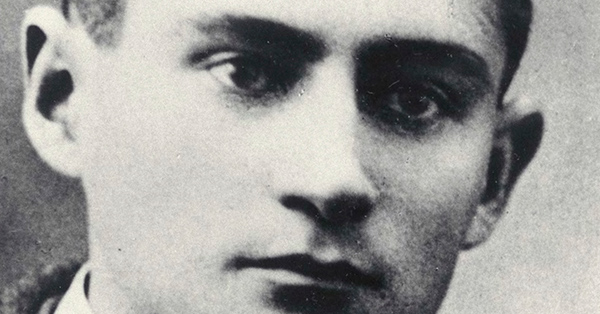
65th Leo Baeck Memorial Lecture by Hillel Kieval - In-person and Live on Zoom
About the Lecture
Still Reading Kafka? On Language, Literature, Friendship, and Identity in Central Europe
To pick up and read the novels or short stories of Franz Kafka hardly needs justification. His standing as one of the last century’s most important writers is assured. The question is: What can Kafka’s writings and the various contexts in which his life transpired—linguistic, familial, cultural, political—reveal about the textures of Jewish life in Central Europe at the turn of the century? In the 65th Annual Leo Baeck Memorial Lecture, Hillel Kieval (Washington University in St. Louis) revisits crucial aspects of Kafka’s life, work, and intellectual relationships, to explore what it meant to be both Jewish and a citizen of Prague before and after the First World War.
The Leo Baeck Memorial Lecture is endowed by Marianne C. Dreyfus and Family, the descendants of Rabbi Leo Baeck
About the Speaker
Hillel J. Kieval is the Gloria M. Goldstein Professor Emeritus of Jewish History and Thought at Washington University in St. Louis. Over the course of his career, has held visiting appointments at Charles University in Prague, the École des Hautes Études en Sciences Sociales in Paris, the Hebrew University of Jerusalem, the Universidad Hebraica in Mexico City, Vilnius University in Lithuania, and the Center for Advanced Judaic Studies at the University of Pennsylvania.
Hillel Kieval’s research interests focus on Jewish culture and society in Central and East-Central Europe in the nineteenth and twentieth centuries. They range from pathways of Jewish acculturation and integration to the impact of nationalism and ethnic conflict on modern Jewish identities, and from cross-cultural conflicts and misunderstandings to the discursive practices of modern antisemitism. His books include Blood Inscriptions: Science, Modernity, and Ritual Murder at Europe’s Fin de Siècle (2022); Prague and Beyond: Jews in the Bohemian Lands (Co-editor, 2022); Languages of Community: The Jewish Experience in the Czech Lands (2000); and The Making of Czech Jewry: National Conflict and Jewish Society in Bohemia, 1870-1918(1988).
In May 2022, Prof. Kieval was awarded the Silver Medal of the Faculty of Arts, from Charles University of Prague.
Ticket Info: Free; registration required
Presented by:

lecture
lecture
Self-Government between the Shtetl and the Village: Rural Leaders and Jewish-Polish Relations in the Lublin Countryside before World War II - Live on Zoom
The village head (in Polish: soltys) was a familiar feature of life in the countryside of the Second Polish Republic and a leader who shaped the daily lives of rural inhabitants through wide ranging economic, social, and security responsibilities. This lecture will offer initial reflections on the role and significance of Christian and Jewish village heads in prewar village and town societies in the Lublin region, as well as introduce Miranda Brethour’s dissertation project on the collaboration of rural institutions with the German occupiers during the Holocaust in Poland. Considering an array of sources, including prewar memoirs, religious and secular self-government records, and court files, Brethour will describe how rural leadership—such as the village head—was an important site of interaction between Jews and Christians in the Lublin countryside leading up to German occupation.
About the Speaker
Miranda Brethour is a PhD Candidate at the City University of New York’s Graduate Center writing a dissertation on rural Polish self-government and the Holocaust in the Lublin region. She received her BA (2017) and MA (2019) in History from the University of Ottawa in Canada. Her dissertation, entitled “Faithful German Servants” or “Good Polish Citizens”? Violence, the Village Head, and Daily Life in Interwar and Occupied Poland, 1918 to 1956, has been supported by fellowships from the United States Holocaust Memorial Museum’s Mandel Center for Advanced Holocaust Research, the Central European History Society, and the Social Sciences and Humanities Research Council of Canada. She is also the recipient of the 2023-2024 Fellowship in Polish Jewish Studies at the YIVO Institute for Jewish Research.
Ticket Info: Free; registration is required.
Presented by:

lecture
film and discussion
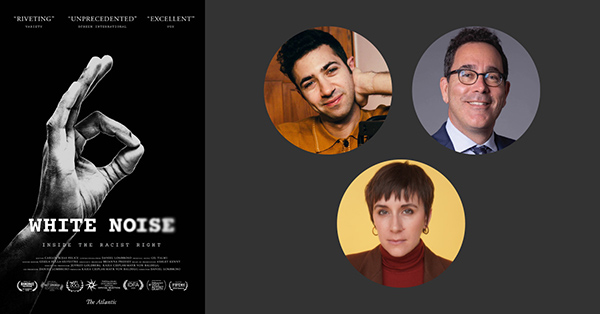
White Noise – In-Person Event & Livestreamed on YouTube (Discussion Only)
One week after the 2016 presidential election, white nationalists gathered in Washington, D.C., to celebrate the victory of President-elect Donald Trump. Addressing the crowd, the far-right leader Richard Spencer exclaimed, “Hail Trump! Hail our people!” to fanatical cheers and Nazi salutes. The Atlantic’s cameras captured exclusive footage of this moment, and the clip was shared widely on news networks and social-media platforms around the world.
WHITE NOISE, The Atlantic’s first feature documentary and Daniel Lombroso’s feature film debut, is the result of a four-year commitment to expose the roots of rising white nationalism in the U.S. and abroad. The film is a deeply reported journey through the underbelly of the alt-right, bringing viewers an unfiltered, clear-eyed look at a powerful extremist movement.
Join the Center for Jewish History for a screening of WHITE NOISE followed by a panel conversation with director and journalist Daniel Lombroso,Gavriel D. Rosenfeld, President of the Center for Jewish History and Professor of History at Fairfield University, and Anna Duensing, a historian specializing in evolving global politics of white supremacy across the twentieth century. They will discuss the ideas the alt-right has unleashed and how the movement has succeeded in infiltrating mainstream political discourse and shaping the direction of the United States.
Watch the trailer here: https://www.youtube.com/watch?v=HncFO8Sujvk&t=2s.
Fascism in America: Past and Present, edited by Gavriel D. Rosenfeld and Janet Ward, will be available for sale and signing by both editors after the screening and discussion.
About the Speakers
Daniel Lombroso is a director and journalist who spent the last decade building the Oscar-nominated video departments at The New Yorker and The Atlantic. His debut feature film, WHITE NOISE, based on his four years reporting inside the white power movement, premiered in 2020 to critical acclaim. It was named one of the top documentaries of the year by Vox and The Boston Globe. His short, AMERICAN SCAR, received an Honorable Mention for the Grand Jury Prize at DocNYC and was nominated for a National Magazine Award. His latest film, NINA & IRENA, is Executive Produced by Errol Morris and was one of the most celebrated short documentaries of 2023. Lombroso’s work has premiered at Sundance, TIFF, IDFA, and been recognized with seven Vimeo Staff Picks. He was on last year’s Forbes 30 Under 30 list.
Gavriel D. Rosenfeld is President of the Center for Jewish History and Professor of History at Fairfield University. He is the author of numerous books, including the co-edited volume (with Janet Ward), Fascism in America: Past and Present (Cambridge University Press, 2023) and The Fourth Reich: The Specter of Nazism from World War II to the Present (Cambridge University Press, 2019). He is an editor at the Journal of Holocaust Research and edits the blog The Counterfactual History Review.
Anna Duensing is a historian specializing in African American history, transnational social movements, and the evolving global politics of white supremacy across the twentieth century. She received her Ph.D. in History and African American Studies and an M.A. concentration in Public Humanities from Yale University and is currently a Postdoctoral Fellow at the Carter G. Woodson Institute for African-American and African Studies at the University of Virginia. She is working on her first book manuscript, tentatively entitled Fascism Is Already Here: Civil Rights and the Making of a Black Antifascist Tradition. She is also the host of a new podcast, “What It Is and How to Fight It,” which offers listeners a variety of perspectives on the question of fascism in the United States, past and present, through interviews with authors and activists.
Ticket Info:
In person: $12 general; $10 senior/student; $9 members; register here
YouTube livestream: Pay what you wish; register here
Please Note: The discussion only will be livestreamed on YouTube at approximately 8:40 pm. You can stream the film on Amazon here in advance of the event.
Presented by:


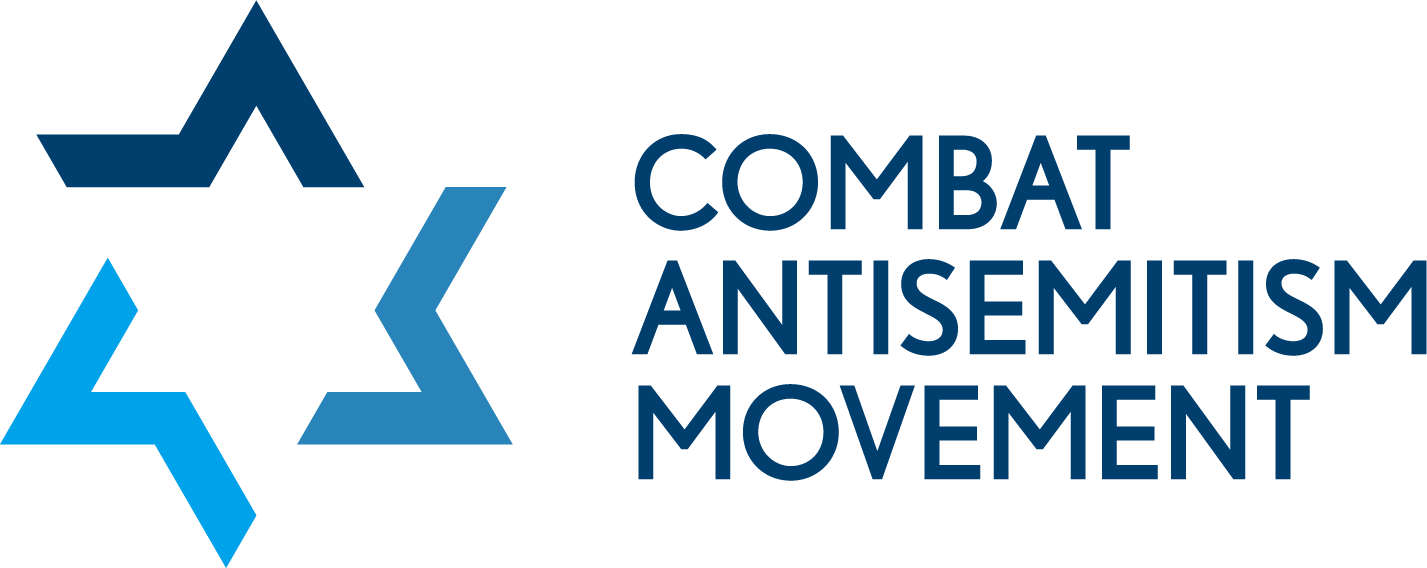
film and discussion
conversation
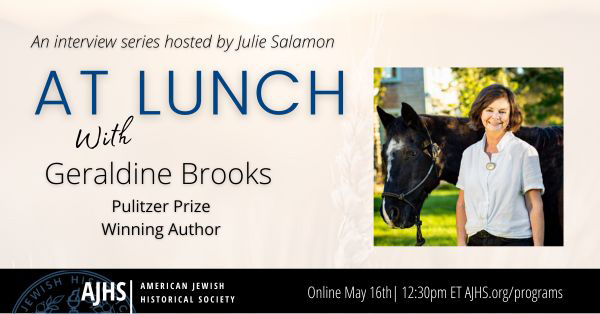
At Lunch with Geraldine Brooks – Live on Zoom
Julie Salamon (New York Times bestselling author) sits down with Pulitzer Prize winning author and former foreign correspondent Geraldine Brooks.
Australian-born Geraldine Brooks is an author and journalist who grew up in the Western suburbs of Sydney. She worked as a reporter for The Sydney Morning Herald for three years as a feature writer with a special interest in environmental issues. Later she worked for The Wall Street Journal, where she covered crises in the the Middle East, Africa, and the Balkans. In 1990, with her husband Tony Horwitz, she won the Overseas Press Club Award for best coverage of the Gulf War. The following year they received a citation for excellence for their series, “War and Peace.” In 2006 she was a fellow at the Radcliffe Institute for Advanced Studies at Harvard University. She returned to Harvard as a Visiting Lecturer in 2021.
She was awarded the Pulitzer Prize in fiction in 2006 for her novel March. Her novels People of the Book, Caleb’s Crossing and The Secret Chord all were New York Times Bestsellers. Her first novel, Year of Wonders is an an international bestseller, translated into more than 25 languages and currently optioned for a limited series by Olivia Coleman’s production company. She is also the author of the nonfiction works Nine Parts of Desire, Foreign Correspondence and The Idea of Home.
Brooks married fellow journalist and author Tony Horwitz in Tourette-sur-Loup France in 1984 and were together until his sudden death in 2019. They have two sons, Nathaniel and Bizu, She now lives with a dog named Bear and a mare named Valentine by an old mill pond on Martha’s Vineyard and spends as much time as she can in Australia. In 2016, she was named an Officer in the Order of Australia.
Ticket Info: Free; register online for a Zoom link
Presented by:

conversation
exhibit opening
The Instant Art of Morris Katz - Exhibition Opening - In-person Event
“Painting,” according to Morris Katz, “is like shmearing a bagel.” A genuine performance artist, his standard routine would be to line up two dozen canvases and paint them all within the span of an hour – using only a palette knife and toilet paper – all the while cracking jokes and explaining his craft to rapt audiences. Called “a self-contained vaudeville act” by New York Magazine, Katz holds a unique place in the annals of the art world as a painter who not only worked with incredible speed – whipping up paintings within just minutes – but who did so while engaging his audiences with Borscht Belt style shtick and then auctioning the paintings off to all comers.
Join YIVO to celebrate the launch of our newest exhibition, The Instant Art of Morris Katz, with a reception catered by the Challah Fairy and exhibit tours offered by YIVO Senior Academic Advisor & Director of Exhibitions, Eddy Portnoy.
Exhibit courtesy of the Oeuvre Family Collection.
This program is supported, in part, by public funds from the New York City Department of Cultural Affairs, in partnership with the City Council.
Ticket Info: Free; registration is required.
Presented by:

exhibit opening
concert
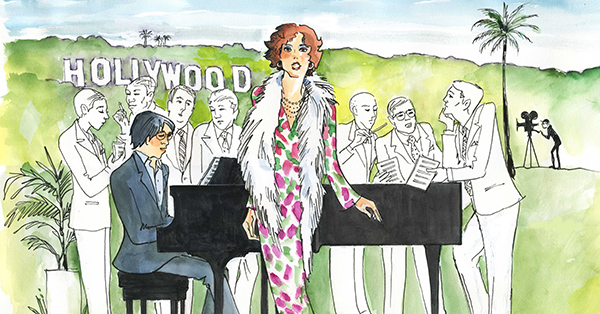
On Hollywood and Weimar: Songs of European Composers from the Golden Age of Film - In-person Event
The Leo Baeck Institute and the American Society for Jewish Music invite you for a night of live music with Karyn Levitt, Soprano and Jed Distler, Piano.
Many of Hollywood’s greatest film scores were written by émigré and exiled composers who fled Nazi Europe for Southern California. From dusty westerns and sweeping romances to the thrillers of Alfred Hitchcock, this program celebrates the blending of the old world and the new to produce the uniquely hybrid sound of Hollywood’s Golden Age.
Ticket Info: Free; registration required
Presented by:

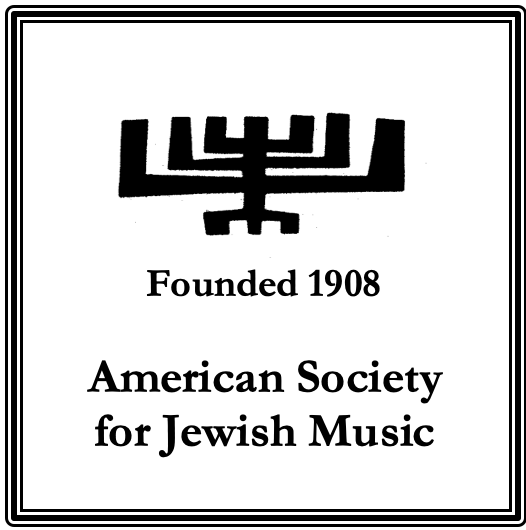
concert
concert
Jewish Songs and Dances for Piano: Jacob Weinberg’s "Ten Jewish Songs" (1933) - Live on YouTube
Join us for a performance of Jacob Weinberg’s Ten Jewish Songs (1933): a collection of Jewish folksongs, holiday songs, dances, and Hasidic nigunim in piano arrangements. Published by the Bloch Publishing Company, these arrangements were meant for use in homes and schools. Born in Odessa and educated at the Moscow Conservatory of Music, Weinberg was one of the composers of the Society for Jewish Folk Music who pioneered Jewish classical music. Famous for writing the first Hebrew language opera, The Pioneers (Hechalutz), Weinberg was a prolific composer with many songs, choral works, chamber compositions, and oratorios to his name.
This collection of ten pieces will be performed by pianist Thomas Kotcheff.
The Sidney Krum Young Artists Concert Series is made possible by a generous gift from the Estate of Sidney Krum.
This program is supported, in part, by public funds from the New York City Department of Cultural Affairs, in partnership with the City Council.
Ticket Info: Free; registration is required
Presented by:

concert
lecture
Jewish Self-Defense in the Russian Empire 1903-1905 - Live on Zoom
The phenomenon of self-defense against anti-Jewish violence prior to World War II has remained a largely unexplored topic. This presentation will delve into the history of Jewish local guard and self-defense units in Jewish communities in the Russian Empire before and during the failed 1905 revolution. Among the issues discussed will be the formation and leadership of Jewish self-defense units, the political and socio-economic background of their members, as well as contemporaneous Jewish discourse and debate on both the efficacy and the necessity of self-defense. By shedding light on Jewish resistance to pogroms through analysis of a variety of primary sources, Netta Ehrlich will contribute to our understanding of the development of Jewish self-defense both in theory and in practice.
About the Speaker
Netta Ehrlich is a doctoral candidate and MacCracken Fellow at the Skirball Department of Hebrew and Judaic Studies, NYU. Her dissertation focuses on self-defense in modern East European Jewish History. She has worked previously as an instructor and as a developer of educational programs at the Yad Vashem International School for Holocaust Studies. Netta is the 2023-2024 recipient of the Professor Bernard Choseed Memorial Fellowship and the Natalie and Mendel Racolin Memorial Fellowship at the YIVO Institute for Jewish Research.
Ticket Info: Free; registration is required
Presented by:

lecture
concert
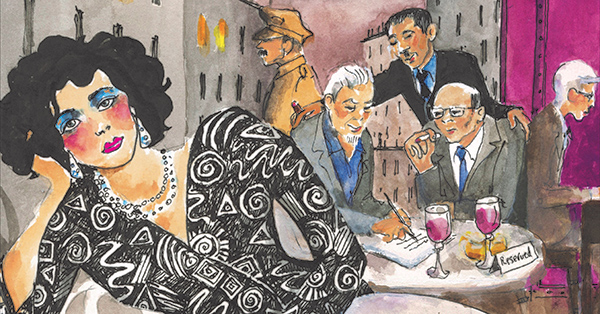
Will There Still Be Singing? A Hanns Eisler Cabaret - In-person Event
The Leo Baeck Institute and the American Society for Jewish Music invite you for a night of live music.
Soprano Karyn Levitt performs Eric Bentley’s English versions of the songs of Hanns Eisler and Bertolt Brecht, one of the 20th century’s great songwriting teams. Levitt’s close working relationship with Bentley, the foremost translator of Brecht’s lyrics and plays, gave her the opportunity of a lifetime to consult with the source of these acclaimed translations.
Karyn Levitt, Soprano<
The Hanns Eisler Trio
Eric Ostling, Musical Director and Piano
Michael Unger, Director
Ticket Info: Free; registration required
Presented by:


concert
concert
Yiddish and Hebrew Song in the Weimar Republic
The Weimar Republic era contained a hotbed of Jewish musical activity. Following World War I, there was a spike of curiosity about Eastern European Jewry and Yiddish, which inspired many German-Jewish composers—from Cantor Leon Kornitzer to avant garde composer Stefan Wolpe—to explore Yiddish folksong in their music. At the same time, Berlin and Vienna acted as important publishing centers for the Jibneh Edition. In addition to featuring music of some German-Jewish composers such as Aron M. Rothmüller and Israel Brandmann, Jibneh Edition disseminated music of composers born in the Russian Empire associated with the Society for Jewish Folk Music such as Joel Engel, Joseph Achron, Michael Gnessin, and Alexander Krein, as well as the great Yiddish song composer Lazar Weiner writing in America. This rich musical activity bridged communities active in the East and West and reflected the linguistically and ideologically diverse aspirations of Jewish composers of its time. Join YIVO for a concert exploring Yiddish and Hebrew songs of the Weimar Republic.
Ticket Info: In-person admission is $15, and $10 for YIVO members and students. The Zoom livestream is free. Register at https://yivo.org/Weimar-Song for tickets.
Presented by:

concert
lecture
Der oytser formen baym moler: Ryback's Formal Approach to Jewish Art - Live on Zoom
The visual and plastic works, as well as writings, of Jewish Ukrainian artist Issachar Ber Ryback (1897-1935) present a formal approach to national art, diverging from prevalent depictions of Jewish identity. Spanning illustration, drawing, painting, sculpture, stage design and theoretical writing, Ryback’s diverse body of work brings to the fore a material cult of everyday Eastern European Jewish life that was often overlooked. Central to the discussion is Shtetl, mayn khorever heym: a gedekhenish (Shtetl: My Destroyed Home, a Recollection), a lithograph album, conceived in 1917 within the Pale of Settlement and published in Berlin six years later in 1923. By closely analyzing the lithographs and Ryback’s contemporaneous writing, Noa Tsaushu examines the ways in which the artist exploited notions of materiality and visual representation to defy conventions of monolithic medium, push back against the Western European paradigm of Jewish aniconism, and challenge the hegemony of text as the Jewish medium of choice.
About the Speaker
Noa Tsaushu is a doctoral student of Yiddish Studies at Columbia University. She earned her master’s degree in Jewish Studies from Bar Ilan University, and her bachelor’s degree in fine art from the Bezalel Academy of Arts and Design, Jerusalem. Guided by a comparative approach to cultural production, Noa specializes in modern Jewish art and Yiddish literature. Her dissertation, titled “Yiddish Art: The Desire for Cohesion among the Soviet-Yiddish Avant-Garde,” presents a theoretical framework for understanding the Yiddish avant-garde movement, a phenomenon in modern Yiddish culture that has been primarily approached in scholarship through historical and literary lenses. Noa is this year’s recipient of the Ruth and Joseph Kremen Memorial Fellowship in East European Arts, Music, and Theater at the YIVO Institute for Jewish Research. She recently translated and contributed to a volume of works from the Merrill C. Berman Collection titled Jewish Artists, Jewish Identity, 1917–1931.
Ticket Info: Free - registration is required
Presented by:

lecture
workshop
How to Do Research at YIVO: Reading a Finding Aid - Live on Zoom
The Archives and Library at the YIVO Institute for Jewish Research represent the single largest and most comprehensive collection of materials on Eastern European Jewish civilization in the world. With 24 million unique items in the YIVO Archives and nearly 400,000 volumes in all European languages in YIVO's Library, the possibilities for research are endless.
Join YIVO’s Reference and Outreach Archivist Ruby Landau-Pincus for a workshop on reading YIVO finding aids. A finding aid is a document that covers the background of an archival collection as well as a description of the materials within the collection and how they are arranged. This workshop will cover what information researchers can expect to discover in a finding aid and will provide an overview of a range of finding aid formats, from digital finding aids to legacy finding aids and other resources available for navigating collections in the YIVO Archives.
This event is open to anyone interested in doing research at YIVO or learning more about YIVO’s vast collections.
This program is supported, in part, by public funds from the New York City Department of Cultural Affairs, in partnership with the City Council.
Ticket Info: Free; registration is required.
Presented by:

workshop
lecture
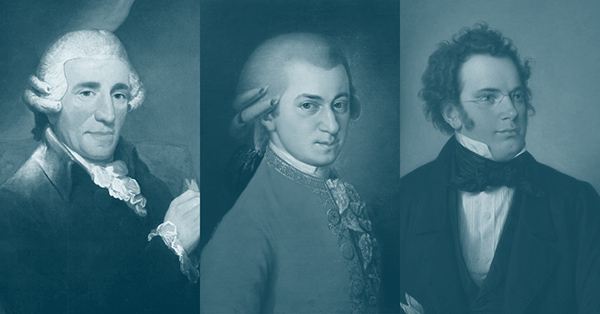
The Golden Age of Classicism: Phoenix Chamber Ensemble Performs Music by Haydn, Mozart, and Schubert – In Person and Live on YouTube
Join Phoenix Chamber Ensemble pianists Vassa Shevel and Inessa Zaretsky and guest artists Titilayo Ayangadeon cello, Edwin Kaplan on viola, and Risa Schuchter on violin.
Program:
Franz Schubert: Sonatina in A Minor, D.385 for violin and piano
Joseph Haydn: Piano Trio in C Major, Hob. XV: No.21
Franz Schubert: Ständchen, arranged for viola and piano
Wolfgang Amadeus Mozart: Piano Quartet in G Minor, K.478
Founded in 2005 by pianists Vassa Shevel and Inessa Zaretsky, the Phoenix Chamber Ensemble has, over the course of two decades, become a vital part of the New York classical community, presenting more than 70 public concerts at the Center for Jewish History. The ensemble has garnered a devoted following with its innovative programming and sensitive interpretations, earned an international reputation presenting concerts in Russia, Poland, Italy, and other European venues, and collaborated with numerous acclaimed guest artists, including clarinetist David Krakauer, the Grammy-nominated Enso Quartet, the Tesla Quartet, members of the Jasper String Quartet, the New York Little Opera Company, the Metropolitan Opera, and New York City Ballet.
Made possible by the Stravinsky Institute Foundation through the generous support of the Blavatnik Family Foundation. Presented in partnership with the Leo Baeck Institute.
Ticket Info:
In person: $15 general; $13 senior/student; $12 members; register here
YouTube livestream: Pay what you wish; register here
Presented by:

lecture
commemoration
Commemoration of the 81st Anniversary of the Warsaw Ghetto Uprising at Der Shteyn - Riverside Park between 83rd and 84th St.
Join Congress for Jewish Culture, Friends of the Bund, the Jewish Labor Committee, Workers Circle, and YIVO on Friday, April 19, 2024 at 2 PM to commemorate and remember the bravery of the partisans of the Warsaw Ghetto. This annual gathering follows a tradition established in 1947 by Jewish partisans, ghetto fighters and Holocaust survivors at the site designated by the City of New York for a memorial to the Warsaw Ghetto Uprising. It has become an annual gathering of Bundists and members of the secular, progressive Yiddish cultural community, as well as children and grandchildren of the original attendees.
Please join us to commemorate the 81st Anniversary of the Warsaw Ghetto Uprising. Speaking in the program are Julia Mintz and Lily Kshensky Baxter. Marcel Kshensky will chair. In the artistic program will be Sarah Gordon, Feygele Jacobs, Shifee Losacco, Zalmen Mlotek, Daniella Rabbani, and Esti Zanoni.
The program will take place at der shteyn, the memorial stone in Riverside Park between 83rd and 84th Street. The event takes place under the open skies and is free and open to the public.
Ticket Info: Free; no reservation required
Presented by:

commemoration
performance
Miryeml - In-person Event & Live on Zoom
Tea Arciszewska's Miryeml was heralded as a powerful memorial to the million children murdered in the Holocaust. This nearly-forgotten modernist masterpiece is now available in English translation for the first time.
Arciszewska was a dazzling figure in the prewar Warsaw Yiddish culture scene – an actress, dramaturge, salon hostess, and muse to the renowned Yiddish writer I. L. Peretz. In the 1920s, she began writing a play about the experiences of children during the pogroms that followed World War I. She worked on it for decades, first publishing Miryeml in 1958. Yiddish critics praised the play, seeing it as a powerful response to the Holocaust. They recognized the character Miryeml as an extraordinary figure in Yiddish drama. The play received an Alexander Shapiro Prize from the Congress for Jewish Culture for Best Yiddish Drama.
Miryeml is a modernist work that deftly integrates twentieth-century history and Jewish folklore into a narrative about children’s response to trauma, challenging our expectations of Yiddish theatre.
Directed by Allen Lewis Rickman, this “rehearsed reading” will be performed in Sonia Gollance’s new English translation.
This program is supported, in part, by public funds from the New York City Department of Cultural Affairs, in partnership with the City Council.
Ticket Info: In-person admission is $15, and $10 for YIVO members and students. The Zoom livestream is free. Register at https://yivo.org/Miryeml for tickets.
Presented by:

performance
concert
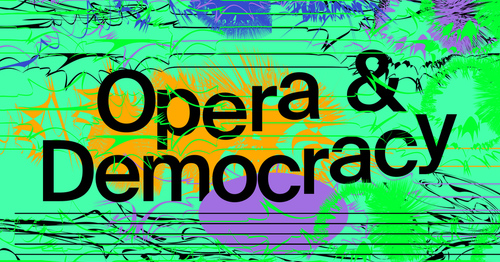
Opera and Democracy: Songs from Exile - In-person Event
The concert introduces two German-Jewish composers in American exile: Paul Aron and Rosy Geiger-Kullmann. Aron, a protagonist of the German interwar avant-garde, founded an opera company in New York in the 1950s to popularize the works of émigrés such as Darius Milhaud, Kurt Weill, Tadeusz Kassern, and Ernst Toch through piano arrangements and English translations. One of these - his English version of Toch’s short opera Egon & Emilie - will be presented alongside exile songs by Aron. Geiger-Kullmann, a successful opera composer of the Weimar Republic, was born in Frankfurt and fled from the Nazis to New York and later to Monterey. Excerpts from her opera Columbus, written after her arrival in New York, and two stage works from her years in Germany have been reconstructed and will be performed in excerpts – a world premiere.
Opera and Democracy: Listening to Exile is a series of concerts and discussions co-hosted by 1014 – space for ideas, the Austrian Cultural Forum New York, the Goethe-Institut, the Leo Baeck Institute – New York | Berlin, and American Society for Jewish Music. It is initiated by Thomas Mann House and curated by Thomas Mann Fellow Kai Hinrich Müller.
Ticket Info: Free; registration is required.
Presented by:

concert
panel discussion
Responses to October 7th - Live on Zoom
Historian Jeffrey Herf will lead a panel exploring responses to Hamas’ October 7th massacres and to the state of Israel’s subsequent military response. Meir Litvak will discuss his scholarship on the Islamization of the Israeli-Palestinian conflict; Norman Goda will examine rules of war, civilian casualties, and accusations of genocide; Karin Stögner will discuss theories of race and intersectionality and anti-Zionism, and the gendered aspects of the violence of October 7; and David Hirsh will examine the nature of leftist anti-Zionism that achieved predominance for some years in the British Labor Party.
Buy the books from this series.
This program is supported, in part, by public funds from the New York City Department of Cultural Affairs, in partnership with the City Council.
Ticket Info: Free; registration is required.
Presented by:

panel discussion
film screening
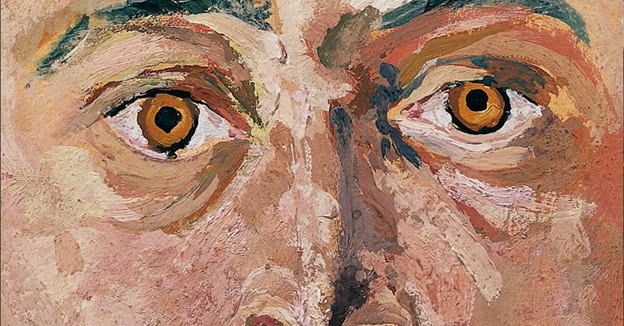
String Trio, Los Angeles 1946 - In-person Event
Join us for a 150-year celebration of Arnold Schoenberg (1874-1951), one of the 20th century’s most important and influential composers.
The event will feature the New York City premiere of a film by David Starobin, “String Trio, Los Angeles 1946" a documentary about Schoenberg. In August of 1946, Schoenberg's heart stopped beating. He composed "String Trio” immediately after his recuperation to try and describe his brush with death.
The documentary looks back at Schoenberg's 1933 departure from Nazi Germany, his career, and the composer's years in Los Angeles. In the film Gertrud and Arnold Schoenberg's three children, Nuria, Ronald, and Lawrence comment about their memories of their father, and well-known director Peter Sellars and violist Kim Kashkashian speak about the "String Trio."
After the film, there will be a panel discussion.
Ticket Info: Free; registration is required.
Presented by:



film screening
discussion
Socrates, Moses, and the Long Fight Against Idolatry - In-person Event
Join us for a fascinating discussion celebrating the launch of Matt Gatton’s new book, The Shadows of Socrates: The Heresy, War, and Treachery Behind the Trial of Socrates.
The trial of the ancient Greek philosopher Socrates is widely considered the most famous trial of all time. At age 70, he was charged with impiety (a religious crime) and corrupting the youth, but the reasons for these charges were left unexplained, as the prosecution’s case was not recorded. There’s a reason for this: Socrates triggered the first great battle between philosophy and religion when he launched a searing critique of Athens’ most important and secretive idolatrous cult. Socrates has more in common with Moses, Maimonides, and Spinoza than you might ever have imagined. Sometimes the light of true reason must fight in the shadows.
Ticket Info: $15-$500
Presented by:

discussion
class
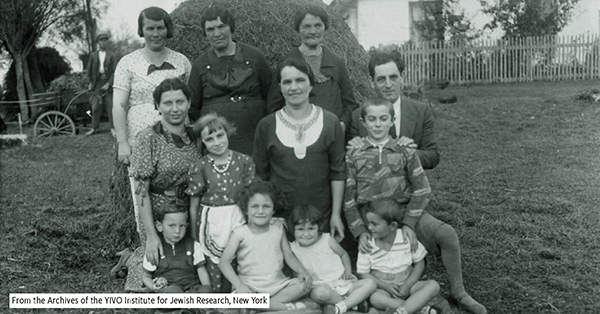
All in the Mishpocheh, Part II: Jewish Genealogy Beyond the Basics - Online Course
10-session online course (via Zoom)
Fridays, 1:00-2:15 PM ET
April 12 – June 14, 2024
Join the librarians of the Center for Jewish History’s Ackman & Ziff Family Genealogy Institute for this 10-week intermediate-level online course, designed for those who are familiar with the major online databases like Ancestry and JewishGen, as well as basic search strategies for Jewish names and ancestral towns, and at least a few relevant offline resources, such as reference books or archival records. NOTE: You don’t need to complete our beginner-level online course (Intro to Jewish Genealogy at CJH) to join this one. That said, we certainly welcome and encourage all our former students to continue their research journey with us. Topics will include strategies for getting past your “brick walls,” Jewish immigration after the Great Wave, tools for analyzing your DNA matches, tracking down lesser-known record types, digital preservation, artificial intelligence, and more. By the end of this course, you will have compiled the first portion of your family history narrative and will be equipped with the tools to complete it on your own!
Students are encouraged to participate live but are welcome to watch or review class recordings as needed.
FAQ
Can I contact the instructor outside of class time?
Absolutely! One unique aspect of this course is that our instructors not only permit, but encourage, their students to reach out to them beyond the class time – via email, video chat, or in-person visits. Former students say this one-on-one availability was instrumental in their personal research progress, providing the tailored guidance they needed to chart their research path.
Will I get personal feedback?
Yes. Your instructor will give you feedback on your assignments and your personal research questions either during or between classes. Your fellow students may also offer their advice during class.
Ticket Info: $295 general; $255 CJH members (members are those who have donated $50 or more to the Center in the past year); click here to register
Presented by:

class
lecture
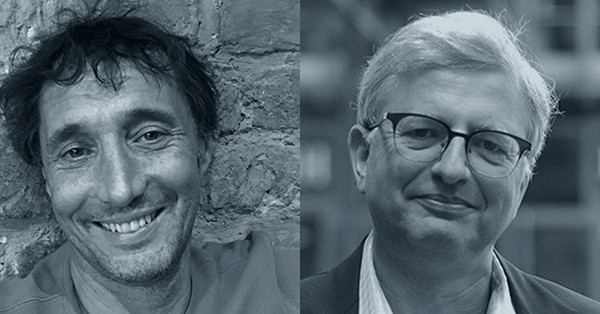
Restitution, Mourning, and Memory in the Early Federal Republic – Live on Zoom
In this lecture, CJH NEH Scholar in Residence Helmut Walser Smith (Vanderbilt University) follows the postwar story of a group of Holocaust survivors from the small Swabian town of Haigerloch and argues that their restitution claims, while hedged in by legal categories, constituted an early form of truth telling. Focusing especially on the Buttenhausen Memorial erected in 1961, the presentation then shifts to public claims for truth about the Holocaust in the form of early commemoration. Although located in a village, this monument was essentially put up by Jews in New York and was less an act of memory than it was a form of mourning. The chapter concludes by asking when, where, and how the transition occurred to the first memorials erected by non-Jewish Germans. The presentation draws from the third chapter of the author's book-in-progress, tentatively entitled "Local Truth: How Jews and Germans made the Memory Culture of the Federal Republic."
About the Speakers
Helmut Walser Smith is the Martha Rivers Ingram Professor of History at Vanderbilt University in Nashville, Tennessee, and currently NEH Scholar in Residence at the Center for Jewish History in New York. His books have appeared in six languages and include German Nationalism and Religious Conflict: Culture, Ideology, Politics, 1870-1914 (Princeton, 1995), The Butcher’s Tale: Murder and Antisemitism in a German Town (W.W. Norton, 2002), The Continuities of German History (Cambridge University Press, 2008), and Germany: A Nation in its Time: Before, During, and After Nationalism (W.W. Norton/Liveright, 2020). He is also the editor of The Oxford Handbook of Modern German History (Oxford University Press, 2011) and a number of other edited volumes. Over the years, his research has been supported by the NEH, the German Academic Exchange, the Volkswagen Foundation, the Humboldt Foundation, and the John Simon Guggenheim Memorial Foundation. He is currently working on a book with the tentative title "Local Truth: How Jews and Germans made the Memory Culture of the Federal Republic."
Michael Brenner (respondent) holds the chair of Jewish History and Culture at Ludwig Maximilian University in Munich. He is also Distinguished Professor of History and Seymour and Lillian Abensohn Chair in Israel Studies at American University and serves as International President of the Leo Baeck Institute for the Study of German-Jewish History. In 2021 he was the first recipient of the Baron Award for Scholarly Excellence in Research of the Jewish Experience. He is the author of ten books, translated into over a dozen languages. His latest books are In Hitler’s Munich: Jews, the Revolution, and the Rise of Nazism(Princeton University Press, 2022) and In Search of Israel: The History of an Idea (Princeton University Press, 2018).
Ticket Info: Pay what you wish; register here for a zoom link
Presented by:

lecture
lecture
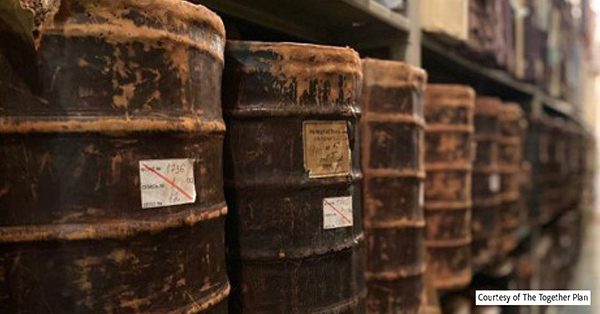
Family History Today: Belarus Archive Searches – Live on Zoom
Many people seeking information about their Jewish ancestors in Belarus are quickly deterred because there are so few relevant records online. Until those records go online, genealogy research requires traveling to the Belarus Archives, mainly in Minsk and Grodno, and navigating large registers and document collections handwritten in Russian, which isn’t feasible for most Jews with Belarussian roots today. The London-based non-profit, The Together Plan (TTP), employs a team of Belarussian archivists who will search the Archives for records of your family for a reasonable fee, a portion of which supports TTP’s numerous on-the-ground efforts to revitalize Jewish communities in Belarus today. In this presentation, Carl Kaplan and Vasily Zaitsau, TTP’s Archive Services Caseworker in Boston and Archive Services Coordinator in Minsk, will explain how to initiate a genealogy research request with TTP, what their research process entails, and what kinds of results you may expect to receive from them, with examples of discoveries made for previous clients.
Ticket Info: Pay what you wish; register here
Presented by:

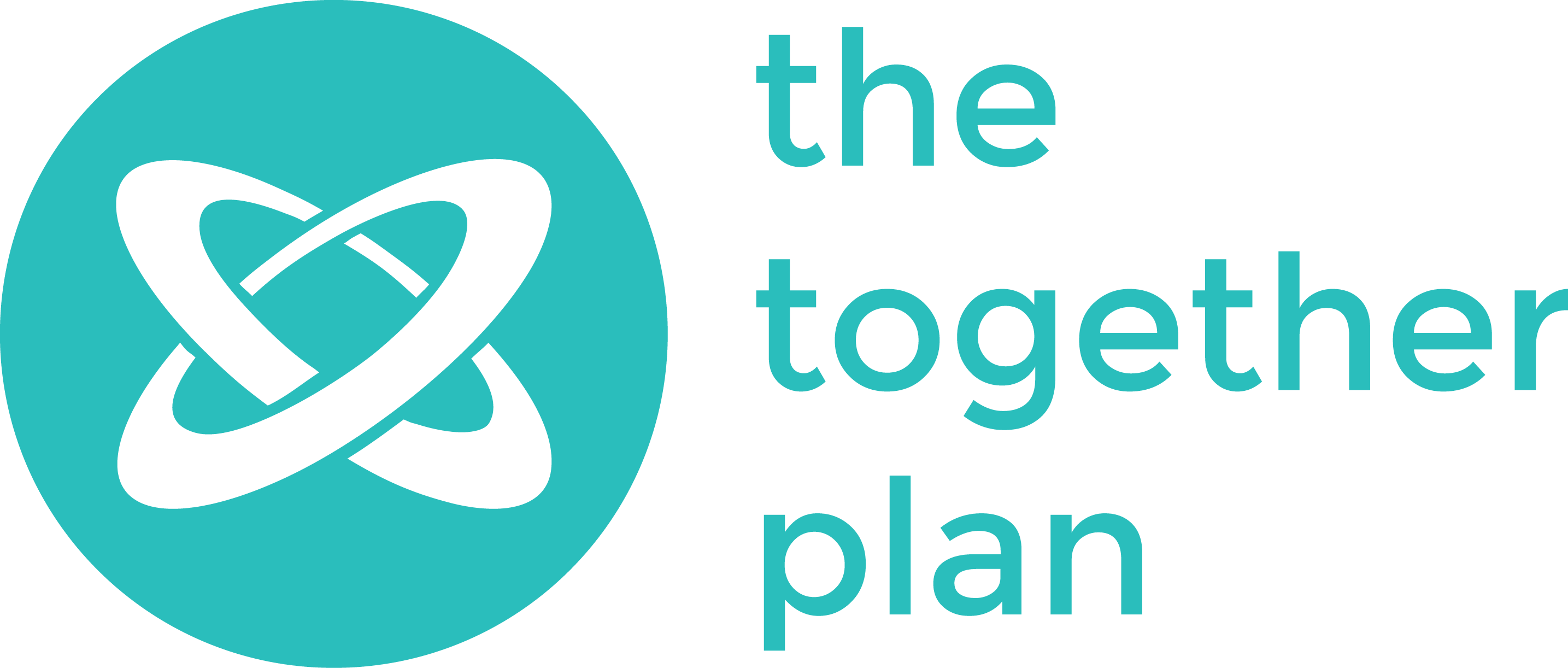
lecture
exhibit opening
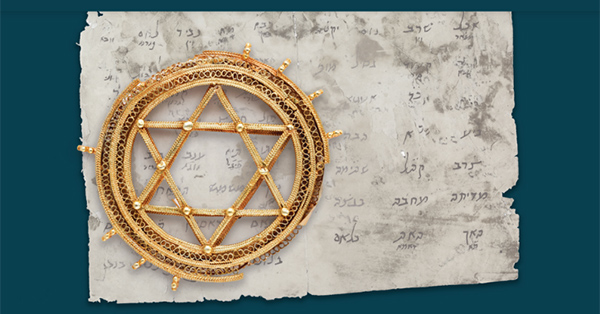
Exhibit Inauguration: “The Golden Age of the Jews of Alandalus” | "La Edad de Oro de los judíos de Alandalús" - In-person Event
Join us to celebrate the Golden Age of the Jewish community of Al-Andalus with:
Ángeles Moreno Bau, Ambassador of Spain to the United States
Jaime Moreno Bau, General Director of the Centro Sefarad-Israel
David Dangoor, President of the ASF
Dr. Vanessa Paloma Duncan-Elbaz, ASF Broome & Allen Fellow, Research Associate at Cambridge University, and award-winning scholar and singer
Rabbi Yamin Levy, Founder of the Maimonides Heritage Center and author of The Founding Fathers of Sephardic Jewry and The Mysticism of Andalusia
Matt Gatton, Sephardic scholar and author of The Shadows of Socrates
Dr. Hélene Jawhara Piñer, ASF Broome & Allen Scholar, award-winning author of Sephardi: cooking the history & Jews, Food, and Spain: The Oldest Medieval Spanish Cookbook and the Sephardic Culinary Heritage
Dvir Avnon-Klein, ASF Sephardi House Fellow and talented multi-instrumentalist
The exhibition has been organized by Centro Sefarad-Israel, with the collaboration of Casa del Mediterráneo, the Miller Center for Contemporary Judaic Studies, and The George Feldenkers Program in Judaic Studies of the University of Miami, the Red de Juderías de España, the World Jewish Congress, Fundación Hispano Judía, and the American Sephardi Federation. It also has the support of Spain’s Ministry of Foreign Affairs - European Union and Cooperation, the Community of Madrid, the Madrid City Council, ElAl, Instituto Cervantes, the University of Cambridge, the University of Granada, Trinity College Dublin, and the European Research Council.
Ticket Info: $26
Presented by:

exhibit opening
lecture
"The Protocols of the Elders of Zion" in Court: The Bern Trial (1933-1935) and the "Antisemitic International" - In-person Event & Live on Zoom
Between 1933 and 1935, a trial was held in Bern against members of the Swiss extreme right-wing National Front who had distributed “The Protocols of the Elders of Zion,” a widely disseminated antisemitic publication that spread lies about Jews. The real target of the Jewish organization’s fascist movements.
During the course of the trial, both sides received ample support in the form of material assistance and propaganda. The defendants and their supporters in Nazi Germany were able to rely on an extensive network that had been established in the early 1920s to combat “Judaeo-Bolshevism.” This conspiratorial “Antisemitic International” united German völkisch circles, Italian fascists, Russian monarchists, and French conspiracy theorists. On the other side, the plaintiffs, who actively sought to expose the “Protocols” as a forgery in the hope that this would counteract their impact.
In this lecture, Michael Hagemeister will use the Bern trial as a case study of Jewish legal self-defense in order to shed light on both the “Protocols of the Elders of Zion” and the concerted efforts against the “Antisemitic International” in the 1930s, which have received little attention from historians.
This program is supported, in part, by public funds from the New York City Department of Cultural Affairs, in partnership with the City Council.
Ticket Info: Free; registration is required.
Presented by:

lecture
symposium
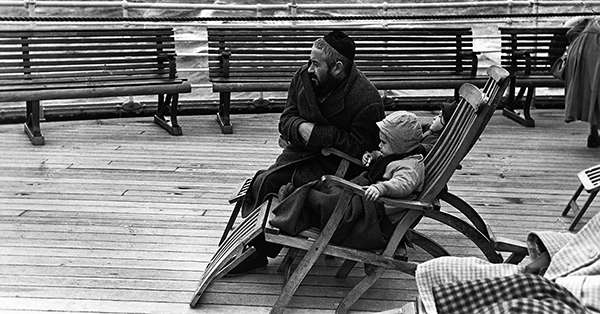
Reconsidering Jewish Migration to the United States: A Century of Controversy – In-person & live on Zoom
Reconsidering Jewish Migration to the United States: A Century of Controversy marks the 100th anniversary of the pivotal Johnson-Reed Immigration Act of 1924 by exploring a century of Jewish engagement with immigration at the national and international level. The symposium brings together nationally renowned scholars and experts to examine how the 1924 act restricted immigration from the interwar period to the 1960s, how Jews and other groups were affected, and how the liberalization of immigration law after the 1960s produced major demographic changes in the United States and set the stage for contemporary political controversies over the role of immigration in American life.
Click here for a list of panels and speakers.
Speakers will be selling and signing books throughout the day. At the conclusion of the symposium, please join us for a wine and cheese reception to celebrate the opening of a related exhibition, Crossing the Ocean. Three Waves of German Jewish Immigration to the United States, presented by the Leo Baeck Institute.
The symposium is generously sponsored by the Selz Foundation, the David Berg Foundation, and supplemented by public funds from the New York City Department of Cultural Affairs, in partnership with the City Council.
Photo Credit: Coming to America, 1952, Louis Stettner, © Louis Stettner Estate 2024
Ticket Info:
In-person tickets: $36 general; $28 members
Zoom: Pay what you wish
Click here to register
Tickets include lunch and a wine and cheese reception after the program.
Presented by:
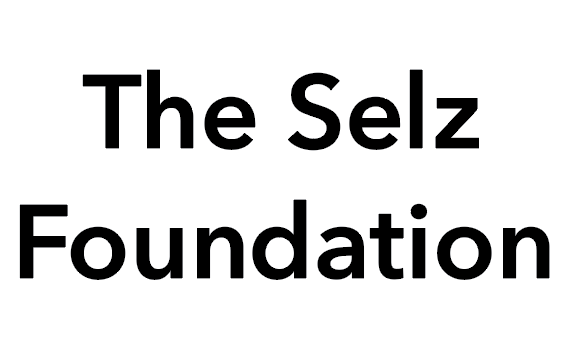
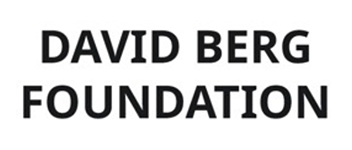

symposium
exhibit opening
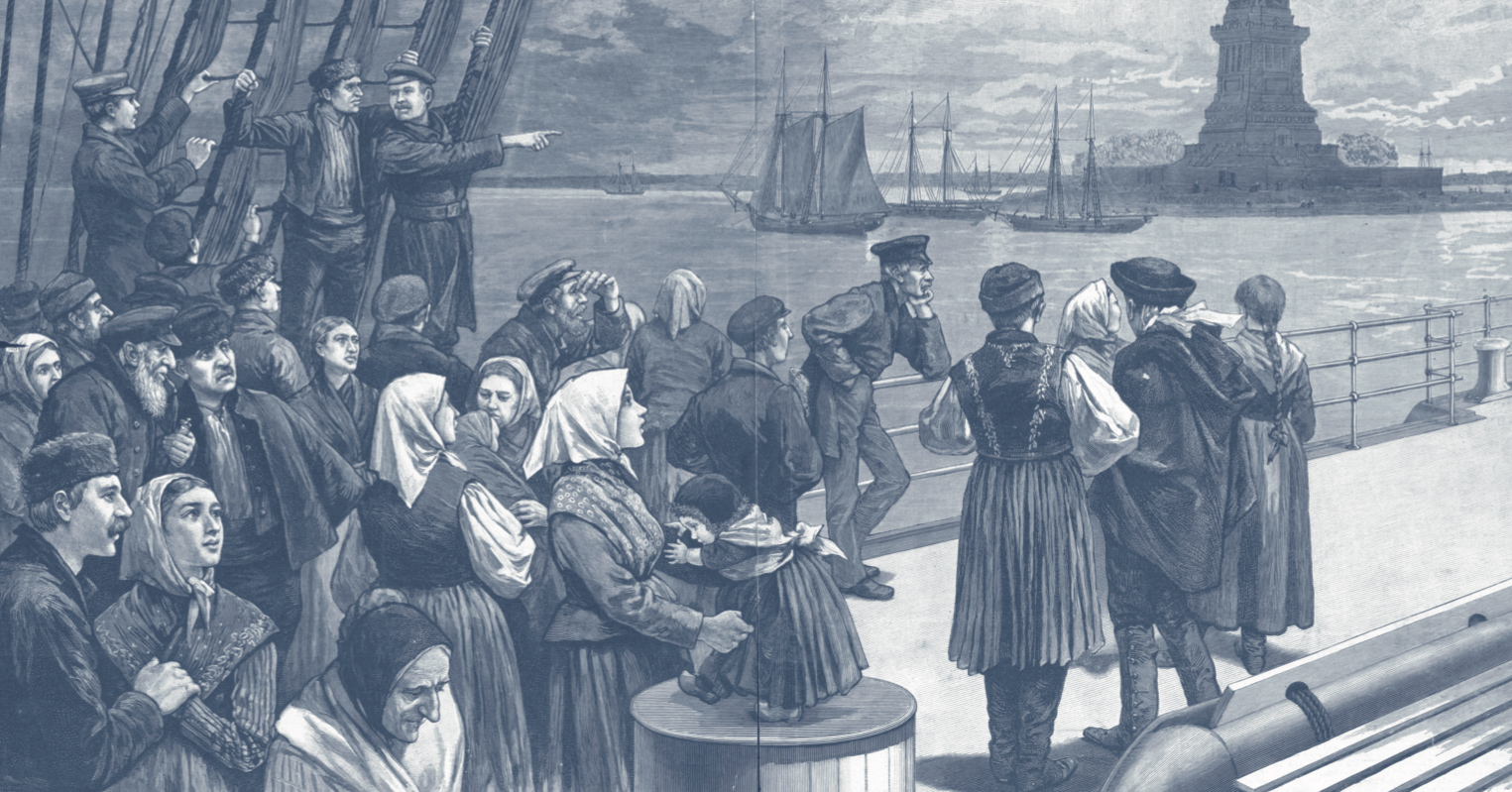
Crossing the Ocean Exhibit Opening - In-person Event
Based on personal accounts from the LBI Archives, this exhibition explores how the experience of German-speaking Jews coming to America changed between the 1840s and 1950s. It emphasizes the often-marginalized aspect of the migration history, the decision-making, and crossing the ocean in the search for a better life. While showing various aspects of the immigration process and practicalities, the exhibition focuses on the role of transnational contacts between past and prospective immigrants. The strength of one's contacts in the United States could make or break an immigration attempt. The story encompasses three waves of immigration: the 19th century, 1933–1941, and post-World War II. In the year of the 100th Anniversary of the Immigration Act of 1924, which virtually stopped mass immigration to the United States for two generations, immigration, particularly refugees, is still an acute problem of world affairs.
The exhibit will officially open during the symposium Reconsidering Jewish Migration to the United States: A Century of Controversy, organized by the Center for Jewish History on April 7, 2024.
Ticket Info: Free; reservations required
Presented by:

exhibit opening
lecture
The Lodz Ghetto and the Kriminalpolizei: Jews, Neighbors, and Perpetrators in the Holocaust - Live on Zoom
The German criminal police (Kriminalpolizei, or Kripo) maintained a permanent station in the Lodz ghetto, which over the four years of its existence imprisoned some 200,000 Jews. Responsible for stopping smuggling networks and for gathering information about hidden possessions inside and outside the ghetto, the Kripo relied heavily on local ethnic Germans, the so-called Volksdeutsche. These policemen exploited their prewar social networks in their investigations and carried out violent acts against Jews familiar to them. They deployed their Polish and Yiddish language skills in interrogations of suspects, and they used their knowledge of Jewish religious practices and local customs to spy on the Jews and later to evaluate their confiscated property.
In this talk, Winson Chu focuses on how police records in Poland and survivor sources at YIVO enable a better understanding of such prewar connections with wartime perpetrators. By providing additional detail and context to existing accounts of ghetto experiences, this approach re-embeds Jews into interethnic relations in prewar Lodz and Nazi-occupied Poland and questions the common perception of the Lodz ghetto as “hermetically sealed.”
Ticket Info: Free; registration is required.
Presented by:

lecture
lecture
“Juden, Baptized and Unbaptized”: Jewishness and Ferdinand Hiller’s 'Israel’s Siegesgesang' - Live on Zoom
German composer Ferdinand Hiller (1811-85) lived and worked throughout a period of tumultuous change, marked by unprecedented movement (both geographic and socio-economic), active assimilation, and formalized emancipation for the Jews of German-speaking Europe. A piano prodigy and student of Hummel, he was a direct contemporary of Felix Mendelssohn, with whom he was personally and professionally close. Hiller, who was baptized at the age of 29, had a complex engagement with Jewishness and Judaism, which has thus been variously essentialized as a pervasive part of his identity to mere circumstance of birth, ignored and forgotten. Of several compositions explicitly engaging with Jewish texts, his 1840 oratorio, Die Zerstörung Jerusalems, was a widely acclaimed success throughout Germany and beyond, whereas Hiller’s eight-movement choral work, Israel’s Siegesgesang, op. 151 (1871) had a more modest initial reception.
This presentation shows how Hiller, by this point a well-established teacher and musical authority on the classical and early romantic traditions, used Psalm and other texts from the Hebrew Bible in Israel’s Siegesgesang to reflect current political sentiment following the Battle of Sedan, which ended the Franco-Prussian war of 1870. Amanda Ruppenthal-Stein will trace this work’s appearance from German-speaking Europe to English audiences in London, Cincinnati, Boston, and San Francisco, and finally in the 1897 edition of the Union Hymnal, showing how not only did Hiller clearly recognize his Jewish heritage and engage with it in varied ways throughout his life, but also the recognition of him as member of the broader Jewish community, regardless of his baptismal status.
This program is supported, in part, by public funds from the New York City Department of Cultural Affairs, in partnership with the City Council.
Ticket Info: Free; registration is required.
Presented by:


lecture
concert
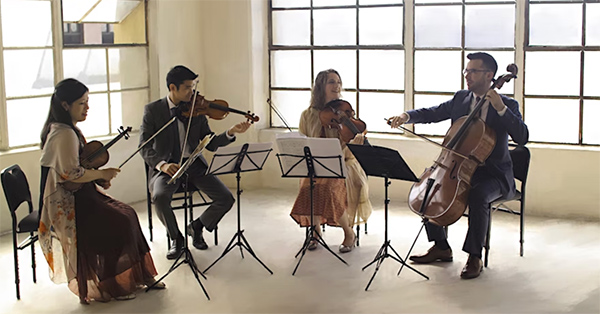
Momenta String Quartet - Beatrice Diener Ensemble-in-Residence at Stern College - In-person Event
The Momenta String Quartet, Beatrice Diener Ensemble-in-Residence at Stern College for Women (Yeshiva University), performs the work of Jewish composers of the 20th and 21st centuries. With music by Mauricio Kagel, Erwin Schulhoff and a world premiere for flute and string sextet by Yeshiva University faculty composer David Glaser.
Featuring guest flutist Anthony Trionfo.
Ticket Info: General: $10; Students/seniors: $5; YUM/CJH members; YU faculty/staff/students with ID: free
Presented by:

concert
lecture
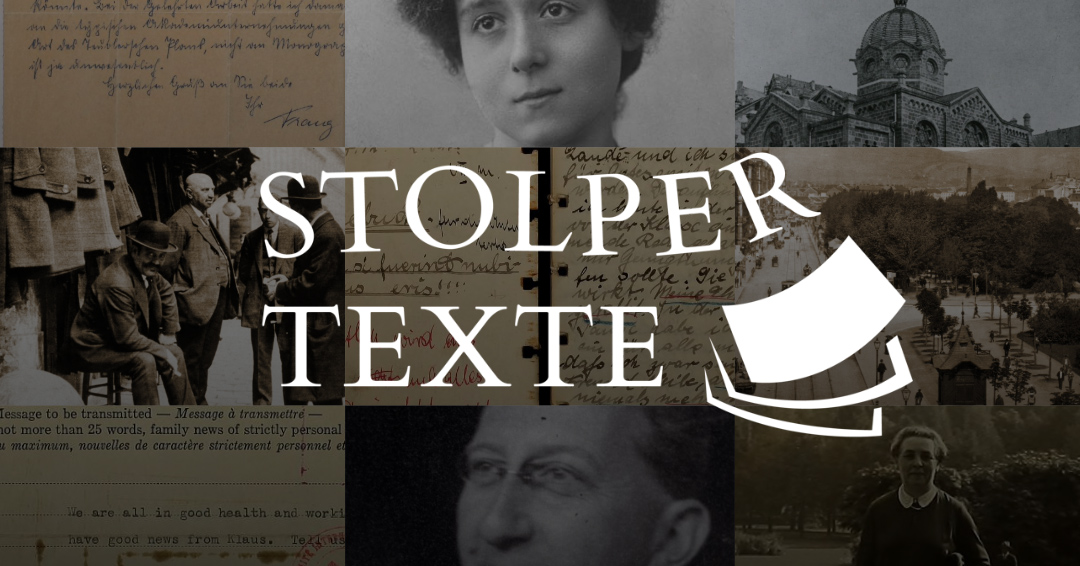
Stolpertexte: Archives, Literature, and Memory - In-person Event
The LBI Archives hold tens of thousands of family collections that include diaries, memoirs, letters, and photographs that document the everyday lives of German-speaking Jews. In LBI's newest project, German-language writers have been invited to engage with these collections and the people described in them in short literary texts called Stolpertexte. Like their namesake brass memorial plaques, these texts interrupt our daily routines and remind us in the here and now on the lives and hopes of people from whom Nazi terror took everything away.
In addition to some of Germany's leading authors, a new generation of literary talent is also engaged in the project. LBI invites you to meet students from the German Literature Institute in Leipzig, Germany’s premiere creative-writing program, who will read from their own Stolpertexte and a short documentary theater piece. German writer Max Czollek, who holds the Spring 2024 DAAD Chair in Contemporary Poetics at NYU, will discuss literary memory culture in Germany and engage in a discussion with the students. Featuring Nadja Etinski, Amalie Mbianda Njiki, Tara Meister, Konstantin Schmidtbauer, Mücahit Türk, Jonë Zhitia, Hannah Beckmann.
Cosponsored by Deutsches Haus at NYU.
Ticket Info: Free; reservations required
Presented by:

lecture
film screening and discussion
Drew Friedman: Vermeer of the Borscht Belt - In-person Event
For years, artist Drew Friedman has chronicled a strange, alternate universe populated by forgotten Hollywood stars, old Jewish comedians and liver-spotted elevator operators. Drew Friedman: Vermeer of the Borscht Belt is an in-depth documentary tracing artist Friedman's evolution from underground comics to the cover of The New Yorker. The film, directed by Kevin Dougherty, features interviews with Friedman's friends and colleagues, including Gilbert Gottfried, Patton Oswalt, Richard Kind, Mike Judge, Merrill Markoe and many others.
Join YIVO for a screening of this new documentary followed by a panel discussion with Friedman, his wife Kathy Bidus, Dougherty, David Letterman band leader Paul Shaffer, actors Craig Bierko and Richard Kind, filmmaker Owen Kline, and comedy writers Tom Leopold and Frank Santopadre, led by YIVO Senior Academic Advisor & Director of Exhibitions Eddy Portnoy.
This program is supported, in part, by public funds from the New York City Department of Cultural Affairs, in partnership with the City Council.
Ticket Info: $10; YIVO members: $8
Presented by:

film screening and discussion
symposium
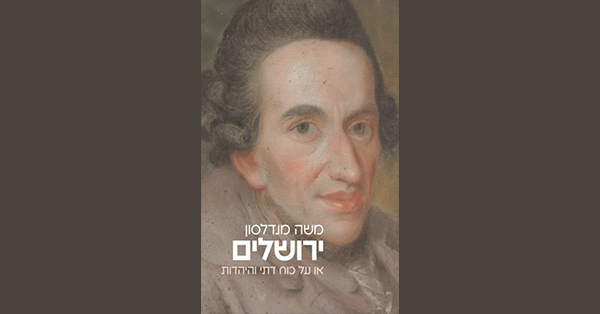
Moses Mendelssohn Returns to Jerusalem - In-person Event
This symposium marks the first Hebrew translation of Moses Mendelssohn's Jerusalem in seventy-five years.
Moses Mendelssohn (1729–1786) wrote Jerusalem with his back to the wall. His Jewish identity and liberal outlook were challenged in the public sphere of the German Enlightenment, and this was his last opportunity to write a book that would perpetuate the essence of his faith and his values as the first modern Jewish humanist. The work, which moves between apologetics for his faith and political and religious philosophy was primarily a daring essay that categorically denied the rule of religion and advocated tolerance and freedom of thought. Neither the state nor the church had the right to govern a person’s conscience; and, no less far-reaching and pioneering: these values are consistent with Judaism. In the summer of 1783, seven years after the resounding voice of protest against tyranny and in favor of liberty and equality was heard in the American Declaration of Independence, less than six years before the French Revolution, but only two years and two months before his death, the man who was called the “German Socrates,” a highly prominent figure in the Enlightenment, published one of the fundamental documents in Jewish modernity.
Featuring a Talk By:
Dr. Shmuel Feiner, Professor Emeritus of Modern Jewish History, Bar-Ilan University; Editor of the new translation of Jerusalem.
Moderated By:
Professor Michah Gottlieb, NYU
With Responses By:
Professor Shira Billet, Jewish Theological Seminary
Professor Leah Hochman, Hebrew Union College
Jonathan Green, NYU
With Concluding Reflections By:
Professor Jacob J. Schacter, Yeshiva University
Organized by Skirball Department of Hebrew and Judaic Studies, New York University and LBI, co-sponsored by Bernard Revel Graduate School of Jewish Studies, Center for Jewish History, Hebrew Union College – Jewish Institute of Religion, and JTS Hendel Center for Ethics and Justice.
Ticket Info: Free; reservations required
Presented by:

symposium
discussion
Why Spinoza Matters Now: Truth and Freedom in America Today - In-person Event
Join us for a lively and timely discussion celebrating the launch of Ian Buruma’s new book, Spinoza: Freedom’s Messiah. Buruma will be joined on the panel by Steven Nadler, Rebecca Newberger Goldstein, & Clémence Boulouque
350 years after his death, the philosophy of Baruch Spinoza remains vitally relevant — especially in this period of deep political division and with the threat to liberal democracy not only in Europe and elsewhere, but right here at home. Spinoza was the most open and important proponent of democracy, toleration, politics free from religious sectarian interference, and freedom of expression in the early modern period. He was also “cancelled” (Herem) by Amsterdam’s Jewish community.
See this New Yorker review, “Baruch Spinoza and the Art of Thinking in Dangerous Times,” as well as Buruma’s latest, “The 17th-Century Heretic We Could Really Use Now,” in The New York Times.
Ticket Info: $15-$500
Presented by:

discussion
concert
In a Dark Blue Night - In-person Event
Celebrate the release of in a dark blue night, the follow-up to Alex Weiser’s Pulitzer Prize nominated debut album and all the days were purple.
A love letter to New York City, in a dark blue nightfeatures acclaimed singer Annie Rosen with a seven-piece chamber ensemble and comprises two song cycles that explore Jewish immigrant New York City. The first cycle, in a dark blue night, features five settings of Yiddish poetry written by newly arrived immigrants in the late 1800s and early 1900s. Coney Island Days follows and sets to music words from an oral history interview with Weiser’s grandmother about childhood in the bilingual immigrant world of Coney Island in the 1930s and ‘40s.
Join YIVO to celebrate the release of this album with performances, discussion, and a post-concert reception. The album, which will be released by Cantaloupe Music on Friday, March 29, 2024, will be available for pre-release purchase and signing after the concert.
The Sidney Krum Young Artists Concert Series is made possible by a generous gift from the Estate of Sidney Krum.
This program is supported, in part, by public funds from the New York City Department of Cultural Affairs, in partnership with the City Council.
Ticket Info: Free; registration is required
Presented by:

concert
lecture
Yiddish and Hebrew Little Magazines in the Weimar Republic - Live on Zoom
In this talk, Barbara Mann will discuss the "little magazine," a staple of modernist Jewish culture which flourished in the Weimar Republic. The little magazine is a distinctively portable and collaborative genre, an appropriate venue for the migrant, cosmopolitan mix of Berlin’s interwar Jewish population. Each issue blended poetry, manifestos and visual arts to create a unique form of cultural expression. Mann will explore the publishing history of Yiddish and Hebrew little magazines, their content, physical features, and readership.
About the Speaker
Barbara E. Mann is the inaugural holder of the Stephen H. Hoffman Professorship in Modern Hebrew Language and Literature at Case Western Reserve University. She is the author of A Place in History: Modernism, Tel Aviv and the Creation of Jewish Urban Space (Stanford, 2006) and Space and Place in Jewish Studies (Rutgers, 2012).
Ticket Info: Free; registration is required.
Presented by:

lecture
book club

LBI Book Club: Never Again Will I Visit Auschwitz - Live on Zoom
Ari Richter is a New York-based visual artist and comics creator, born in Tampa, FL in 1983. He received a fully public education from grade school to grad school, and is currently a Professor of Fine Arts at LaGuardia Community College in The City University of New York. Hi debut book, Never Again Will I Visit Auschwitz: A Graphic Family Memoir of Trauma & Inheritance is out now from Fantagraphics Books.
Richter has received fellowships from the Mellon Foundation/American Council of Learned Societies, and the Memorial Foundation for Jewish Culture, multiple project grants from the CUNY Research Foundation, and residencies from the Vermont Studio Center, the Woodward Residency and the University of Texas at Dallas. His drawings, sculptures, videos and performances have been presented at The Skirball Cultural Center, The National Museum of American Jewish History, The Tampa Museum of Art, The Spartanburg Art Museum, The Weatherspoon Art Museum, The Bruce High Quality Foundation University, Flux Factory, CentralTrak, Athens Institute for Contemporary Art, Nexus Foundation for Today's Art, and Celebrate Brooklyn! festival. His graphic work has been featured in Hyperallergic and Tablet Magazine.
Ticket Info: Free; registration required
Presented by:

book club
book talk
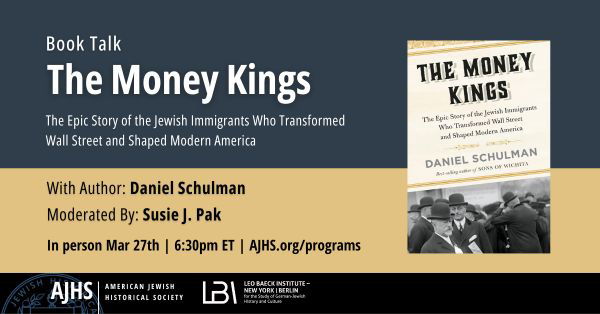
The Money Kings: The Epic Story of the Jewish Immigrants Who Transformed Wall Street and Shaped Modern America - In-person Event
Join AJHS and LBI for a discussion with The Money Kings author Daniel Schulman and Susie J. Pak author of Gentlemen Bankers.
The Money Kings is the incredible saga of the German-Jewish immigrants—with now familiar names like Goldman and Sachs, Kuhn and Loeb, Warburg and Schiff, Lehman and Seligman—who profoundly influenced the rise of modern finance (and so much more), from the New York Times best-selling author of Sons of Wichita.
Joseph Seligman arrived in the United States in 1837, with the equivalent of $100 sewn into the lining of his pants. Then came the Lehman brothers, who would open a general store in Montgomery, Alabama. Not far behind were Solomon Loeb and Marcus Goldman, among the “Forty-Eighters” fleeing a Germany that had relegated Jews to an underclass. These industrious immigrants would soon go from peddling trinkets and buying up shopkeepers’ IOUs to forming what would become some of the largest investment banks in the world—Goldman Sachs, Kuhn Loeb, Lehman Brothers, J. & W. Seligman & Co. They would clash and collaborate with J. P. Morgan, E. H. Harriman, Jay Gould, and other famed tycoons of the era. And their firms would help to transform the United States from a debtor nation into a financial superpower, capitalizing American industry and underwriting some of the twentieth century’s quintessential companies, like General Motors, Macy’s, and Sears. Along the way, they would shape the destiny not just of American finance but of the millions of Eastern European Jews who spilled off steamships in New York Harbor in the early 1900s, including Daniel Schulman’s paternal grandparents.
Ticket Info: $10 General Admission or $40 Admission + Copy of The Money Kings ($5 discount)
Presented by:


book talk
discussion
Colonialism, Racism, and the Arab Israeli War of 1948 - Live on Zoom
In 1947, a two-thirds majority of the members of the United Nations, an organization which took its name from the term for the Allies fighting against Nazi Germany, voted to establish an Arab, and a Jewish state on what had been British Mandate Palestine. Supporters of the Jewish state, and the Zionists themselves, viewed that project as an anti-colonial, anti-racist, and as a continuation of the anti-fascist passions of World War II. The Arab opponents, at the time and since, denounced the establishment of Israel as precisely the opposite, that is, an example of colonialism, racism, and in Soviet era propaganda even a form of Nazism. Historian Benny Morris has written extensively about the causes and nature of the war of 1948, and the controversies that have surrounded it ever since. Historian Jeffrey Herf has examined the international politics surrounding Israel’s establishment. In conversation, Morris and Herf will explore these issues and the way they influence contemporary discussions.
Buy the books from this series.
This program is supported, in part, by public funds from the New York City Department of Cultural Affairs, in partnership with the City Council.
Ticket Info: Free; registration is required.
Presented by:

discussion
conversation
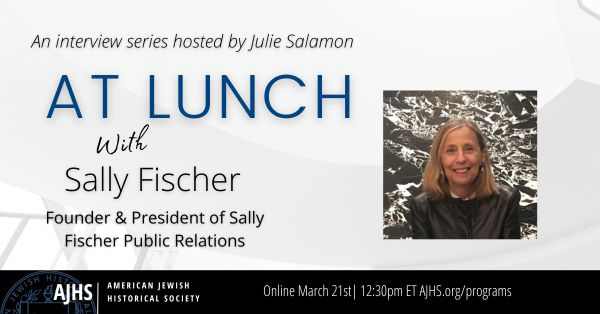
At Lunch with Sally Fischer – Live on Zoom
Julie Salamon (New York Times best-selling author) sits down with Sally Fischer, Founder and President of Sally Fischer Public Relations based in New York City. Sally was born and raised in New York City, and as a teenager Fischer moved to Florence, Italy where she completed High School and University studies, living in Italy for ten years. Upon moving back to the United States Fischer knew that staying connected to Italy was her life-long goal and has dedicated her career to promoting the Best of Italy: the finest films, the food and wine, the regions, and cities, even the Winter Olympics of 2006 based in Torino. Fischer’s goal has been to create a cultural bridge between Italy and the United States and to promote all that Italy has to offer. In 2018, Sally Fischer was awarded the distinguished Italian decoration: Cavaliere dell’Ordine della Stella d’Italia by the President of the Republic of Italy, the Honorable Sergio Mattarella. Fischer resides in Manhattan with her husband and son.
Ticket Info: Free; register at ajhs.org/events/at-lunch-with-sally-fischer/ for a Zoom link
Presented by:

conversation
celebration
Is Anything Okay? The History of Jews and Comedy in America - In-person and Live on Zoom
Celebrate the launch of Is Anything Okay? The History of Jews and Comedy in America, our newest online course about Jewish comedy, which delves into the history of Jewish comedy and its development in the United States. Join us for a panel discussion with lead scholar Eddy Portnoy and special guests Judy Gold and Alan Zweibel as they consider the diverse world of Jewish comedy past, present, and future.
This program is supported, in part, by public funds from the New York City Department of Cultural Affairs, in partnership with the City Council.
Ticket Info: Free, registration is required.
Presented by:

celebration
concert
An Original Purimspiel - In-person Event
In partnership with the American Society of Jewish Music and the YIVO Institute for Jewish Research, this event will include musicians from the Mannes School of Music and the School of Jazz and Contemporary Music and performers from The School of Drama. The “Purim Spiel" — a dramatic and festive telling of the story of Esther, Mordechai, Haman, and King Ahasuerus will be punctuated by thrilling performances of klezmer music. Costumes are not required but are certainly welcome!
This program is supported, in part, by public funds from the New York City Department of Cultural Affairs, in partnership with the City Council.
Ticket Info: $18; YIVO members, ASJM members, CJH members: $12; Seniors & students: $9
Presented by:

concert
discussion
Reimagining the Israeli-Palestinian Conflict - Live on Zoom
As the war in Gaza continues, a debate is unfolding over the future governance and status of Gaza. Join YIVO for a discussion with Marwan Muasher, Vice President for Studies at the Carnegie Endowment for International Peace and former Jordanian foreign minister and deputy prime minister, about Muasher's views on “the day after” in Gaza. In this conversation, led by former US Ambassador to Israel Daniel C. Kurtzer, Muasher will lay out his perspective on past failed peace processes, his own recently proposed framework for a peace process going forward, and his assessment of the likely alternatives to a durable peace.
This program is supported, in part, by public funds from the New York City Department of Cultural Affairs, in partnership with the City Council.
Ticket Info: Free; registration is required.
Presented by:

discussion
concert
Jewish Songs and Dances for Piano: Joel Engel’s “Five Piano Pieces” Op. 19 (1923) - Live on YouTube
Join us for a performance of Joel Engel’s Five Piano Pieces (1923): a collection of Jewish folksongs, dances, and Hasidic nigunim in virtuosic piano arrangements. Engel’s earlier Jewish Folksongsvolumes I, II, and II (featured by YIVO in November 2020 and June 2021) were the first published classical compositions to feature Yiddish folksongs. His use of Yiddish folk music in his compositions proved to be influential and inspired the Society for Jewish Folk Music and the composers affiliated with it to create a vast oeuvre of similar work.
This collection of five pieces will be performed by pianist Thomas Kotcheff.
The Sidney Krum Young Artists Concert Series is made possible by a generous gift from the Estate of Sidney Krum.
This program is supported, in part, by public funds from the New York City Department of Cultural Affairs, in partnership with the City Council.
Ticket Info: Free; registration is required.
Presented by:

concert
lecture
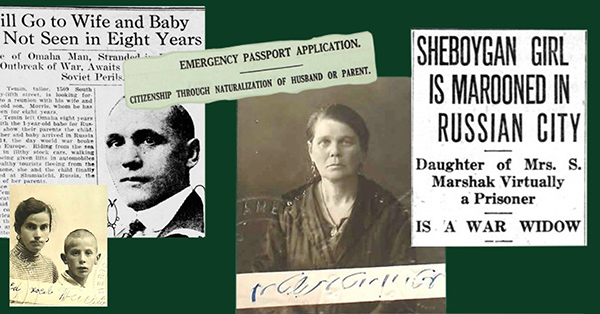
Stuck: Immigration, Naturalization and Repatriation in the WWI Era – In-person lecture & live on Zoom
Stolen passports, pleading letters, and fake visas all appear in the US State Department's Records of Foreign Service Posts. These documents tell harrowing tales of families separated by WWI, and the incredible lengths people went to in order to leave war-torn Europe and reunite with relatives in America.
In the years before WWI, husbands immigrated to the USA, intending to send for their family after getting settled, but the outbreak of war turned temporary situations into lengthy separations. Other cases illustrate a short visit to see family in the Old Country morphing into a years-long ordeal.
Both during and particularly after the war, the emergence of new European countries meant new rules and regulations controlling movement and emigration. Simultaneously, panic over an assumed mass influx of war refugees spurred the US Congress to pass restrictive laws that imposed quotas on would-be immigrants.
This presentation highlights some of the incredible experiences families endured during this era and explains the records used to recount their stories.
About the Speaker
Renée Carl is a professional genealogist and advocate for historic preservation and records access. She previously worked in public policy, until realizing that researching dead people is easier than working with Congress. Her background in government and cultural anthropology brings a unique perspective to locating and interpreting records. Renée is a member of the Association of Professional Genealogists, the Jewish Genealogy Society of Greater Washington, and the JewishGen Latvia Research Group. She also serves as a member of the Association of Professional Genealogists Advocacy Committee and as policy advisor to the RecordsNotRevenue.com campaign. She worked as a researcher for Season 2 of PBS’ Genealogy Roadshow and served as lead researcher for Season 3. She regularly researches at the National Archives, Library of Congress, and U.S. Holocaust Memorial Museum. You can find Renée online at EasternEuropeanMutt.com.
Co-sponsored with the Jewish Genealogical Society, Inc. (JGSNY) and Friends of Linda Cantor Z"L
Ticket Info:
In person: $5 general admission; free for JGSNY and CJH members; click here to register.
If you’re planning to attend this program in person, we strongly encourage you to register in advance. Space permitting, we will admit those who arrive without a ticket on a first-come, first-serve basis at our discretion.
Zoom: Pay what you wish; click here to register.
Presented by:


lecture
lecture and concert
Wild Burning Rage and Song: Replies to Scottsboro - In-person Event
The Scottsboro Trials stand as one of the most renowned miscarriages of justice in the history of American jurisprudence. Beginning in 1931 with a false accusation of rape against nine Black teenagers, the case went on to invigorate a nascent Civil Rights movement, earn the international support of the Communist Party, and establish itself as a watchword among various strands of the American Left. It inspired reaction from the contemporary world of arts and letters as well, most famously by poets Langston Hughes and Richard Wright and novelist Harper Lee, who adapted its events in To Kill A Mockingbird.
The international, politically-oriented Yiddish intelligentsia of the thirties was no less galvanized, producing a body of creative response that passionately took up the themes of the trial, juxtaposing its American injustices with a diversity of images, tropes and language imbued with their own distinct histories of oppression.
Wild Burning Rage and Song: Replies to Scottsborobrings this world alive as a concert-lecture featuring Professor Amelia Glaser, author of Songs in Dark Times: Yiddish Poetry of Struggle from Scottsboro to Palestine (Harvard University Press), composer/vocalists Heather Klein and Anthony Russell, and composer/pianist Uri Schreter, performing their new settings of Yiddish and English poetry written in response to the pervasive climate of race prejudice that gave birth to the Scottsboro trials—and other injustices to come.
This program is supported, in part, by public funds from the New York City Department of Cultural Affairs, in partnership with the City Council.
Ticket Info: Free; registration is required.
Presented by:

lecture and concert
lecture
Hasidism in Poland on the Eve of the Holocaust - In-person Event & Live on Zoom
The Light of Learning tells the story of an unexpected Hasidic revival in Poland on the eve of the Holocaust. In the aftermath of World War I, as secularism spread, Hasidic leaders rapidly reinvented themselves as educators devoted to rescuing the youth by means of world-renowned yeshivas, Bais Yaakov schools for girls and women, and eventually underground yeshiva bunkers during the Holocaust. The Light of Learning belies notions of late Hasidic decadence and decline and transforms our understanding of Polish Jewry during its final hour.
Join YIVO for a presentation on this book with author Glenn Dynner along with performances of Hasidic nigunim by Lorin Sklamberg of the Klezmatics.
This program is supported, in part, by public funds from the New York City Department of Cultural Affairs, in partnership with the City Council.
Ticket Info: Free; registration is required.
Presented by:

lecture
book talk
Jewish Reading Habits in the Russian Empire - Live on Zoom
As significant economic, social, political, and cultural transformations swept the Jewish population of Tsarist Russia and Congress Poland between 1860 and 1914, the Yiddish language began to gain recognition as a central part of the Jewish cultural stage. Yiddish Transformed: Reading Habits in the Russian Empire, 1860-1914 examines the secular reading habits of East European Jews as the Jewish community began shifting to a modern society. Author Nathan Cohen explores Jewish reading practices alongside the rise of Yiddish by delving into publishing policies of Yiddish books and newspapers, popular literary genres of the time, the development of Jewish public libraries, as well as personal reflections of reading experiences.
Join YIVO for a discussion with Cohen about this book, led by YIVO’s Senior Academic Advisor and Director of Exhibitions Eddy Portnoy.
This program is supported, in part, by public funds from the New York City Department of Cultural Affairs, in partnership with the City Council.
Ticket Info: Free; registration is required.
Presented by:

book talk
symposium
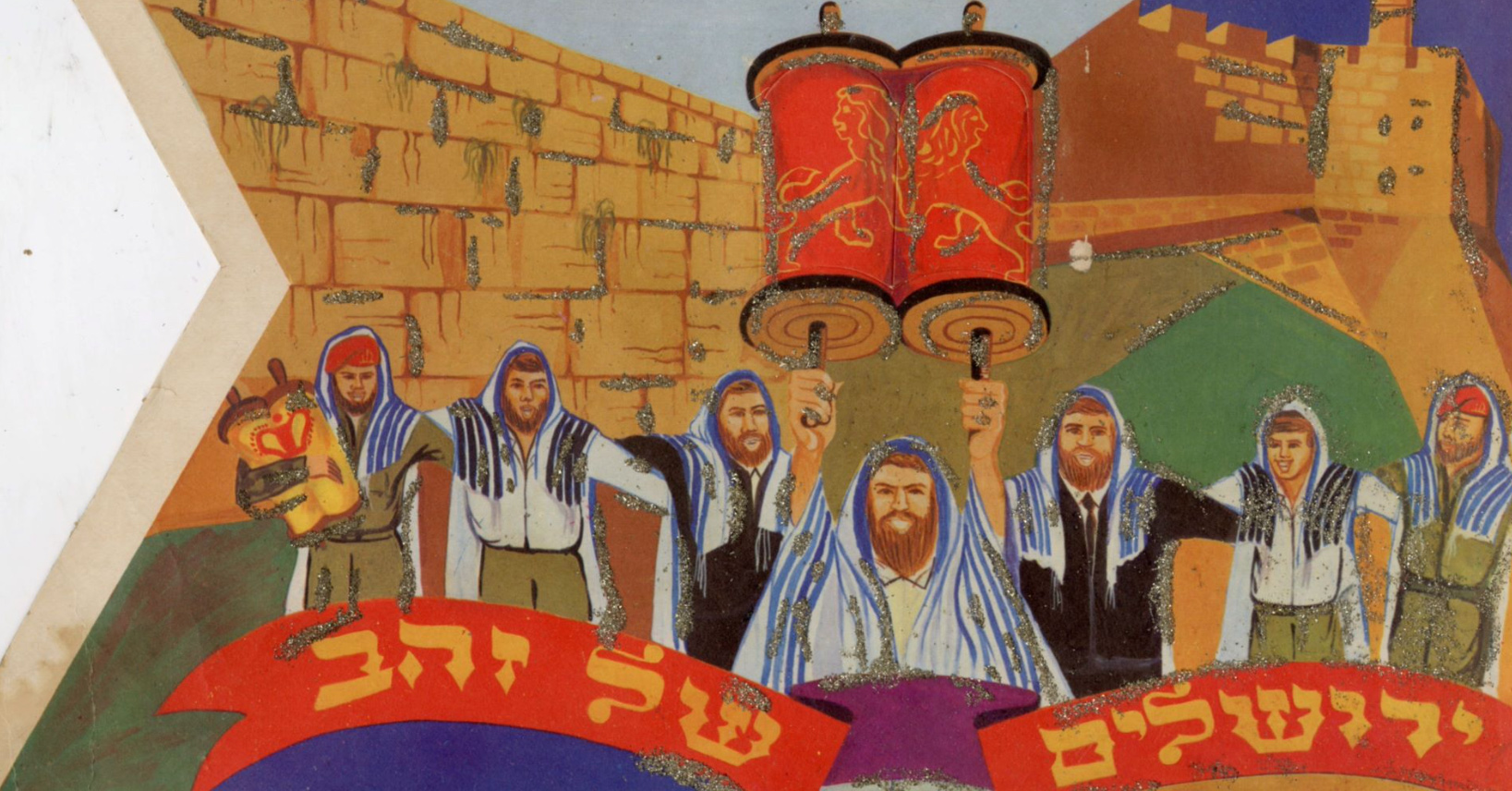
War and Memory in Jewish Material Culture - In-person Event
Professor Shalom Sabar
The Hebrew University
“Souvenirs of the Six-Day War as Conveyors of Socio-Historical Messages from the Past to Modern Israel”
Rabbi Joseph Topek
Stony Brook University
“Beyond the Civil War: Memory and Iconography in Early American Jewish Veteran Culture”
Co-sponsored by the Harry G. Friedman Society and Yeshiva University Museum
Ticket Info: $25 including brunch; register here
Presented by:

symposium
book talk
Music, Gender, and Jewish Orthodoxy in North America - In-person Event & Live on Zoom
Join YIVO for a conversation with Jeremiah Lockwood and Jessica Roda, led by Jonathan Boyarin in celebration of Lockwood and Roda’s new books Golden Ages: Hasidic Singers and Cantorial Revival in the Digital Era (Lockwood, UCPress) and For Women and Girls Only: Reshaping Jewish Orthodoxy Through the Arts in the Digital Age (Roda, NYU Press). Through ethnography and media analysis, Lockwood and Roda offer unique insights into the vibrant masculine and feminine art worlds of Hasidic and Litvish-Yeshivish Jews today. They lead us to rethink the power of the arts to understand agency, privacy and publicity in religious settings.
The book launch will conclude with two performances featuring Cantor Yoel Kohn and actress Malky Goldman, artists who participated with the authors in their research projects.
This program is supported, in part, by public funds from the New York City Department of Cultural Affairs, in partnership with the City Council.
Ticket Info: Free; registration is required.
Presented by:

book talk
panel discussion
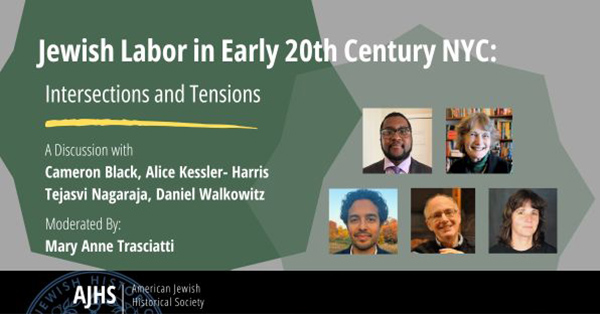
Jewish Labor in Early 20th Century NYC: Intersections and Tensions – In-person Event
Join AJHS on March 5th for a discussion on organized and informal Jewish labor movements in early 20th century New York City. This conversation hopes to interrogate how factors such as gender, class, race, religion, and religious observance both fostered these movements and also presented complex challenges to their goals, as well as expanding upon the intersections of the Jewish community in New York at this time with other ethnic and cultural populations. Panelists include Cameron Black, Alice Kessler-Harris, Tejasvi Nagaraja & Daniel Walkowitz with Mary Anne Trasciatti as moderator.
Cameron Black (Panelist)- Assistant Professor of Labor Studies at the CUNY School of Labor and Urban Studies.
Alice Kessler-Harris (Panelist) R. Gordon Hoxie Professor Emerita of American History in honor of Dwight D. Eisenhower, and Professor Emerita in the Institute for Research on Women and Gender both at Columbia University.
Tejasvi Nagaraja (Panelist) Assistant Professor of Labor History, Global Labor and Work at Cornell University’s School of Industrial and Labor Relations.
Daniel Walkowitz (Panelist) Professor Emeritus of Social and Cultural Analysis and Professor Emeritus of History at New York University.
Mary Anne Trasciatti (Moderator) Director of Hofstra’s Labor Studies Program and Professor of Rhetoric and Public Advocacy.
Ticket Info: $10 General Admission, $5 Student Tickets
Presented by:

panel discussion
gallery tour
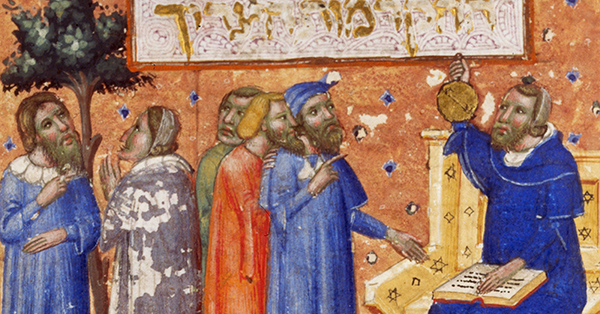
Final Day for Exhibition Tours of The Golden Path: Maimonides Across Eight Centuries - In-person Event
We have arranged a day of special, free in-person tours:
11:00 – 11:30 am: Family Tour (for parents with children 7 and up)
Noon – 1:00 pm: Director’s Tour
1:00 – 1:30 pm: Highlight Tour
2:00– 2:30 pm: Highlight Tour
2:30 – 3:30 pm: Collector’s Tour with Robert Hartman
3:30 – 4:30 pm: Curator’s Tour with David Sclar
4:30 – 5:30 pm: Collector’s Tour with Robert Hartman
Space is limited, so reservations are recommended. When you RSVP at RSVP@yum.cjh.org, please indicate the date and time of your requested tour.
Ticket Info: Free admission but reservations are required at RSVP@yum.cjh.org, please indicate the date and time of your requested tour.
Presented by:

gallery tour
book talk
Firebird - Live on Zoom
Zuzanna Ginczanka’s last poem, “Non omnis moriar...” (“Not all of me shall die”), written shortly before her execution by the Nazis in the last months of World War II, is one of the most famous and unsettling texts in modern East European literature. A fiercely ironic last will and testament that names the person who betrayed her to the occupying authorities as a Jew, it exposes the hypocrisy at the heart of Polish nationalist myths. Firebird brings together many of Ginczanka’s uncollected poems and presents On Centaurs, her sole published book, in its entirety.
Join YIVO for a discussion of this book with translator Alissa Valles, led by YIVO Executive Director Jonathan Brent.
This program is supported, in part, by public funds from the New York City Department of Cultural Affairs, in partnership with the City Council.
Ticket Info: Free; registration is required.
Presented by:

book talk
book club
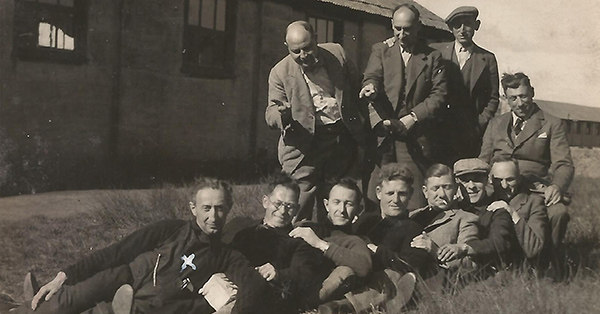
LBI Book Club: Four Thousand Lives: The Rescue of Jewish Men to Britain, 1939 - Live on Zoom
In November 1938 about 30,000 German Jewish men were taken to concentration camps where they were subjected to torture, starvation and arbitrary death. In Four Thousand Lives, Clare Ungerson tells the remarkable story of how the grandees of Anglo-Jewry persuaded the British Government to allow them to establish a transit camp in Sandwich, East Kent, to which up to 4,000 men could be brought while they waited for permanent settlement overseas. The whole rescue was funded by the British Jewish community, with help from American Jewry. Most of the men had to leave their families behind. Would they get them out in time? And how would the people of Sandwich – a town the same size as the camp – react to so many German speaking Jewish foreigners? There was a well-organized branch of the British Union of Fascists in Sandwich. Lady Pearson, the BUF candidate for Canterbury, was President of the Sandwich Chamber of Commerce and Captain Gordon Canning, a prominent Fascist and close friend of Oswald Mosley, lived there and he and his grand friends used to meet there to play golf. This background adds to the drama of the race against time to save lives. Four Thousand Lives is not just a story of salvation, but also a revealing account of how a small English community reacted to the arrival of so many German Jews in their midst. (Description: Amazon).
About the Author and Guest
Professor Emerita Clare Ungerson was born in London to a German Jewish mother (originally from Stuttgart) and a Jewish father who had been born in London to parents who had come from near Lublin (then in Russia, now in Poland). Her maternal grandparents also managed to get out of Germany just in time at the end of June 1939. She was brought up in a completely secular household. Clare read Philosophy, Politics and Economics at the University of Oxford and did a Masters in Social Policy at the London School of Economics. She then became an academic in the field of Social Policy, ending up as Professor of Social Policy at the University of Southampton. On retirement she moved to Sandwich in East Kent. Her book, 'Four Thousand Lives', was a retirement project for which she fortunately found a commercial publisher. The research for the book was mainly conducted in London and Jerusalem. She will be celebrating her 80th birthday in early February.
Ticket Info: Free; registration required
Presented by:

book club
lecture
East European Jewish Women in Their Quest for a Dowry in the First Half of the Twentieth Century - Live on Zoom
Late nineteenth-century East European Jewry witnessed how various modernizing forces affected the most intimate spheres of Jewish life – family, sexuality, and household – and reconfigured women’s roles. Scholars have conventionally associated modernization with a shift from earlier and arranged unions toward later romantic marriages. Indeed, Jewish women increasingly attended secular high schools and universities, engaged in political, social, and cultural endeavors, took up gainful employment, and migrated. Yet, the economic reality dictated the marriage market for the masses of Jewish women from the working poor, turning marriage into a financial tool to improve woman’s fate.
This talk by Aleksandra Jakubczak will illuminate the link between the changing economy and Jewish courtship and marriage by situating it within the broader context of Jewish women’s responses to the promise of modernization on the one hand and the economic challenges accompanying it on the other. The increasing economic hardship faced by East European Jews at the turn of the century pushed Jewish women into the labor market and migratory routes. However, for some women, gainful employment and mobility did not necessarily mean emancipation from the traditional Jewish structures that had shaped their lives. Drawing on Yiddish, Hebrew, and Polish newspapers, brochures, court cases, and police reports, this lecture will show how East European Jewish women used their gainful employment, including in the sex industry, and migration to strike a good marriage deal and not to live independent lives.
Ticket Info: Free; registration is required.
Presented by:

lecture
gallery tour

Museum Director's Tour of The Golden Path: Maimonides Across Eight Centuries - In-person Event
Join YU Museum Director Gabriel Goldstein for a guided tour of The Golden Path: Maimonides Across Eight Centuries, illuminating the life and impact of the multifaceted luminary and great Jewish sage across continents and cultures through rare manuscripts and books. Exhibition highlights include manuscripts in Maimonides’s own handwriting, a carved 11th century door to the Torah ark from Cairo’s Ben Ezra Synagogue, and beautifully illuminated medieval manuscripts.
Ticket Info: Free admission but reservations are required at RSVP@yum.cjh.org. Please include date of requested tour. Space is limited.
Presented by:

gallery tour
gallery tour

Museum Director's Tour of The Golden Path: Maimonides Across Eight Centuries - In-person Event
Join YU Museum Director Gabriel Goldstein for a guided tour of The Golden Path: Maimonides Across Eight Centuries, illuminating the life and impact of the multifaceted luminary and great Jewish sage across continents and cultures through rare manuscripts and books. Exhibition highlights include manuscripts in Maimonides’s own handwriting, a carved 11th century door to the Torah ark from Cairo’s Ben Ezra Synagogue, and beautifully illuminated medieval manuscripts.
Ticket Info: Free admission but reservations are required at RSVP@yum.cjh.org. Please include date of requested tour. Space is limited.
Presented by:

gallery tour
discussion
Hamas and the Origins of Islamic Antisemitism - Live on Zoom
During and after World War II and the Holocaust, the collaboration of leading Palestinian nationalists with the Nazi regime was a major issue in the press and politics, especially liberal politics, in New York and Washington. In the past several decades, historians in Israel, Germany and the United States have examined the details and nature of this collaboration and of the ideas of Islamists that led them to lend support to Hitler. The ideology of Hamas, famously expressed in its Charter of 1988, echoes themes of Jew-hatred in the key Islamist texts written eighty years earlier. In this conversation historians Matthias Küntzel and Jeffrey Herf will discuss the origins of Hamas, the history of Islamic antisemitism, and its causal significance in the war of 1947-1948.
Buy the books from this series.
This program is supported, in part, by public funds from the New York City Department of Cultural Affairs, in partnership with the City Council.
Ticket Info: Free; registration is required.
Presented by:

discussion
gallery tour

Exhibition Tour of The Golden Path: Maimonides Across Eight Centuries with Ilana Benson, YU Museum Director of Museum Education - In-person Event
Join Ilana Benson, YU Museum Director of Museum Education, for a guided tour of The Golden Path: Maimonides Across Eight Centuries, illuminating the life and impact of the multifaceted luminary and great Jewish sage across continents and cultures through rare manuscripts and books. Exhibition highlights include manuscripts in Maimonides’s own handwriting, a carved 11th century door to the Torah ark from Cairo’s Ben Ezra Synagogue, and beautifully illuminated medieval manuscripts.
Ticket Info: Free admission, reservations are required at RSVP@yum.cjh.org. Please include date of requested tour. Space is limited.
Presented by:

gallery tour
discussion
2024 Summer Program Information Session - Advanced Levels - Live on Zoom
Are you thinking of returning to the Summer Program to continue your advanced studies? Join Summer Program faculty and staff for a brief information session about YIVO’s advanced levels. Open to graduates of YIVO’s level Daled and Hey (levels four and five) and those with comparable proficiency, this session will cover the structure of YIVO’s advanced levels, the online and in-person formats, admissions process, and more, with time for questions from prospective Summer Program participants.
The session will be conducted in Yiddish and is entirely optional (prospective participants are not required to attend).
Learn more about the Uriel Weinreich Summer Program in Yiddish Language, Literature, and Culture.
Ticket Info: Free; registration is required.
Presented by:

discussion
lecture
The Reality of Myth for Yiddish Writers in Weimar Germany - Live on Zoom
Berlin in the Weimar Republic (1918-1933) — though peripheral to the centers of Yiddish culture in the United States, Poland, and the Soviet Union — offered financial windfalls and business opportunities for migrants with foreign currency, particularly for writers with contact to the American Yiddish press. Moreover, Germany, unlike Poland, maintained diplomatic and economic relations with the Soviet Union, which allowed writers sympathetic to the Bolshevik Revolution a safe haven.
The heyday of Yiddish culture in Berlin was relatively short-lived, dating from about 1921 until about 1926, after which the Soviet Union had achieved political stability and began to invest, at least for the next decade, in a wide series of Yiddish-language cultural institutions. Nevertheless, Berlin was an important way-station in the development of modern Yiddish culture and particularly a Yiddish avant-garde.
In historical terms, it is always necessary to distinguish between "myth" and "reality"; for Yiddish writers in interwar Berlin, however, what is fascinating is the degree to which myth and reality informed and interpenetrated one another. In this lecture, Marc Caplan will examine the historical significance and legendary allure of Weimar culture by considering three of its most significant Yiddish writers: Moyshe Kulbak, Dovid Bergelson, and Der Nister ("the hidden one," Pinkhes Kahanovitch).
About the Speaker
Marc Caplan is a native of Louisiana and a graduate of Yale University. In 2003 he earned his Ph.D. in comparative literature from New York University. Since then he has held professorial appointments at Indiana University, Johns Hopkins University, Yale, the University of Wroclaw (Poland), and Dartmouth College, as well as research fellowships at the University of Pennsylvania, Harvard University, the Universität Konstanz (Germany), the Center for Jewish History (New York), and the University of Michigan (Ann Arbor). In 2011 he published How Strange the Change: Language, Temporality, and Narrative Form in Peripheral Modernisms—a comparison of Yiddish and African literatures—with Stanford University Press. His second book, Yiddish Writers in Weimar Berlin: A Fugitive Modernism, was published by Indiana University Press in 2021. Currently he is a senior lecturer in Yiddish literature for the Heinrich-Heine University in Düsseldorf, Germany.
Ticket Info: Free; registration is required.
Presented by:

lecture
lecture
Maimonides and Medicine - In-person Event
Lectures by:
Dr. Jeremy Brown:
The Surprising Influence of Maimonides's Treatise on Poisons
Dr. Edward Reichman:
If the Rambam Were Alive Today: Contemporary Jewish Medical Ethics
Through the Eyes of Maimonides
Moderated by Dr. Erica Brown, Vice Provost for Values and Leadership, Director, Sacks-Herenstein Center, Yeshiva University
Co-sponsored by Yeshiva University Museum and Yeshiva University Medical Ethics Society
Guided tours of the exhibition The Golden Path: Maimonides Across Eight Centuries will be offered at 5:30 pm and 8:00 pm
Ticket Info: Free admission, reservations are required at RSVP@yum.cjh.org.
Presented by:

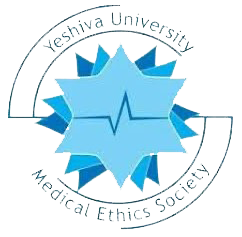
lecture
concert
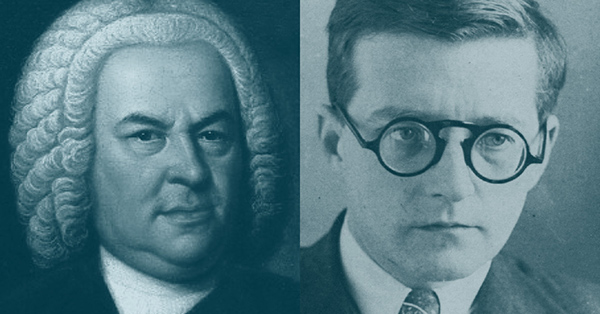
All About the Piano: Phoenix Chamber Ensemble and Guest Ellen Braslavsky Present a Concert for Two Pianos with Music by Bach, Shostakovich, Rossini & More – In-Person Event & Live on YouTube
Join Phoenix Chamber Ensemble pianists Vassa Shevel and Inessa Zaretsky and guest pianist Ellen Braslavsky. The program will include pieces by Bach, Guastavino, Shostakovich, Arensky, Franck, Poulenc, and Rossini.
Made possible by the Stravinsky Institute Foundation through the generous support of the Blavatnik Family Foundation.
Ticket Info:
In person: $15 general; $13 seniors, students; $12 members
YouTube livestream: Pay what you wish
Presented by:

concert
lecture
A Scrolls-Based Reading of Jewish Text, Voice and Exile - Live on Zoom
Sephardic Jewish history is shaped by cases of population transfer across and around the Mediterranean. When Jewish populations migrated, they carried with them traditions and customs, and objects that embodied those traditions, like the Torah scroll. Venerated and anthropomorphized, the Torah scroll commemorates the past as a remnant of communal life in one place and points to a future in which it transforms a new space into a synagogue. The scroll is referred to as the “tree of life,” a life-giving force that affirms a future for Jewish communities even as its text is rooted in the past. The text that is embodied and vocalized gives life to the community, just as voicing the text brings the scroll to life. This presentation considers the different ways that a Torah scroll gives voice to the experience of exile for communities on the move, considering the ways that Jewish communities use the scroll as a life-giving force in their chanting and veneration practices.
In this lecture, Ilana Webster-Kogen will consider ethnographic material from across North African ritual, particularly the ways that congregations in France adjust the customs of Morocco, Algeria and Tunisia as they navigate their communal voice. Considering Jewish migration from the perspective of the Torah scrolls that move with populations, Webster-Kogen proposes a reading of exile that centers mystical and postcolonial thought, Jewish-Muslim intimacies, and the power of giving voice to text.
This program is supported, in part, by public funds from the New York City Department of Cultural Affairs, in partnership with the City Council.
Ticket Info: Free; registration is required.
Presented by:

lecture
conversation
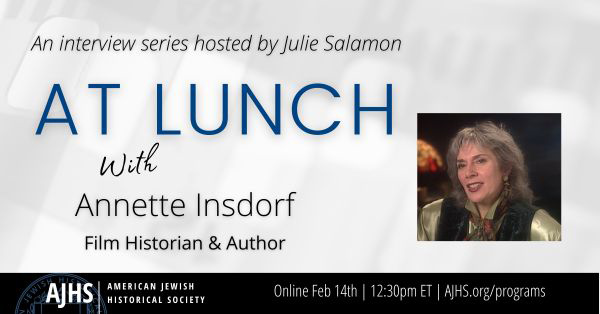
At Lunch with Annette Insdorf – Live on Zoom
Julie Salamon (author and journalist) sits down with film historian and author Annette Insdorf. Annette is Professor of Film at Columbia University’s School of the Arts, and Moderator of the popular “Reel Pieces” series at Manhattan’s 92Y, where she has interviewed 300 film celebrities. She is the author of the landmark study, Indelible Shadows: Film and the Holocaust (with a foreword by Elie Wiesel); Double Lives, Second Chances: The Cinema of Krzysztof Kieslowski; Francois Truffaut, a study of the French director’s work; Philip Kaufman, and Intimations: The Cinema of Wojciech Has. Her latest book is Cinematic Overtures: How to Read Opening Scenes, currently in its fourth printing.
Ticket Info: Free; register at ajhs.org/events/at-lunch-with-annette-insdorf/ for a Zoom link
Presented by:

conversation
gallery tour

Museum Director's Tour of The Golden Path: Maimonides Across Eight Centuries - In-person Event
Join YU Museum Director Gabriel Goldstein for a guided tour of The Golden Path: Maimonides Across Eight Centuries, illuminating the life and impact of the multifaceted luminary and great Jewish sage across continents and cultures through rare manuscripts and books. Exhibition highlights include manuscripts in Maimonides’s own handwriting, a carved 11th century door to the Torah ark from Cairo’s Ben Ezra Synagogue, and beautifully illuminated medieval manuscripts.
Ticket Info: Free admission but reservations are required at RSVP@yum.cjh.org. Please include date of requested tour. Space is limited.
Presented by:

gallery tour
book talk
Horizons Blossom, Borders Vanish: Anarchism and Yiddish Literature - Live on Zoom
Spanning the last two centuries, Horizons Blossom, Borders Vanish: Anarchism and Yiddish Literature by Anna Elena Torres combines archival research on the radical press and close readings of Yiddish poetry to offer an original literary study of the Jewish anarchist movement.
Torres examines Yiddish anarchist aesthetics from the nineteenth-century Russian proletarian immigrant poets through the modernist avant-gardes of Warsaw, Chicago, and London to contemporary antifascist composers. The book also traces Jewish anarchist strategies for negotiating surveillance, censorship, detention, and deportation, revealing the connection between Yiddish modernism and struggles for free speech, women’s bodily autonomy, and the transnational circulation of avant-garde literature.
Rather than focusing on narratives of assimilation, Torres intervenes in earlier models of Jewish literature by centering refugee critique of the border. Jewish deportees, immigrants, and refugees opposed citizenship as the primary guarantor of human rights. Instead, they cultivated stateless imaginations, elaborated through literature.
Join YIVO for a discussion with Torres about this new book, led by scholar Amelia Glaser.
This program is supported, in part, by public funds from the New York City Department of Cultural Affairs, in partnership with the City Council.
Ticket Info: Free; registration is required.
Presented by:

book talk
workshop
Community Read: "Ven ikh bin Roytshild" - Live on Zoom
Join YIVO and the International Association of Yiddish Clubs (IAYC) for a beshutfesdike leyenung, or a “Community Read.” Led by esteemed Yiddishist, Dr. Raphael (Refoyl) Finkel, attendees will read Sholem Aleichem's short story, “Ven ikh bin Roytshild,” (“If I Were Rothschild”). While Dr. Finkel reads the Yiddish text aloud, participants will see the story in yidishe oysyes, in YIVO transliteration, and in English translation. The online Yiddish text will have a feature that enables readers to see the English translation of any given word in red colored font. With another click, the word will return to the original Yiddish spelling. During the program, Dr. Finkel will explain the linguistic and cultural characteristics of certain words and phrases that appear in the Yiddish text. A discussion of the short story will follow the reading.
Read Ven ikh bin Roytshild in Yiddish, transliteration, and English translation.
Read the glossary for this text.
Read more about the New York production of Ven ikh bin Roytshild from 1939.
All registrants will receive links to the three texts and a glossary via email in advance of the program. For questions, please write to the IAYC at IAYCbriv@gmail.com.
IAYC is dedicating this program to the memory of the beloved Troim Katz Bliacher Handler z"l, who was a staunch Yiddishist and a Yiddish poet. For many years, she served on the IAYC executive board of directors. During her tenure, she selected teaching materials and performance materials for the benefit of IAYC Clubs and their leaders. Those materials were mailed to the clubs several times a year. In 2014, Troim received the IAYC Lifetime Achievement Award.
Ticket Info: Free; registration is required.
Presented by:

workshop
concert
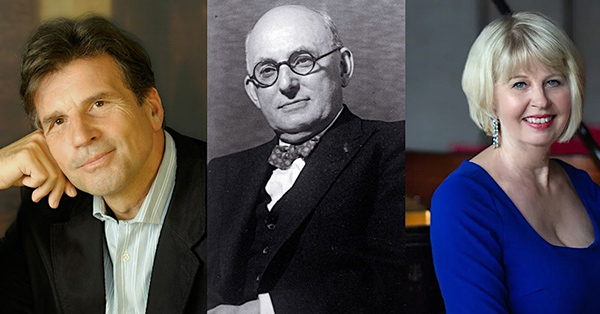
Liederabend: Wolfgang Holzmair sings the songs of Max Kowalski - In-person Event
The Leo Baeck Institute and the American Society for Jewish Music invite you for a night of live music with Wolfgang Holzmair and Thérèse Lindquist on February 7th, 7:30PM EST at the Center for Jewish History.
Max Kowalski (1882–1956) was born in Poland but raised and educated in Frankfurt am Main, where he studied composition with Bernhard Sekles. He also obtained a law degree from the Univerisity of Marburg and represented musicians and composers including Arnold Schoenberg. A specialist in lieder whose setting of Guiraud’s Pierrot Lunaire (1912) earned him early accolades, he had a productive career as both an attorney and a widely published composer until the Nazi rise to power. Following his wife's suicide and his own arrest and internment in the Buchenwald concentration camp, Kowalski emigrated to London in 1939. He struggled to regain his earlier success as a composer and made a living as a teacher, cantor, and piano tuner.
Reflecting on his own work as an artist Kowalski once observed,“I am not concerned with any kind of ‘principles.’ I am an arch-romantic and rely wholly on feeling.” And then in a turn to Goethe’s Faust, “Feeling is all!”
Ticket Info: Free; registration required
Presented by:


concert
lecture
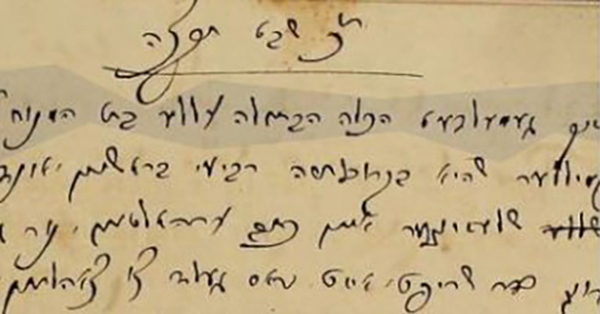
Family History Today: The Future of Genealogy – Live on Zoom
While all family history researchers seek to uncover stories from the past, trendsetters in the field are employing up-to-the-minute technological tools and techniques in ways that will have a huge impact on the future of genealogy. Jarrett Ross, creator and host of the YouTube series GeneaVlogger and Professional Genealogist Reacts, will provide a preview of what lies ahead, covering emerging trends in artificial intelligence, facial recognition software, OCR software, and genetic genealogy.
Ticket Info: Pay what you wish; register here
Presented by:

lecture
discussion
2024 Summer Program Information Session - Live on Zoom
Have you always wanted to study Yiddish at YIVO’s Summer Program? Are you wondering what it would be like to take the program online or in person? Join faculty and staff of YIVO's Summer Program for a brief information session. This 30-minute session will cover the program’s structure, online and in-person formats, admissions process, and more, with time for questions from prospective Summer Program participants. The session will be conducted in English and is entirely optional (prospective participants are not required to attend).
Learn more about the Uriel Weinreich Summer Program in Yiddish Language, Literature, and Culture.
Ticket Info: Free; registration is required.
Presented by:

discussion
discussion
2024 Summer Program Information Session - Live on Zoom
Have you always wanted to study Yiddish at YIVO’s Summer Program? Are you wondering what it would be like to take the program online or in person? Join faculty and staff of YIVO's Summer Program for a brief information session. This 30-minute session will cover the program’s structure, online and in-person formats, admissions process, and more, with time for questions from prospective Summer Program participants. The session will be conducted in English and is entirely optional (prospective participants are not required to attend).
Learn more about the Uriel Weinreich Summer Program in Yiddish Language, Literature, and Culture.
Ticket Info: Free; registration is required.
Presented by:

discussion
exhibit opening
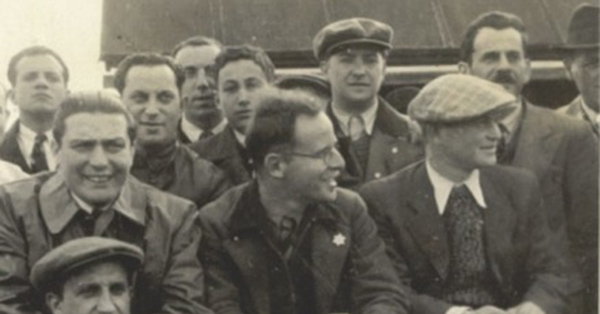
Leave to Land - In-person Event & Live on Zoom
The Kitchener Camp has been largely forgotten today, but in 1939, this derelict army base on the Kent coast in southeastern England became the scene of an extraordinary rescue in which 4,000 men were saved from the Holocaust.
The Leave to Land traveling exhibition was authored by Clare Weissenberg and was based on materials collected through The Kitchener Camp Project, a unique online resource that brings together archival records and family treasures to build a moving and compelling picture of this unlikely sanctuary.
The exhibition premiered at London's Jewish Museum on September 1, 2019, and LBI New York is bringing a version of the exhibition to the Center for Jewish History in Manhattan on January 16, 2024.
Beginning at 6:00 PM EST on January 31, we invite you to visit this exhibit in the Katherine and Clifford H. Goldsmith Gallery. At 6:30 PM EST, we will be joined for a live panel discussion with Barbara Birch (President and CEO at ORT America), Emary Aronson (LBI Board Member and Chief Knowledge Officer and Senior Advisor to the CEO at Robin Hood), and Ronnie Wolf (Senior Adviser of the Leave to Land Exhibition) and moderated by Frank Mecklenburg (Mark M. and Lottie Salton Senior Historian at the Leo Baeck Institute).
Panelists will then take questions from the live audience.
Cosponsored by ORT America.
Ticket Info: Free; register at lbi.org/events/leave-to-land-exhibit-opening/
Presented by:

exhibit opening
gallery tour

Museum Director's Tour of The Golden Path: Maimonides Across Eight Centuries - In-person Event
Join YU Museum Director Gabriel Goldstein for a guided tour of The Golden Path: Maimonides Across Eight Centuries, illuminating the life and impact of the multifaceted luminary and great Jewish sage across continents and cultures through rare manuscripts and books. Exhibition highlights include manuscripts in Maimonides’s own handwriting, a carved 11th century door to the Torah ark from Cairo’s Ben Ezra Synagogue, and beautifully illuminated medieval manuscripts.
Ticket Info: Free admission but reservations are required at RSVP@yum.cjh.org. Please include date of requested tour. Space is limited.
Presented by:

gallery tour
book club
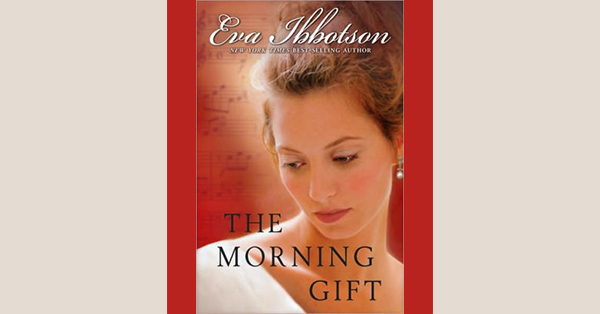
LBI Book Club: The Morning Gift - Live on Zoom
Drama and romance abound in this charming epic romance, ideal for fans of The English Patient.
Twenty-year-old Ruth Berger is desperate. The daughter of a Jewish-Austrian professor, she was supposed to have escaped Vienna before the Nazis marched into the city. Yet the plan went completely wrong, and while her family and fiancé are waiting for her in safety, Ruth is stuck in Vienna with no way to escape. Then she encounters her father’s younger college professor, the dashing British paleontologist Quin Sommerville. Together, they strike a bargain: a marriage of convenience, to be annulled as soon as they return to safety. But dissolving the marriage proves to be more difficult than either of them thought—not the least because of the undeniable attraction Quin and Ruth share. To make matters worse, Ruth is enrolled in Quin’s university, in his very classes. Can their secret survive, or will circumstances destroy their love?
About the Author
Eva Ibbotson, born Maria Charlotte Michelle Wiesner (21 January 1925 20 October 2010), was an Austrian-born British novelist, known for her children's books. Some of her novels for adults have been successfully reissued for the young adult market in recent years. For the historical novel Journey to the River Sea (Macmillan, 2001), she won the Smarties Prize in category 9 11 years, garnered unusual commendation as runner up for the Guardian Prize, and made the Carnegie, Whitbread, and Blue Peter shortlists. She was a finalist for the 2010 Guardian Prize at the time of her death. Her last book, The Abominables, was one of eight books on the longlist for the same award in 2012. (Bio from Amazon).
Ticket Info: Free; register at lbi.org/events/book-club-the-morning-gift/ for a Zoom link
Presented by:

book club
concert
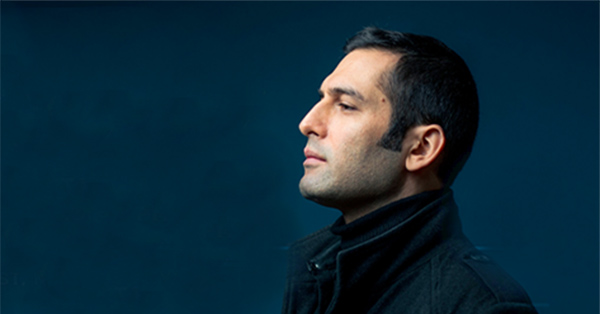
The Blues and Resilience: A Concert in Honor of International Holocaust Remembrance Day - In-person Event
This cultural-educational experience with live music featuring acclaimed Israeli Jazz musician (and ASF Pomegranate Award recipient) Itamar Borochov.
Ticket Info: $20 - Proceeds will benefit Holocaust education programs
Presented by:

concert
conversation
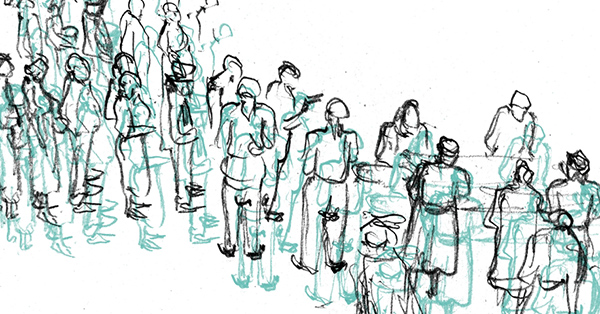
Virtual Professional Development Workshop: Theresienstadt - Live on Zoom
In this virtual half-day professional development workshop, we will launch a series of brand-new lesson plans designed and created by a group of veteran teachers and using primary sources from The Leo Baeck Institute archive. After an introduction to both organizations and their teaching resources, the LBI will present a virtual walk through of their online exhibition, The Last Stop Before the Last Stop: Theresienstadt 1942-45. Then, teachers will have the option to join small discussion groups to learn more about two of the four lesson plans.
The four lessons that teachers will be able to choose from are as follows:
- “An Image Is Not Always Worth a 1000 Words”: Propaganda
- “Last Stop Before the Last Stop”: Transit
- Children in Terezín
- Intellectual Resistance
At the end of the workshop, teachers will have gained in-depth understanding of two new lesson plans (and will be provided all four lessons) to teach about the Holocaust in social studies, English language arts, music or art classes.
LBI and DRF will provide a certificate stating that participants have earned 3 hours of professional development training. Participants will also receive a free book, In Echtzeit: Posts from the Past. 1938 from a Jewish Perspective. In Echtzeit signifies a watershed moment in the history of German-speaking Jewry, through personal documents that detail the experiences and hardships they suffered in the shadow of Nazi persecution and the cataclysmic events of 1938.
Ticket Info: Free; register at lbi.org/events/professional-development-workshop/ for a Zoom link
Presented by:

conversation
symposium
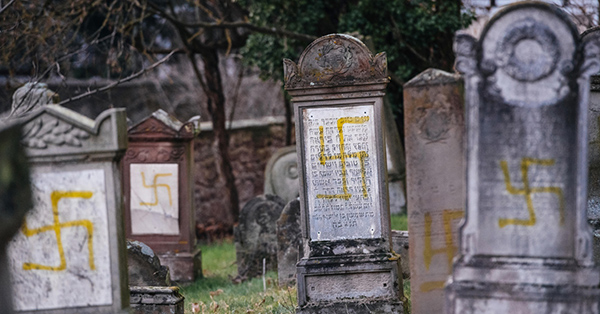
Addressing Antisemitism: Contemporary Challenges – In-person & live on YouTube
Addressing Antisemitism: Contemporary Challenges seeks to explain the recent upsurge of Jew hatred in the contemporary world. Timed to coincide with International Holocaust Remembrance Day and co-sponsored by the Institute for the Study of Contemporary Antisemitism (ISCA) at Indiana University, the symposium brings together prominent scholars to discuss the challenge of defining antisemitism, explaining its explosion in Europe and the United States, understanding its dissemination through digital media, and determining how scholars and activists should best combat it in an era of intensifying global turmoil.
Click here for a list of panels and speakers.
Tickets include lunch and a wine and cheese reception after the program. Speakers will be selling and signing books throughout the day.
Museum Director’s Tour of The Golden Path: Maimonides Across Eight Centuries
Please join Yeshiva University Museum Director Gabriel Goldstein for a 30-minute exhibition highlights tour. Meet in front of the Popper Gallery at 1 pm. The exhibition will also be open for viewing during the wine and cheese reception from 5:30 to 6:00 pm.
This symposium is presented in partnership with Indiana University’s Institute for the Study of Contemporary Antisemitism (ISCA) and has received generous support from the Achelis & Bodman Foundation, the David Berg Foundation, the Combat Antisemitism Movement (CAM), the American Jewish Committee’s Edward M. Chase Educational Fund, Robert S. Rifkind, the Moise Y Safra Foundation, and the Office of the President, Fairfield University. The symposium is the fourth installment in a larger series of public symposia sponsored by the Center for Jewish History’s Jewish Public History Forum.
This program is supported, in part, by public funds from the New York City Department of Cultural Affairs, in partnership with the City Council.
Ticket Info:
In-person tickets: $36 general; $28 members click here to register
YouTube: Pay what you wish; click here to register
Presented by:



symposium
gallery tour

Exhibition Tour of The Golden Path: Maimonides Across Eight Centuries with Ilana Benson, YU Museum Director of Museum Education - In-person Event
Join Ilana Benson, YU Museum Director of Museum Education, for a guided tour of The Golden Path: Maimonides Across Eight Centuries, illuminating the life and impact of the multifaceted luminary and great Jewish sage across continents and cultures through rare manuscripts and books. Exhibition highlights include manuscripts in Maimonides’s own handwriting, a carved 11th century door to the Torah ark from Cairo’s Ben Ezra Synagogue, and beautifully illuminated medieval manuscripts.
Ticket Info: Free admission, reservations are required at RSVP@yum.cjh.org. Please include date of requested tour. Space is limited.
Presented by:

gallery tour
book talk
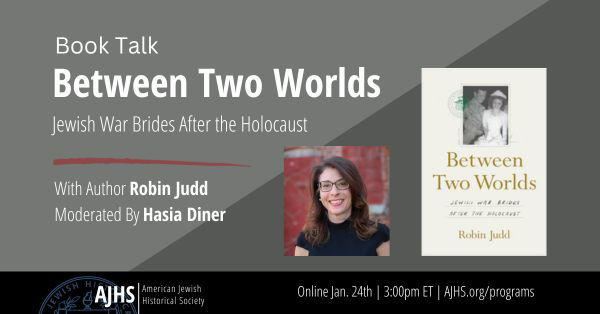
Between Two Worlds - Jewish War Brides After the Holocaust – Live on Zoom
Between Two Worlds author Robin Judd joins us in discussion with historian Hasia Diner.
Facing the harrowing task of rebuilding a life in the wake of the Holocaust, many Jewish survivors, community and religious leaders, and Allied soldiers viewed marriage between Jewish women and military personnel as a way to move forward after unspeakable loss. Proponents believed that these unions were more than just a ticket out of war-torn Europe: they would help the Jewish people repopulate after the attempted annihilation of European Jewry.
Historian Robin Judd, whose grandmother survived the Holocaust and married an American soldier after liberation, introduces us to the Jewish women who lived through genocide and went on to wed American, Canadian, and British military personnel after the war. She offers an intimate portrait of how these unions emerged and developed—from meeting and courtship to marriage and immigration to life in the United States, Canada, and the United Kingdom—and shows how they helped shape the postwar world by touching thousands of lives, including those of the chaplains who officiated their weddings, the Allied authorities whose policy decisions structured the couples’ fates, and the bureaucrats involved in immigration and acculturation. The stories Judd tells are at once heartbreaking and restorative, and she vividly captures how the exhilaration of the brides’ early romances coexisted with survivor’s guilt, grief, and apprehension at the challenges of starting a new life in a new land.
Ticket Info: Free; register at ajhs.org/events/book-talk-between-two-worlds-jewish-war-brides-after-the-holocaust/ for a Zoom link
Presented by:

book talk
gallery tour

Museum Director's Tour of The Golden Path: Maimonides Across Eight Centuries - In-person Event
Join YU Museum Director Gabriel Goldstein for a guided tour of The Golden Path: Maimonides Across Eight Centuries, illuminating the life and impact of the multifaceted luminary and great Jewish sage across continents and cultures through rare manuscripts and books. Exhibition highlights include manuscripts in Maimonides’s own handwriting, a carved 11th century door to the Torah ark from Cairo’s Ben Ezra Synagogue, and beautifully illuminated medieval manuscripts.
Ticket Info: Free admission but reservations are required at RSVP@yum.cjh.org. Please include date of requested tour. Space is limited.
Presented by:

gallery tour
concert
Shotns/Shadows: A New Album from the Fortunoff Archive - In-person Event & Live on Zoom
Join YIVO for a performance of the Yale Fortunoff Video Archive for Holocaust Testimonies' newest album, Shotns/Shadows. Part of the "Songs From Testimonies" project, this album is based on poems and songs from interviews with Holocaust survivors recorded by the Fortunoff Archive. Compiled and researched by composer, multi-instrumentalist, ethnomusicologist, and Yiddish educator Zisl Slepovitch and arranged and recorded by singer Sasha Lurje and his ensemble, this album draws upon the more than 100 testimonies in the Fortunoff Archive's collection in which survivors recount poetry or sing musical compositions from the prewar, wartime and postwar periods. The songs and poems included on Shotns/Shadows were sung or recounted in a number of testimonies and reflect the richness of Holocaust video testimonies as a unique form of documentation.
This program is supported, in part, by public funds from the New York City Department of Cultural Affairs, in partnership with the City Council.
Ticket Info: Free; registration required
Presented by:

concert
leo baeck memorial lecture
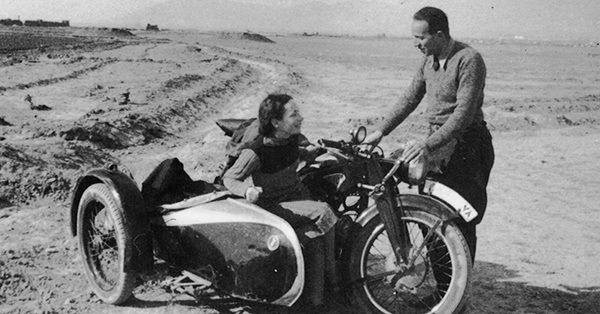
64th Leo Baeck Memorial Lecture by Atina Grossmann - In-person Event & Live on Zoom
Trauma, Privilege, and Adventure: Jewish Refugees Between ‘Orient’ and European Catastrophe
In the 64th Annual Leo Baeck Memorial Lecture, historian Atina Grossmann (Cooper Union) will examine the ambivalent, paradoxical, and diverse experiences, emotions, and memories of Jews who found refuge from National Socialism and the Holocaust in India and Iran after 1933. Always shadowed by the emerging European catastrophe, uprooted Jews were also precariously privileged as white Europeans in non-western, colonial or semi-colonial societies. An extensive collection of family correspondence and memorabilia extending from wartime Nazi Berlin throughout the global diaspora of German Jewry as well as archival, literary, visual, and oral history sources illuminates refugees’ everyday lives in the changing context of interwar fascination and contact with the “Orient,” global war against fascism, anti-colonial independence movements, and gradual revelations about the destruction of the European world they had escaped.
Ticket Info: Free; register at lbi.org/events/64th-leo-baeck-memorial-lecture-atina-grossmann/
Presented by:

leo baeck memorial lecture
gallery tour

Exhibition Tour of The Golden Path: Maimonides Across Eight Centuries with Ilana Benson, YU Museum Director of Museum Education - In-person Event
Join Ilana Benson, YU Museum Director of Museum Education, for a guided tour of The Golden Path: Maimonides Across Eight Centuries, illuminating the life and impact of the multifaceted luminary and great Jewish sage across continents and cultures through rare manuscripts and books. Exhibition highlights include manuscripts in Maimonides’s own handwriting, a carved 11th century door to the Torah ark from Cairo’s Ben Ezra Synagogue, and beautifully illuminated medieval manuscripts.
Ticket Info: Free admission, reservations are required at RSVP@yum.cjh.org. Please include date of requested tour. Space is limited.
Presented by:

gallery tour
panel discussion
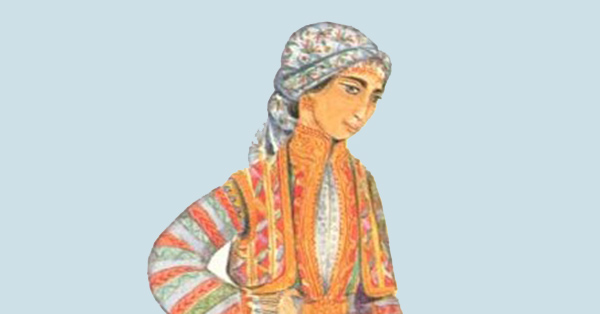
Bendichas Manos: The 7th Annual New York Ladino Day - In-person Event
Curated by Jane Mushabac and Bryan Kirschen
Featuring:
Rabbi Marc Angel, author and editor of 38 books, and a 2023 International Sephardic Gala Honoree for his decades of remarkable community leadership.
Rachel Amado Bortnick, teacher and founder of the renowned online group, Ladinokomunita, now in its 25thyear with 1500 Ladino-speaking members worldwide.
Elizabeth Graver, author of the groundbreaking 2023 Sephardic novel Kantika, and long celebrated for her prize-winning fiction.
Sarah Aroeste, singer/songwriter, and Susan Barocas, foodwriter/story-teller, a duo whose “Savor” program of songs and talk about Sephardic cuisine is garnering raves here and abroad.
Ladino is a bridge to many cultures. A variety of Spanish, it has absorbed words from Hebrew, Turkish, Arabic, French, Greek, and Portuguese. The mother tongue of Jews in the Ottoman Empire for 500 years, Ladino became the home language of Sephardim worldwide. While the number of Ladino speakers has sharply declined, distinguished Ladino Day programs like ours celebrate and preserve a vibrant language and heritage. These programs are, as Aviya Kushner has written in the Forward, “Why Ladino Will Rise Again.”
Since 2013, Ladino Day programs have been held around the world to honor Ladino, also known as Judeo-Spanish. January 21st marks New York’s 7th Annual Ladino Day hosted by the American Sephardi Federation.
>© Rhodes, mid-19th century Sephardi & Romaniot Jewish Costumes in Greece & Turkey. 16 watercolours by Nicholas Stavroulakis published by the Association of the Friends of the Jewish Museum of Greece, Athens, 1986.
Ticket Info: Early Bird G/A $20 (regular $25); VIP $36
(Early Bird offer expires on 17 December)
Presented by:

panel discussion
conversation
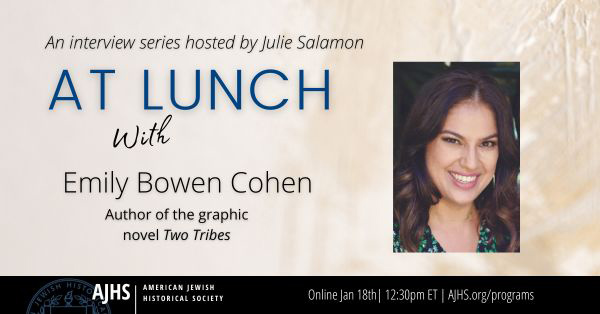
At Lunch with Emily Bowen Cohen – Live on Zoom
Julie Salamon (Author and Journalist) sits down with Emily Bowen Cohen author of the graphic novel Two Tribes. Emily Bowen Cohen creates comics that explore intersectional identity. She is Jewish and a member of the Muscogee (Creek) Nation. She uses personal experience to tell stories that examine contemporary American and Jewish culture. Emily grew up in rural Oklahoma. Her father was the Chief of Staff at their tribal hospital and her mother is a nice Jewish girl from New Jersey. When Emily was nine years-old, her father passed away and she was separated from her Native family. A decade later, she returned to Oklahoma for a bittersweet homecoming. Emily graduated from Harvard University. She currently lives in Los Angeles, CA, with her husband and their three Native American Jewish children.
Ticket Info: Free; register at ajhs.org/events/at-lunch-with-emily-bowen-cohen/ for a Zoom link
Presented by:

conversation
lecture and concert
"Thousands of Stories to Tell": Broadway Musicals, New York City, and the Making of Jewish Americans – In-Person Event
Featuring songs from Funny Girl (1964), The Education of H*Y*M*A*N K*A*P*L*A*N (1968), Rags (1986), and Ragtime(1998), this cabaret blends scholarship and artistry, history and storytelling. Beginning in the 1960s, for the first time, the Jewishness featured in Broadway musicals was neither represented through racialized comedic representations nor hidden underneath crypto-Jewish characters. Interestingly, many of the musicals of the latter half of the twentieth century that feature Jewish characters, culture, and history are set in the early part of the twentieth century, and most of those are set in the Progressive Era in New York City. These musicals, featuring representations of Jewish Americans, are steeped in a retrospective point of view, both romanticizing and problematizing narratives of immigration and Americanization. The selected musicals are among the many stories created to reaffirm how Jewish immigrants became Jewish Americans in the United States. Incorporating showtunes, lesser-known songs, storytelling, and scholarship, this cabaret invites audience members to consider the historical narratives of musicals in addition to enjoying the pleasure they provide.
This cabaret is based on Dr. Barrie Gelles’s scholarship that examines the themes and tropes in musicals that recreate, reframe, and reclaim narratives of Jewish American cultural history.
This program is supported, in part, by public funds from the New York City Department of Cultural Affairs, in partnership with the City Council.
Ticket Info: Free, registration is required; register here
Presented by:


lecture and concert
symposium
A Medium for the Masses: The Yiddish Press and the Shaping of American Jewish Culture - In-person Event and Live on Zoom
This symposium will look back on more than 150 years of the Yiddish press in the United States, examining its role as a vehicle of acculturation, a forum for political and ideological debates, and a seedbed for the growth of a mass culture among Jews worldwide. The day’s events will culminate in an evening program celebrating the launch of Ayelet Brinn’s new book, A Revolution in Type: Gender and the Making of the American Yiddish Press (NYU Press, 2023), which offers a fascinating glimpse into the complex and often unexpected ways that women and ideas about women shaped widely read Yiddish newspapers.
Buy A Revolution in Type: Gender and the Making of the American Yiddish Press.
This program is part of the Center for Jewish History's Jewish Public History Forum.
Ticket Info:
In person: $18; YIVO and CJH members & students: $12
Zoom Livestream: Free
Presented by:

symposium
book launch
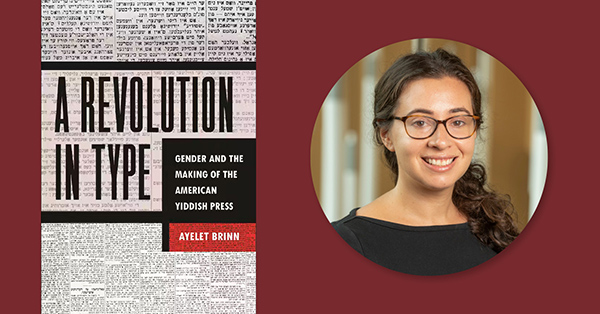
A Revolution in Type: Gender and the Making of the American Yiddish Press – In-Person Event & Live on Zoom
Author Ayelet Brinn will be in conversation with Anita Norich (Professor Emerita, University of Michigan) about her new book, A Revolution in Type: Gender and the Making of the American Yiddish Press, a fascinating glimpse into the complex and often unexpected ways that women and ideas about women shaped widely read Jewish newspapers.
Between the 1880s and 1920s, Yiddish-language newspapers rose from obscurity to become successful institutions integral to American Jewish life. During this period, Yiddish-speaking immigrants came to view newspapers as indispensable parts of their daily lives. For many Jewish immigrants from Eastern Europe, acclimating to America became inextricably intertwined with becoming a devoted reader of the Yiddish periodical press, as the newspapers and their staffs became a fusion of friends, religious and political authorities, tour guides, matchmakers, and social welfare agencies.
In A Revolution in Type, Ayelet Brinn argues that questions related to women were central to the emergence of the Yiddish press as a powerful, influential force in American Jewish culture. Through rhetorical debates about women readers and writers, the producers of the Yiddish press explored how to transform their newspapers to reach a large, diverse audience. The seemingly peripheral status of women’s columns and other newspaper features supposedly aimed at a female audience—but in reality, read with great interest by male and female readers alike—meant that editors and publishers often used these articles as testing grounds for the types of content their newspapers should encompass. The book explores the discovery of previously unknown work by female writers in the Yiddish press, whose contributions most often appeared without attribution; it also examines the work of men who wrote under women’s names to break into the press. Brinn shows that instead of framing issues of gender as marginal, we must view them as central to understanding how the American Yiddish press developed into the influential, complex, and diverse publication field it eventually became.
A wine and cheese reception and book signing will follow the program.
About the Author
Ayelet Brinn is the Philip D. Feltman Assistant Professor of Modern Jewish History in the Departments of Judaic Studies and History at the University of Hartford.
Ticket Info: In person or on Zoom: Pay what you wish; register here
Presented by:


book launch
class
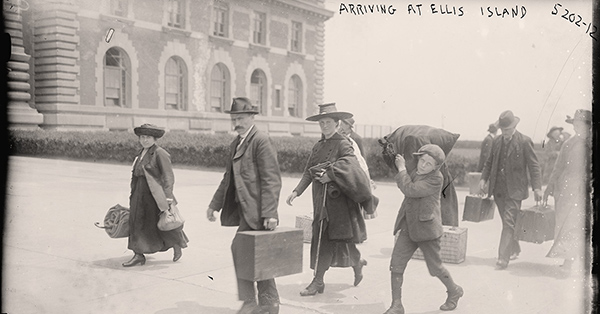
All in the Mishpocheh: Intro to Jewish Genealogy at the CJH - Online Course
10-session online course (via Zoom)
Fridays, 1:00-2:15 PM ET
January 12 – March 15, 2024
Join the staff of the Center for Jewish History’s Ackman & Ziff Family Genealogy Institute for this 10-week online genealogy course, suitable for beginners and anyone interested in reviewing the basics. Topics include family trees, online search strategies, immigration, DNA, Holocaust records, finding your ancestral towns, name changes, obtaining records from other countries, and much more. By the end of this course, you will have a portfolio of new documents and information on your ancestors' lives ready to share with your family.
Students are encouraged to participate live but are welcome to watch or review class recordings as needed.
FAQ
Can I contact the instructor outside of class time?
Absolutely! One unique aspect of this course is that our librarian instructors not only permit, but encourage, their students to reach out to them beyond the class time – via email, video chat, or in-person visits. Former students say this one-on-one availability was instrumental in their personal research progress, providing the tailored guidance they needed to chart their research path.
Will I get personal feedback?
Yes. Your instructor will give you feedback on your assignments and your personal research questions either during or between classes. Your fellow students may also offer their advice during class.
How many people will be in the class?
Class sizes have ranged from about 20-30 students, with an average of 10-15 students regularly participating in the live Zoom classes.
Ticket Info: $295 general; $255 CJH members; click here to register
Presented by:

class
discussion
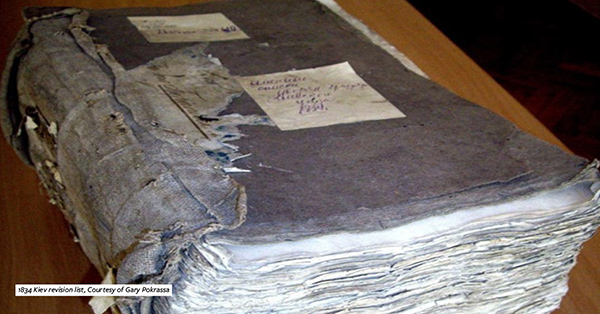
Family History Today: The Krakovsky Documents – Live on Zoom
For several years, Alex Krakovsky, a Ukrainian Jew, has been scanning Jewish metrical and census records found in long-closed Ukrainian archives and placing these documents, predominantly in Cyrillic (Russian), on a website where they can easily be accessed. Gary Pokrassa and Joel Spector, Director of Data Acquisition and Metric Record Projects, respectively, at the JewishGen Ukraine Research Division, will discuss the origin and method of Alex’s data acquisition and provide an overview of the contents of his site. Additionally, they will explain how to navigate the files in English, offer tips on working with the indexes and documents, and describe the Ukraine Research Division’s ongoing role in this project.
Ticket Info: Pay what you wish; register here
Presented by:

discussion
gallery tour

Cancelled: Museum Director's Tour of The Golden Path: Maimonides Across Eight Centuries
Please note: This event has been cancelled.
gallery tour
lecture
Holocaust Distortion in Poland and Beyond - Live on Zoom
Since the beginning of this century, the commemoration and the history of the Holocaust were at the heart of political struggles in Poland. In order to defend the “good name of the nation,” Polish authorities created institutions and legislated laws intended to enforce the official, state-approved version of history. This new narrative shifts the focus away from the Jewish victims of the Shoah and places it on righteous gentiles, real or imagined. It is within this context that old antisemitic tropes came alive and acquire new currency. This unprecedented, and state-sponsored, assault on the memory of the Shoah is known today as Holocaust distortion, a particularly insidious brand of Holocaust denial.
In this lecture, Jan Grabowski will shed light on the origins of the current situation as well as its impact on Holocaust memory and Holocaust education in Poland, Europe, and beyond.
Buy a book on this topic, Night Without End: The Fate of Jews in German-Occupied Poland.
This program is supported, in part, by public funds from the New York City Department of Cultural Affairs, in partnership with the City Council.
Ticket Info: Free; registration is required.
Presented by:

lecture
concert
Challenging the Theater of Memory: Yiddish Song beyond Kitsch and Stereotype - In-person Event and Live on Zoom
Performing Yiddish music in post-war Germany and Austria comes with a set of expectations and assumptions about Jewish culture. In this lecture-concert, Yiddish musicians and researchers Isabel Frey and Benjy Fox-Rosen confront these expectations, challenging the so-called “Theater of Memory” where Jewish roles are limited and often instrumentalized to fit into the broader dominant cultural narrative.
The evening’s musical journey begins with nostalgic Yiddish songs before moving to unaccompanied folk songs collected through ethnographic fieldwork. It continues with partisan and resistance songs from the Holocaust and concludes with new Yiddish music by the artists themselves. Through musical performance, dialogue, and short essayistic fragments, Frey and Fox-Rosen reflect on the myth of the shtetl, the ruptures and continuities of oral transmission, the weight of Holocaust memory culture and their own attempts to creatively deal with the expectations inherent to performing Jewish music in the German-speaking world.
Join YIVO for this performance followed by a Q&A with performers Isabel Frey and Benjy Fox-Rosen moderated by Samantha Cooper and Gordon Dale.
Ticket Info:
In person: $15; YIVO members & students: $10
Zoom Livestream: $5
Presented by:

concert
